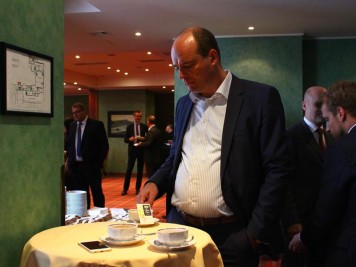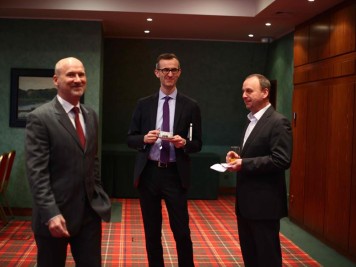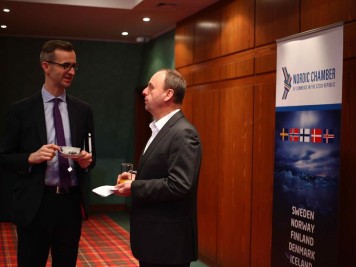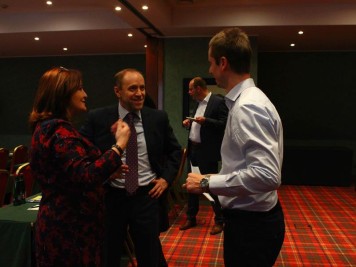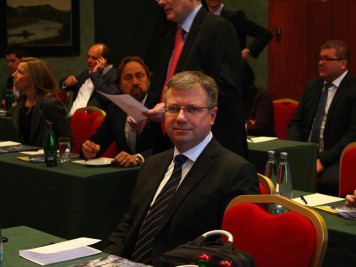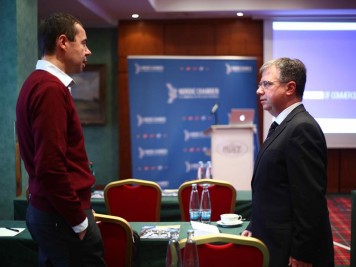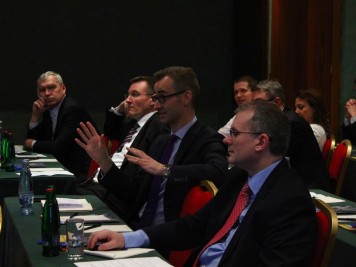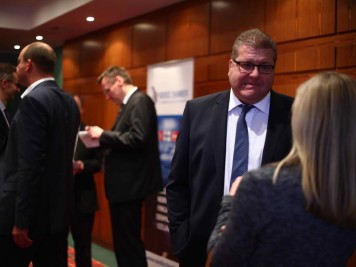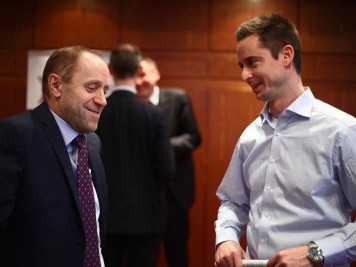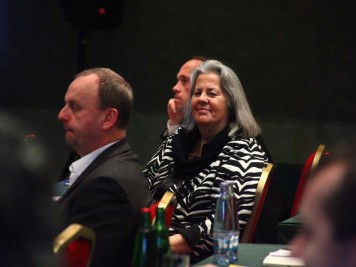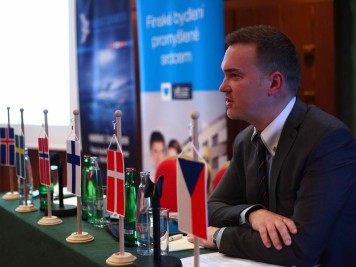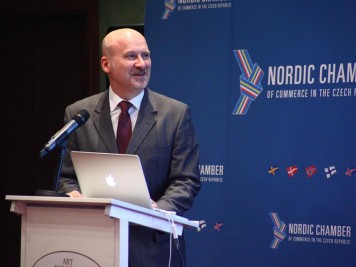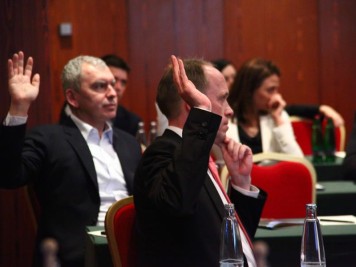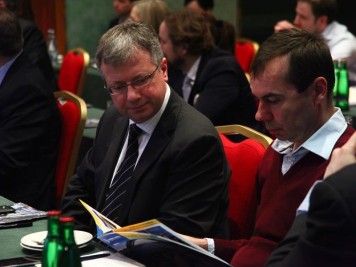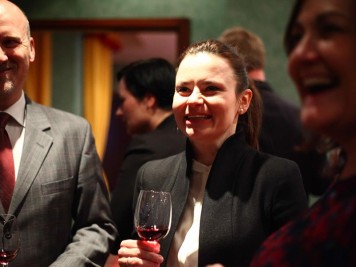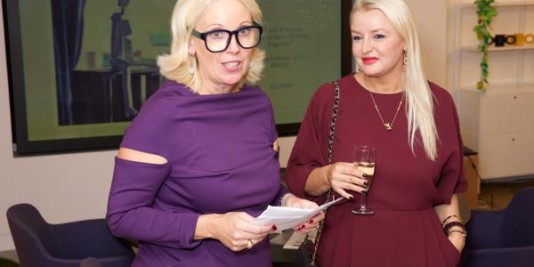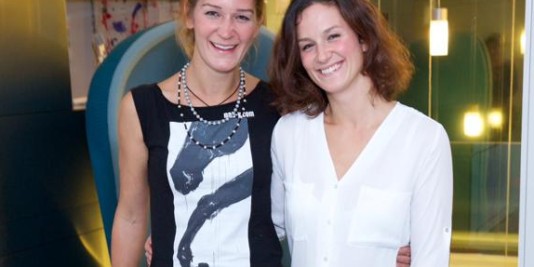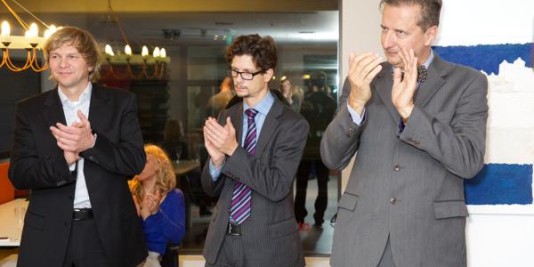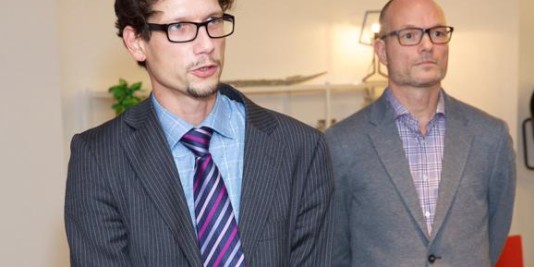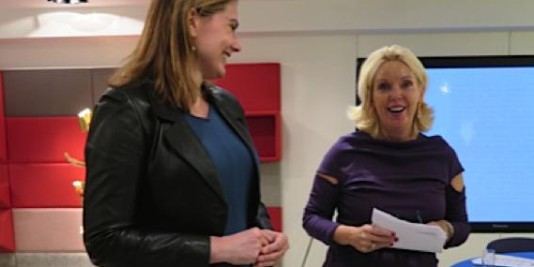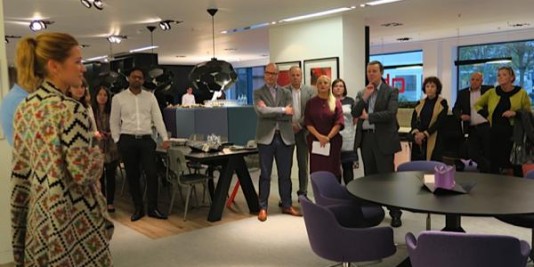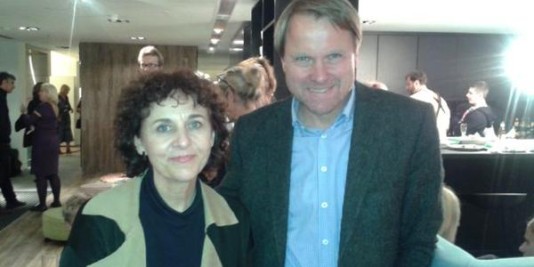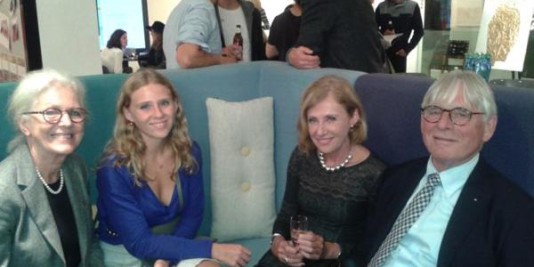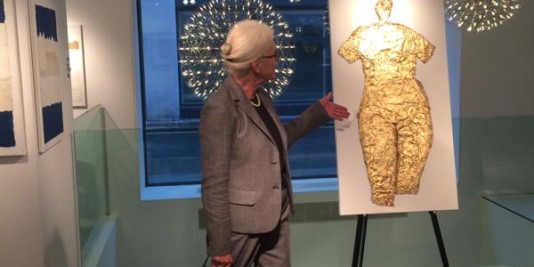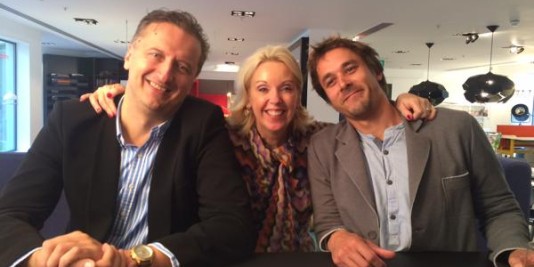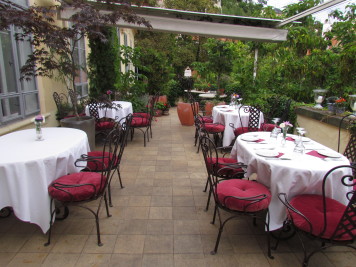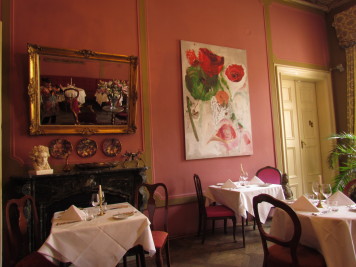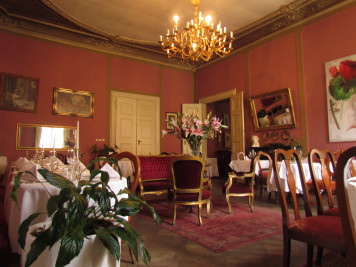The cognitive-behavioral therapy can be used in the cure of varied ailments related-to temper, individuality, anxiety, substance abuse, etc. The’ Aaron Beck Cognitive Treatment’ is one beneficial method that relates to the majority of the problems in the list above. What is Intellectual Behavioral Therapy? It is a treatment which has a psycho-therapeutic way of solving difficulties connected with conduct, dysfunctional emotions and cognition. Read more
Authoradmin
An annual review atwork may be trigger for some tension. Nonetheless, it might also be a chance for you to discuss a. This is to discuss a salary boost. Directions Training that which you are going to say before your yearly evaluation to your employer perhaps starts. Do not be fearful convey them and to publish along some notes. Convey a notebook into your annual review along with you. Be sure if it’s alright which you have a few records while your manager is chatting to request your manager. Read more
Prestigious 2016 GBF Leadership Awards bestowed upon student leaders from Georgetown University McDonough School of Business and London School of Economics and Political Science
Student leaders from Georgetown University McDonough School of Business, the London School of Economics and Political Science (LSE) and The Chinese University of Hong Kong (CUHK) received top honours for their contributions to the areas of responsible leadership, sustainability and student government at the 2016 Graduate Business Conference (GBC2016) of the Graduate Business Forum (GBF) hosted by the University of St. Gallen in Switzerland.
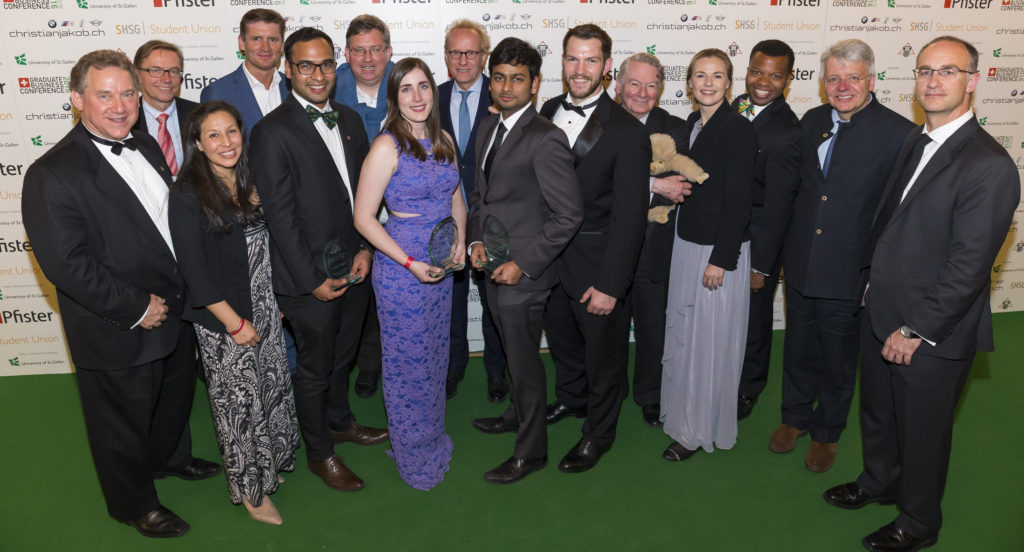
From left to right. Jim Deveau, GBF Founder; Prof. Dr. Kuno Schedler, VP Research & Faculty University of St.Gallen; Rocio Perez Jimenez, VP GBF Leadership Awards; Dr. oec. Jurgen Brucker, Dean External Relations University of St.Gallen; Rohit Gupta, GBF Leadership Awards Finalist 2016, CUHK, The Chinese University of Hong Kong; Prof. Simon Evenett, Dean of the MBA Program, University of St.Gallen; Abby Schwartz, GBF Responsible Leadership Award Winner 2016, Georgetown University McDonough School of Business; Dr. Sascha Spoun, President of Leuphana Universität Lüneburg; Vaibhav Agarwal and Jason Burchard, GBF Student Leadership Award Winners 2016, London School of Economics and Political Science; John Plender, Senior Editor of Financial Times and Columnist for The Economist; Wieteke Dupain, GBF CEO; Corey Dortch, Director MBA Program Emory University Goizueta Business School; Stephan Chambers, Director of International Strategy at Oxford and Chair of the Skoll Centre for Social Entrepreneurship, Niall O’Hea, GBF Chairman
Over 100 elected student government leaders and alumni drawn from the top 50 global business schools and MBA programs around the world and distinguished leaders in business and academics met at the University of St. Gallen campus from April 6-8 to share best practices on student government, global views on responsible leadership and learn from global business, industry leaders and each other. Dr. Christoph Franz, Chairman of Roche Group, opened the GBC2016 by sharing his insights on the conference theme Giving Back: The Responsibility of Future Leaders.
The 2016 GBF Leadership Awards, in honour of this years’ student leader achievers across the top business schools around the world, were presented by Jim Deveau, GBF Founder, Wieteke Dupain, GBF CEO, and Prof. Dr. Kuno Schedler, Vice President Research & Faculty at the University of St. Gallen .
Vaibhav Agarwal and Jason Burchard from the London School of Economics and Political Science (LSE) were presented the GBF 2016 Student Leadership Award for their vision and achievements increasing networking opportunities and community building between current students, prospective candidates and alumni of their program. Vaibhav and Jason founded the “Student Ambassador Programme” to communicate the aims and culture of LSE to prospective students by matching candidates to an ambassador based on nationality, background and work experience; this initiative helped reach over 150 LSE offer holders and generated 10% more applications despite a decreasing trend. They secured a commitment of school-level funding to organize the programme going forward each year. The team instituted annual student conferences for LSE students at Oxford and Cambridge. Moreover, the LSE student team reached out to alumni to increase their participation in school activities like mentorships and alumni-only events.
Abby Schwartz from the Georgetown University McDonough School of Business received the GBF 2016 Responsible Leadership Award for successfully spearheading diversity and inclusion (D&I) initiatives at McDonough. Abby identified the need to make D&I a priority in the MBA program and worked together with the Dean, students, administration, admissions department and faculty to create consciousness about the subject and gain support. The legacy that Abby leaves at McDonough is apparent. She influenced the Student Government Association to create a new Vice President for D&I position and achieved a 400% increase in women leadership positions in the newly elected student government. In addition, she created a D&I workshop for students and staff, influenced admissions to consciously reflect on D&I in the admissions process, to increase the number of women in the program from 31 to 40% in the next few years, to add questions in end-of-year surveys to measure inclusiveness in the school culture and to even create a lactation room for students and staff who are also parents.
Runner up and finalist Rohit Gupta from The Chinese University of Hong Kong (CUHK) was recognised for his outstanding leadership in creating a co-learning environment and help students build a strong professional network in the Hong Kong community. Using the Peer-to-Peer (P2P) model, Rohit managed to gain the support of students, alumni and professors to participate in this initiative and look for mentors willing to share their knowledge and experience. So far the initiative has been a great success with sessions devoted to Finance, Consulting and Marketing, helping students to explore different industries and expand their network. Rohit is looking to expand this idea and adapt it for the Hong Kong unemployed youth in collaboration with the HK International Finance Center.
Graduate Business Forum CEO Wieteke Dupain says: “The theme of this years’ conference is “Giving back: the Responsibility of Future Leaders”. The GBF vision and mission is to inspire young leaders, already during their studies, to envision and drive initiatives that lead to transformational change for their program, community or society at large. This years’ winners are a true inspiration for future student leaders to identify and consciously focus their efforts on one area of change where they can create substantial change and leave a lasting legacy as a student leader.”
—
About the Graduate Business Forum
Established in 1983, the Graduate Business Forum (GBF) (www.graduatebusinessforum.com ) is a global organization dedicated to developing responsible leadership and global citizenship, with influence, through an exclusive network of student leaders and alumni from the world’s top 50 business schools.
The GBF runs a number of activities to support the development of leadership skills for business school students through newsletters, shared knowledge platforms and networking events including the annual Graduate Business Conference (GBC ), hosted by one of the GBF member schools, drawn from the top 50 business schools and MBA programs globally.
Over the last 30+ years, the GBF has seen:
- 3,000+ student leaders participating in GBCs
- 30+ countries with participating business schools
- 400+ forums and workshops helping inspire future leaders by the exchange of leadership initiatives, organizational approaches for student governments, implementation of new student initiatives, and an increased consciousness towards social responsibility and ethical leadership
- 300+ corporate executives, government officials and other leaders who have contributed time and inspiration
- Countless projects around the world fueled by inspirations from GBF participation that made a positive difference in the world
About the GBF Leadership Awards
Every year the GBF selects two exceptional student leaders or teams to win the global Student Leadership Award (SLA) and Responsible Leadership Award (RLA).
The winners are role models for student leadership and responsible leadership at the global level and have succeeded in making a significant impact within the graduate business community or society.
The Student Leadership Award was introduced in 1991 by the Board of Directors of the Graduate Business Forum to recognize outstanding leadership, innovation and a commitment to the greater community at the graduate business level. The Responsible Leadership Award and Fund Grants were introduced in 2010 to honor, fund and support contributions of Business School students to society at large.
The Awards are open to full‑ time graduate business students of GBF member schools participating in the annual Graduate Business Conference. The award is presented at the GBF Student and Responsible Leadership Awards Commemorative Banquet and Gala at the annual Graduate Business Conference. Previous presenters of the Awards include HRH Crown Prince Frederik of Denmark, CEO of Bayer Greater China, Celina Chew and Ken Morse, serial entrepreneur, Professor and Member of the National Advisory Council on Innovation and Entrepreneurship supporting Barack Obama’s innovation strategy.
For further information on the criteria and how to be nominated, as well as a list of previous winners, please visit: http://graduatebusinessforum.com/awards
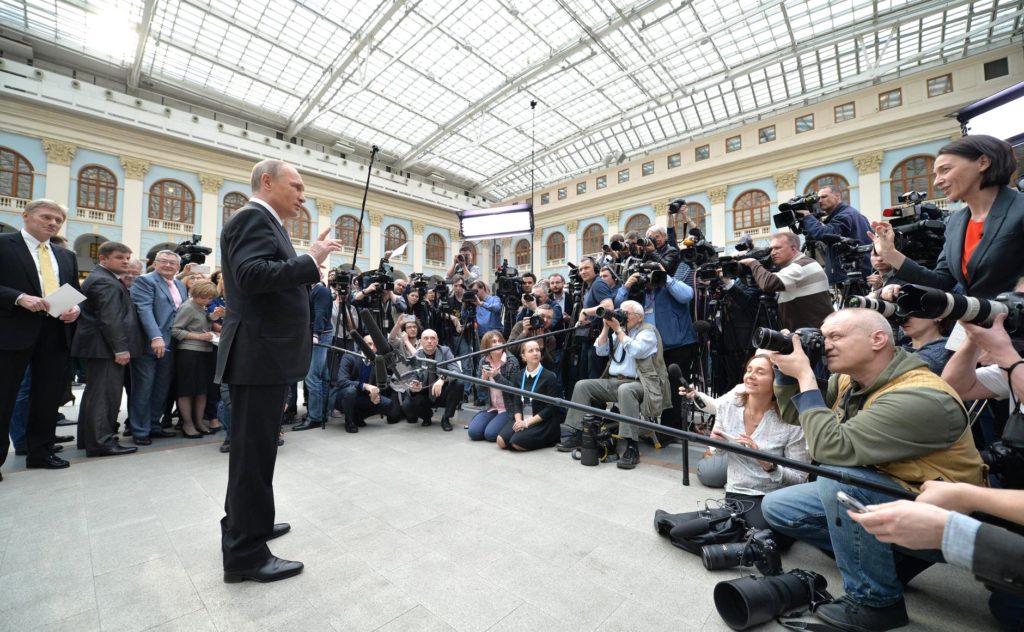
Vladimir Putin met with journalists and answered their questions following the Direct Line.
Question: Was it not daunting to face so many serious problems and pressing questions?
President of Russia Vladimir Putin: No.
Question: Why do you say that?
Vladimir Putin: This is my work, what my colleagues and I are expected to do. You can’t hide from serious questions, because if you try to put a gloss on reality, how will you understand what is really going on? And it is extremely important to understand where we are, how we are working, and how people view our work.
Question: Mr President, when you were asked about [Alexei] Kudrin, you started talking about the future, about some plans for 2018. Does this mean that you have already made the decision to run for president in 2018?
Vladimir Putin: No, it doesn’t mean that I have made such a decision. It means that we need to adjust our medium and long-term plans. No country can survive without making such adjustments, and Russia is no exception. We had development plans in place through to 2020, and now it is already 2016. We have come to the point where we need to reflect on the medium-term prospects.
This was Mr Kudrin’s own initiative too, really. He and some other colleagues said that we should be working on this regardless of who will be in the Government and who will be the President. The country has to know which road it is taking, at what pace, and what is needed to reach the goals it has set.
Question: Do you regret Obama’s imminent departure?
Vladimir Putin: We will all go one day – there is no point in having regrets, we have to work. I must say that the President of the United States – assessments can vary of course, but in any case his work should be assessed by the citizens of the US – but he is working, and very actively. He and I keep in touch, I maintain contact with his Administration, and I am confident that this will continue until the end of his tenure. He is a very responsible man. But once America elects a new President, we’ll start working with the new one.
Question: New government in Canada and new Prime Minister. How do you see the relations with Canada going forward?
Vladimir Putin: We are positive about them. We have known each other personally since we met in Antalya, by the way, at the G20 meeting. He has expressed his views about how he is going to build relations with Russia. We are quite satisfied.
As I understand it, the new Prime Minister of Canada wants to build relations with Russia on a positive basis, as we did in previous years. We are fine with that. We are neighbours across the Arctic Circle, across the North Pole. We have a lot of mutual interests, oddly enough, even being as far apart geographically as we are. We look forward to working together.
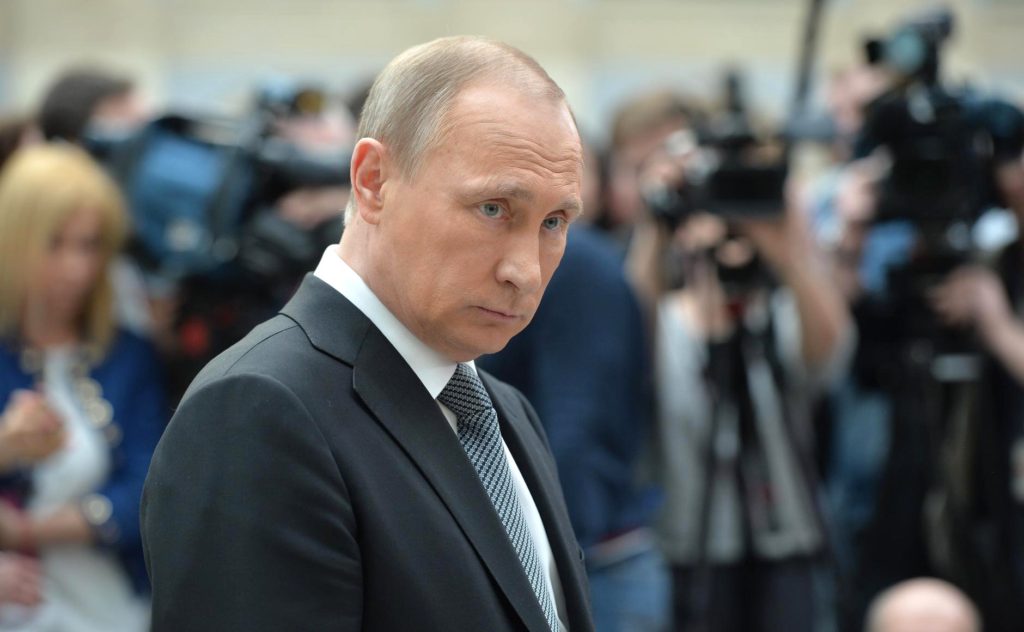
Question: How do you see the role of the Kurds against ISIS?
Vladimir Putin: The role of the Kurds? What can I say? I will just say it as it is. How do I see it? The Kurds are very courageous people, if not heroic. I know what I am saying. The Kurds fight selflessly, without sparing themselves, and very effectively. They are a very serious force in the fight against terrorism in the Middle East, particularly in Syria.
As you know, the United States is working with them actively, but our troops are also in contact with armed Kurdish units, including in Aleppo, where the terrorists of Jabhat al-Nusra and ISIS are now trying to oust them from their present positions. We are following the events and we will support them.
Question: You have mentioned the economy. What do you see as a way out of this grave economic crisis: implementing Kudrin’s programme or, for example, agreeing with Saudi Arabia to freeze oil output?
I also have a question on privatisation. Why did you agree to the privatisation of important stakes in companies like Rosneft while the market is so low? How can you guarantee that it would not become a replica of the loans-for-shares auctions and selling off state assets at a low bargain price?
Vladimir Putin: Regarding ways out of the current situation, I do not intend to use either what Alexei Kudrin is proposing, or any agreements with Saudi Arabia as a foundation. In this respect, we should be guided by the anti-crisis plan of the Russian Government and make sure that it is implemented.
When it comes to dealing with the situation in which Russia has found itself, which is by the way also true for many other countries, especially the developing economies, two or three areas should always be prioritised.
What are these areas? Attracting investment, raising the purchasing power, which means increasing demand, and enhancing economic and governance efficiency.
For that, we need to support specific industries that are facing hardships. This goes for the automobile industry, processing, agriculture should be on this list anyway, which is due to sanctions and retaliatory measures, as well as a number of other industries. They are all mentioned in the Government plan.
There is no doubt whatsoever that we need to ensure and increase the demand. How? We need to assist people in difficult straits. We also need to boost industrial demand through targeted support measures that I have mentioned, including, by the way, the construction industry, despite the fact that 85 million square metres of real estate were built last year, as I have mentioned.
We need to continue to balance macroeconomic and budget policies, keeping the budget deficit within 3 percent and giving more political and economic freedoms to businesses, as well as improve the business climate.
These are the five key areas that we must and will work on. It is on these areas that we should base our efforts to foster economic development. We need to put the country back on the track of steady economic growth. We can and will do it based on the Government’s anti-crisis plan.
As for privatisation, there is nothing unusual in this respect. If you look at the articles I published in the run-up to the 2012 presidential election, I wrote that privatisation could be supported, including in the oil and gas sector, which refers to major state-owned companies. So there is nothing unusual.
Why are we doing it on a falling market? First, we need money. Second and most importantly, we will be looking for a strategic partner who understands that skimping is not an option when it comes to buying a 19 percent stake in Rosneft. There is no need to pay attention to the current stock prices. We should be forward-looking. If we find a partner of this kind, and I think that it is possible, we will be ready to move ahead with privatisation despite a falling market, as you have said.
Thank you.
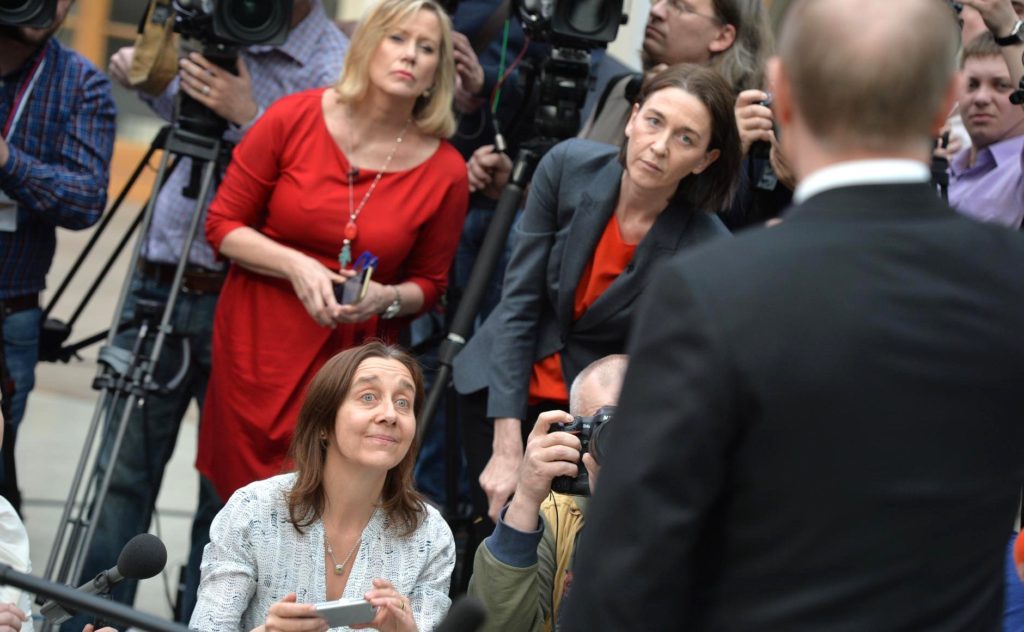
Question: You will meet with Japanese Prime Minister Shinzo Abe in May. You will probably discuss the northern territories and peace treaty issues. What kind of compromises would Russia be willing to consider, in your view?
Vladimir Putin: In order for compromises to be considered, we first need to have an on-going and uninterrupted dialogue, but Japan took the decision to limit contacts with us at one point.
I do not think this is at all in the interests of Japan and its people. At the same time though, we see that despite the pressure from their partners, in particular from the USA, our Japanese friends do seek to maintain relations with us.
We therefore welcome the Japanese Prime Minister’s visit to Russia. We will discuss all the different problems, of course. In order to resolve these problems that we have not yet resolved since the end of World War II, the instruments we have put in place must function continuously.
I think that some kind of compromise can and will be found.
Question: Will South Ossetia become part of Russia? Is South Ossetia not abusing your support? They cannot create an independent state and want to join Russia. Will you help them with some kind of legal procedure?
Vladimir Putin: I didn’t understand the question.
Remark: You met with [President of South Ossetia] Tibilov and had discussions.
Vladimir Putin: Yes.
Remark: And then Tibilov went back to Tskhinval and said that there would be a referendum to decide whether the people want to give the head of state the power to establish a union body with Russia and transfer powers to this body, because Russia cannot take South Ossetia into the Russian Federation at the moment for political reasons. Will you establish this union body and have South Ossetia’s territory join Russia? Would this not amount to annexation of South Ossetia’s territory?
Vladimir Putin: We are not looking at such an option for our relations with South Ossetia. Everyone knows that we recognised South Ossetia, and I have set out our position on this matter on many occasions. I think that the former Georgian President made a fundamental strategic mistake when he launched the military operations we remember, without any justification, and it is his fault that he lost this territory as a result.
But we have not discussed the matter you raise in any detail with South Ossetia’s leadership. Mr Tibilov did speak about this matter, and said that South Ossetia’s people want to hold such a referendum. We cannot oppose this. Nothing holds us back except for the interests of the South Ossetian people themselves. We do not yet know though just what this referendum will involve and how the final wording will look. Once we know, depending on this, we will look at the situation and decide from there.
Question: Why are you so sure that any criticism of Russia, including the recent information about your friends and the Panama papers, is a plot against Russia?
And one more question if you’ll allow: Nadia Savchenko, the Ukrainian pilot, has declared a hunger strike. Are you willing to exchange or free her?
Vladimir Putin: Let’s start with the second matter. We are in touch with the Ukrainian government on this matter. Our partners know our position. It is better to take things one step at a time with such things.
As for the matter of news campaigns, we do not think they are plots. I never said this, but I do think that such information does not appear without a reason. We think this because no one in Russia’s leadership is on these lists, but there is a clear desire to smear us with this affair. I just spoke about this in detail during the Direct Line with Russia’s people. Should I repeat myself again? I think there is no need for this.
Let’s take the last question.
Question: You have mentioned the economy. What do you see as a way out of this grave economic crisis: implementing Kudrin’s programme or, for example, agreeing with Saudi Arabia to freeze oil output?
I also have a question on privatisation. Why did you agree to the privatisation of important stakes in companies like Rosneft while the market is so low? How can you guarantee that it would not become a replica of the loans-for-shares auctions and selling off state assets at a low bargain price?
Vladimir Putin: Regarding ways out of the current situation, I do not intend to use either what Alexei Kudrin is proposing, or any agreements with Saudi Arabia as a foundation. In this respect, we should be guided by the anti-crisis plan of the Russian Government and make sure that it is implemented.
When it comes to dealing with the situation in which Russia has found itself, which is by the way also true for many other countries, especially the developing economies, two or three areas should always be prioritised.
What are these areas? Attracting investment, raising the purchasing power, which means increasing demand, and enhancing economic and governance efficiency.
For that, we need to support specific industries that are facing hardships. This goes for the automobile industry, processing, agriculture should be on this list anyway, which is due to sanctions and retaliatory measures, as well as a number of other industries. They are all mentioned in the Government plan.
There is no doubt whatsoever that we need to ensure and increase the demand. How? We need to assist people in difficult straits. We also need to boost industrial demand through targeted support measures that I have mentioned, including, by the way, the construction industry, despite the fact that 85 million square metres of real estate were built last year, as I have mentioned.
We need to continue to balance macroeconomic and budget policies, keeping the budget deficit within 3 percent and giving more political and economic freedoms to businesses, as well as improve the business climate.
These are the five key areas that we must and will work on. It is on these areas that we should base our efforts to foster economic development. We need to put the country back on the track of steady economic growth. We can and will do it based on the Government’s anti-crisis plan.
As for privatisation, there is nothing unusual in this respect. If you look at the articles I published in the run-up to the 2012 presidential election, I wrote that privatisation could be supported, including in the oil and gas sector, which refers to major state-owned companies. So there is nothing unusual.
Why are we doing it on a falling market? First, we need money. Second and most importantly, we will be looking for a strategic partner who understands that skimping is not an option when it comes to buying a 19 percent stake in Rosneft. There is no need to pay attention to the current stock prices. We should be forward-looking. If we find a partner of this kind, and I think that it is possible, we will be ready to move ahead with privatisation despite a falling market, as you have said.
Thank you.
Source: http://en.kremlin.ru/
Overcoming self-esteem, gender and age barriers in entrepreneurship:
“FACE Munich: Because I’m worth it… or not?”

The FACE Entrepreneurship project celebrated its fifth offline event under the title ‘FACE Munich: Because I’m worth it… or not’ in its European tour which aims to promote ICT entrepreneurship by tackling the emotional side of it, Thursday, April 14th.
One of the most common fears entrepreneurs have to face when starting up is the self-perception fear, according to a research part of FACE Entrepreneurship. Founders are often afraid of not having the necessary knowledge, skills and experience to manage a startup and turn it into a reality. These doubts can lead to a decrease of the self-esteem, to a feeling of loneliness and sometimes even to consider one-self a failure, having a long-lasting psychological impact.
To help young entrepreneurs deal and overcome this fear, FACE Entrepreneurship held its fifth offline event under the title “FACE Munich: Because I’m worth it… or not? April 14th at Wayra Deutschland, Munich, in its European tour to promote ICT entrepreneurship by tackling the emotional side of it. The event consisted in an all-female panel, a workshop and a networking session with four entrepreneurship experts: Elizabete Dikmane, Freya Oehle, Natalia Anna Irene Rizzi and Jose Antonio Morales.
Being a young woman in ICT entrepreneurship: advantage or challenge?
During the panel, a part of the discussion revolved around gender. It was made clear that a team with both male and female presence is stronger, although it doesn’t happen as often as it should. “From the 30 startups I work with, only 2 have been founded by women,” pointed out Natalia Anna Irene Rizzi, co-organizer of Startup Europe Week Florence.
Whether being a young woman is an advantage or a disadvantage to start up your own company was also discussed, getting to the conclusion that it can be more difficult on the one hand, but an asset on the other. Freya Oehle, founder of Spottster highlighted that there are still differences on the way than men and women do businesses and negotiate deals. “Men have a huge advantage: they can talk with investors while sitting in a bar drinking a lot of beer, and that is a plus. They can have a party with investors, they can have private time with them, and that’s usually when deals get really interesting. However, as a girl, sitting there with two or three elderly investors drinking a lot or dancing around may not be the best to be taken serious. So you have to do all that in the office and conference rooms, which are really stiffly and way more complex than at the bar,” she said. On the other hand, this German entrepreneur remarked that there are advantages of being a women in entrepreneurship too, “Women are a rare species so, if you are very self-confident and you know what you are talking about, it can be a lot easier at the moment as a female entrepreneur because everyone pays more attention to you. Media, investors, public foundations would love you if you are woman.”
Elizabete Dikmane, co-founder of KikLearn, had a similar opinion. “When I went to the Tech Crunch Hackathon, there were 75 teams presenting, and we were only 3 girls, so this was an advantage because people notice you more”, she explained.
Age was another topic lengthily discussed. Elizabete confessed that, given her young age, she sometimes tried to avoid mentioning it, but she also argues that “it is not about the age, it is about the energy and the will you have to do something. You can learn different things, but you can’t change your passion for things.” For Freya, age doesn’t matter “as soon as you are competent, straight forward and self-confident.” One of the attendees asked when is the best time to startup and all the speakers agreed that the best one is right now. “You don’t have to wait to be older or better educated. People are surprisingly open and supportive,” argued Elizabete. Freya explained that also from a financial perspective, now it’s a very good moment to start up. “Interest rates are negative, so you can get credit easily and, in terms of raising money, this will be one of the best years ahead for inversions.”
“Have a Compass and Set for a Discovery Journey at Sea”
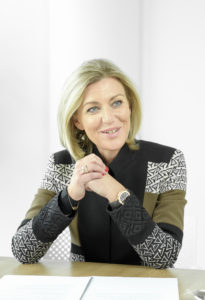
Mrs. Angela Mazza, Regional Chief Operating Officer SAP, MEE
Having the opportunity to interview Mrs. Angela Mazza on the topics that have been both my expertise and passion seemed like a dream coming true. Despite the fact that the interview took place on the very day as the suicidal attacks in Brussels, the atmosphere in the room was full of optimism and mutual understanding. It was a unique experience as four women gathered in the room in a technology company to discuss the issues of leadership and technologies, but soon the scope of the conversation went much beyond, to the issues of corporations and their role in the society as well as the current issue of refugees.
The journey of Angela Mazza is a remarkable on both on a personal and a career level. Born in Naples, Italy, at the age of eight she moved to Switzerland with her parents and she studied tourism. At the age of 25, she switched to technology and IT. She has been working for SAP for 13 years; prior to joining SAP she held senior positions in Oracle and Deloitte. Her corporate career took her all the way from Switzerland to Italy, to the Middle East to Doha, Qatar, but two years ago she moved to Heidelberg, Germany to become responsible for Operations in the Middle & Eastern European region. The fact that SAP walks the talk and chooses well the people who live and breathe diversity is reflected in the quote of Bill McDermott, CEO of SAP. “I’ve always believed that none of us is as smart as all of us. For SAP to help the world run better and improve people’s lives, we need to be the most diverse company in the world. We need strong leaders who role model this – from gender diversity to cultural diversity and differing points of view.”
Mrs. Mazza, how would you describe your fascinating career and life journey?
I would compare it to a discovery journey at sea. There are times when the sea is calm, as well as times when it gets rough. I have always had a map and a compass, knowing where I wanted to go. I am ambitious, dreaming big and I always follow a direction. I still feel like being at sea, with the ultimate goal ahead of me. At this particular moment, it is not expressed as a particular position I want to reach but rather the sense of meaningful work, contribution and impact that I want to make and create within the corporate world. As long as I love what I am doing, every day will be different and everybody be motivated. And it is my responsibility as a leader to make sure that other people stay motivated as on the first day when they started the job with the aspiration of living their dream.
I have just returned from Women of the World festival in London and according to the latest Gender Equality Forum research, given the current rate of progress on gender equality, it will be only in 2133 when the gender parity is reached. How do you see the trend of advancing women to top positions – is it a glass half full or half empty?
It varies country by country but I tend to be very optimistic in general. Looking at the Gender Report by the World Economic Forum, the Czech Republic currently ranks 81 out of 145 countries, Slovakia 97. I do not see this standing that bad as of now. And looking at us, there are four women in this room right now. That, combined with the fact that I just have come out of the meeting with a 50:50 diverse management team in the CEE countries, gives me a lot of optimism. There is still a long way to go but I believe that the answer needs to be tailored to each country and its situation. We all should take steps forward to see that more women advance in their careers so ultimately the glass fills up with more water.
Many companies have recently introduced mentoring schemes to help women to advance in their careers. What is your experience and suggestion for a successful development of talents?
I have already mentioned the importance of having your own goals and an inner compass, but it is true that I have always worked with a male mentor. It enabled me to understand how men think, what matters to them and how to approach them. I believe in the saying that “opposites attract”. My first mentor was my father and he has always supported me throughout my career. Another time it is the person you spend your life with, it can be a husband, a partner, a spouse. My father and my husband have always inspired me and I have always looked up to them and at the same time they have provided stability and support. If a woman is reluctant to ask for a mentor, she is missing the big picture, which means defining ‘what I am missing for the position and who the right person who can help me with the next steps is’. Do not be afraid to share your dreams and then be ready to go the extra mile to reach it. We, as women, should not think in terms of gender. We should make sure we have the right talents and thus are the best person for every position. From my own experience, the more women focus on presenting themselves as women, the less successful they might be because they will always be perceived exactly the way they framed themselves: “as women”, not as the best person capable to do the task needed. Of course, we as women are different and our approach is different, but is there a need to point out the obvious?
We both support the broader notion of diversity, not only in terms of gender, but also age, nationalities, physical abilities etc.
What a notion of soul sisters! When I received a diversity award for the region two months ago, I said that diversity is all about respect. If we really respect different people, cultures, religion, and sexual orientation, we maintain our open attitude, accept them as they are and listen to them. There is a huge difference between respect and a mere tolerance.
That brings me to my next question related to the refugee crisis in Europe and the condescending tone of discussion. You have been a migrant yourself, so how do you feel about this discussion?
Being a migrant myself, I have experienced the tendency of doing more than others. I came from Italy to Switzerland at the age of eight. Just imagine the cultural difference besides the fact that I did not speak the language. But this life lesson was very valuable and forming for me. That is why I am so open to different cultures, interested in world issues. As a migrant or a refugee, you know where you have come from and you have opted for a better life. You do not worry about an extra hour of work and you have no problem going the extra mile. I am therefore very passionate about the topic. In April, a refugee joined our team to help integrate him into the German working culture. I appreciate the different mind-set and the desire for success shown.
With regards to the current discussion about women and quotas being introduced in the largest enterprises, are you a supporter of direct quotas or rather voluntary measures of enterprises?
My position is always to support always the right person for a job, if it is a woman, it is even better. As I have already mentioned, we as women do not do ourselves a favour by getting a job for being a woman. At SAP we have a couple of programmes that might be also inspiring for other companies. And I, during my last 13 years of career at SAP, have never ever had a feeling that I am not getting something because I am a woman. Diversity really starts at the top, with our CEO, Bill McDermott. He truly lives and breathes diversity and then his approach is reflected throughout the company. He has been a great source of inspiration due to his passion for diversity and encouragement to dream big.
Currently, there is a lack of women in IT sector in Europe, even though IT sector might be a good career choice for them, allowing flexible working hours and the trend of work-life integration. European girls simply do not prefer to study science or technology. How do you challenge the trend and how do you encourage young people to explore this industry?
I find the world of IT and technology fascinating but personally speaking, my journey confirms the trend mentioned since I studied tourism. That is why I feel the need about sharing my journey with others, explaining what perspectives the IT world offers and even if you have studied something different, you can join the industry later and still build a successful career. Naturally, attracting people to come and join outside of businesses has become another passion of mine. Two years ago, we launched our Sales Academy programme and in my region of Middle and Eastern and Europe we have around 100 graduates, some of them also from the Czech Republic and Slovakia. Young graduates from various countries have the opportunity to see the headquarters and gain experience in Silicon Valley, to mix and interact with each other, to go back and work on their project. It is fascinating to see their vigor, energy, enthusiasm and the ideas they bring alongside with their personal growth. This academy also focuses 44 on pre-sales positions. I believe there is no need to stress that the mix of graduates is gender balanced. I enjoy having some graduates on my team, I like being challenged, and I enjoy the different way of thinking and acting. I am certainly not one of those who are constantly criticising the new millennial generation. I see them as the true future of SAP.
Despite the positive atmosphere in the room, women who reach the top positions have the reputation of not helping other women. Do you believe that women’s solidarity is still less applied when compared to men’s solidarity?
I cannot say from my own experience that women do not support each other and I always stick to my rule of supporting the right talent – I have seen that once truly diverse teams are formed, these are the best ones functioning. One interesting aspect that I would like to mention based on my observation is the notion that we as women tend to be much more critical about our behaviour towards each other and not supportive enough.
How do you personally cope with the stress and what are your tips for work-life balance?
I am passionate about what I do and therefore I do not perceive my job as being stressful. However, everyone needs to address the issue of work-life balance to make it fit his or her needs. I have learned to adjust my free time so I can really recharge my energy. My free time is limited so I consciously make choices. I love playing golf or flying with my husband, or simply being with my five year old goddaughter, during all these activities I get my energy back. I stopped being around people who were draining me. As a boss, I am conscious about the time off needed for my staff. If I happen to write an email during the weekend as this is the time that suits me, it usually starts with the line “do not read until Monday” and I do not call my people in the evenings. However, I often mention both men and women should be clearer both about tasks and roles that they are performing. It is sad when women give up their career because they do not have a supportive husband but also sometimes men are very stressed about not having supportive wives. I regard the supportive environment and the agreement in a couple very essential for not only a successful career but also for a fulfilled life in general. A few years ago, the issue of a burnout has been discussed. I believe that most of the time the job is not the one thing to blame but rather the ultimate thing, it is only an interface that is mirroring an existence of a problem.
What are your personal top three career tips? And after the long debate we have had, I guess they will be same for both women and men.
- Take action. We define ourselves through actions. Knowledge is not valuable, unless we act.
- Act with passion. Such an approach will inspire and connect with other people.
- Never act without a goal, always know what you aim for.
For Inspiration – Some specific measures from SAP that address the issue of gender equality and leadership How does SAP encourage men in the workplace to engage with gender equality programmes?
SAP is implementing several programmes focused on getting men more involved in gender equality efforts. Men sometimes feel left out of conversation, but play a critical role in helping to create a more inclusive culture. The Men Advocating Real Change (MARC) program from Catalyst, the leading non-profit organisation expanding opportunities for women and business.
SAP’s “Women’s Professional Growth Series”
SAP has had an extremely successful Women’s Professional Growth Webcast Series, which reached over 6,300 employees in 43 countries in 2015.
EDGE certification and its use at SAP
EDGE is the leading global assessment methodology and business certification standard for gender equality. The EDGE assessment methodology was developed by the EDGE Certified Foundation and launched at the World Economic Forum in Davos in 2011. EDGE Certification has been designed to help companies not only create an optimal workplace for women and men, but also benefit from it. Pursuit of the certification highlights the priority SAP has placed on creating a more gender-balanced workplace, an especially difficult challenge in the notoriously gender-imbalanced tech industry. SAP has achieved certification in the US.
Business Women’s Network (BWN) community
The Business Women’s Network is SAP’s largest Employee Network Groups – with more than 8,000 members and 30+ chapters around the world. The BWN is a community of mentors and supporters for the women of SAP that provide valuable insights and input to the Global Diversity & Inclusion Office. They organise/implement in-person and virtual knowledge-sharing events both for employees around the world as well as with marquee partners and their local communities and offer numerous opportunities for women to meet new colleagues, engage with leaders, and connect on key topics of interest.
By Linda Štucbartová
The Best-Run Businesses Run SAP
SAP is the world leader in enterprise applications in terms of software and software-related service revenue. Based on market capitalisation, SAP ranks as the world’s third largest independent software manufacturer.
SAP in figures
300,000
Customers in 190 countries
43 yrs.
Of history and innovation
77,000
Employees in 130+ countries
100+
Innovation and development centers
€20.8b
Annual revenue (IFRS) in FY2015
13,300
SAP partner companies globally
87%
Of Forbes Global 2000 are SAP customers
For Inspiration – Some specific measures from SAP that address the issue of gender equality and leadership
 Increasingly the resignation period, represented by the two months that begin to countdown the first day of the month following resignation of an employee you’ve just committed to hiring, is a time for mischief that you are possibly not paying enough attention to. As a result, that neglect could nullify all of your efforts spent selecting and hiring a new employee, thus squandering the time it took and the money lost each day a key position remains vacant – especially if you have to go back and start all over again.
Increasingly the resignation period, represented by the two months that begin to countdown the first day of the month following resignation of an employee you’ve just committed to hiring, is a time for mischief that you are possibly not paying enough attention to. As a result, that neglect could nullify all of your efforts spent selecting and hiring a new employee, thus squandering the time it took and the money lost each day a key position remains vacant – especially if you have to go back and start all over again.
More than ever companies are striving to keep and retain good employees, rather than to simply roll over and witness them being stripped away. Perhaps your senior management feels the same and why not, good people might be difficult to retain, but they are even harder and more costly to replace. My points is, that some manner of the onboarding ritual of newly hired people should begin as soon as they accept your job and resign from their current company, rather than doing nothing and waiting until their first day at their new job. Otherwise, you might not be onboarding anyone and the fault will be more your own staff’s negligence than a company able to convinced their employee not to leave them and to stay.
For example, I don’t wait until the end of the process, or after the job offer stage to discuss counter-offers with the candidates recruit, I speak about it right from the beginning. I do a lot of things before it is necessary; I enquire with them about their references before they are requested. I talk with them about composing their resignation letters before they get a written offer. I do this as a preventive measure on behalf of my clients as well as to get a candidate to wrap their thinking around the seriousness of what they are doing. Changing jobs, for a good and valued employee is a big decision that bureaucrats or cynics take for granted; we spend more waking hours of the day with our co-workers than we do with our own family members.
For as long as I have been recruiting, during the very first meeting I conduct with any potential candidate telling me they want to look for a new job, I ask them, “Okay let’s say for instance, that we work together and you find a job, receive a job offer you like; when you resign, what happens if your company doesn’t want you to leave? What happens when you resign and they say, “no, we don’t accept and we want you to stay.” What could they do to keep you and convince you to remain?”
The moment a job offer is accepted and signed, I coordinate with my clients, enlisting the help of both HR and management to remain engaged and proactive, maintaining coordinated and alternating contact with the new employee so that each week one of them, and I, communicate with the new hire being available if they encounter such overtures. I suggest the gaining company use the next two month period to meet the new team members, take them to lunch and or meet them for coffee, get to know them because you’re going to anyway, when they arrive on their first day. Bring them into the fold and make them welcome as a member of the organization instead of leaving them essentially ignored, exposed to the forces of their current employer, who could be doing everything in their power to destroy what you were able to accomplish and prevent their departure.
Authoring an actual essay is actually a challenging process. Considering, this is a real assessment of information and talent. And that is precisely why your teachers insist on your posting essays on unique topics, as they can actually depend on the essays you post to assess your mettle. Once more, which can be just why you should ensure you have the best most people that can assist you in your essays. EssaysCouncil.com is definitely the head in essay publishing offerings, with these accreditations developed over the years in the ability of producing to your needy students’ necessities.
- The Best Paper Writing Service
- Good Written Essays
- My Essay
- Term Paper Writing Services
- Buy College Essays
- Best Will Writing Service
- Help Paper Writing
Custom made producing products have right now are a consistent way to obtain guidance for learner community across the globe. You can find scores of corporations web based which serve your school needs. Deciding on the best and also dependable from and this includes is not any quick chore. But we have been in this specific service for long enough to understand your uncertainties and predicaments, and we are able to aid!
At EssaysCouncil.com, crafting essays for yourself is certainly not our organization; it is our objective. Considering we know that by enabling using your essays, we are allowing you to learn about, and expand. After you visit us and inquire us to write down an essay for everyone, of course, if we allow your require, we have been carrying out ourselves completely to all your must have.
We have now along with us a teams of the highest quality authors attainable, and perhaps they are from on the list of teachers and investigate scholars working in varied colleges and universities, along with retired professors with a wealth of understanding that they can provide you with at our service. For this reason we are continually certain that we should be able to provides you with the most unique essays on your stories. Our realized writers will almost always be all set to go to any measurements to ensure that you acquire a legitimate, well looked into and unique essay, composed with your exclusive prerequisites. That only puts us way well before other essay creating organizations. And, have no suspect- we have obtained this standing with effort!
Are you fed track of posting educational written documents? Want to accept tips to essay writing essay writers paper to write online stress away from your jobs?, this is the heaven of efficiency, EssayServices.org. The EssayServices.Org caters all your requirements and can help to excel in your school world. We assurance you with a work using a brighter foreseeable future. Depend on us; it is possible to reduce your pressure with your custom made essay crafting service plan that features only the specialist scholastic authors from United states of america and Britain. Fine posting is concerning sharp wondering and conveying our suggestions- Achieving this, our pro writers are very well versed in essential considering and organising a pieces of paper in every discipline with excellent additionally, on time. So incorporate rely upon and use an uncomplicated psyche.
Our plan is your state together with your profession. We invest our best to meet your requirements and take care of your status. Our custom-made cheap essay simply writing service is sparkling all around the world to keep the reputation of the customers. Our essay service is free of all errors since our tailor-made essay writers are reliable in writing and properly worried belonging to the connection between plagiarism that can affect your future educational living. Women and men around the globe are affected and confident by our cheap essay publishing expert services which is the reason why we obtain plenty of orders placed regularly. Our company is definitely from your telephone which has a supporting mindset. Invest in an essay from the truthful essay authors and safeguard your reputation. Our goal may be to become the best choice in custom essay simply writing professional services for college students from all pieces around the globe by portion them have their most dreamed of essay, cardstock, assignment, training And dissertations customized thus to their requires, on time. Most people grab it challenging to cope with aided by the particularly requiring environment established at universities/colleges / Schools. All that is required could be to have fast and fashionable ample to bag fantastic marks into your training courses. And then to reach this, outstanding publishing abilities is often a importance. When our skilled professional writers build prime quality essays, responsibilities, training, term paper, dissertations and thesis for college students, it aids them comprehend the producing progression perfectly and utilize it eventually in their own instructive vocation.
The one who select an essay from us is served with the custom of being successful, which we certainly have inside our fingers. Our company is listed here to aid students from secondary school to postgraduate stage with this greatest essay assistance; the requirements of the scholars like essay posting, analysis paper formulating, term paper producing, path job writing, Essay creating, book examine formulating, admission essay writing, researching proposition writing, cheaper essay crafting company and circumstance study evaluate/reports composing. We adventure a hike within our reputation using the opinions in our buyers on our essay product each day which visits our faculty of competent essay writers from the inside North america and England. We service each of the people who found yourself in us to invest in essay from us to all usually means.
Given the unpredictability of exactly what is engaged for a touring rock band, including tight agendas, crossing timezones, plane adjustments, and missing luggage, what’re the probability of receiving a swift interview on the exceptional event one popular musician are at home? Effectively, if you’re the main equipment that is Oxygen Supply, the probability of this happening are very great. Russell Hitchcock joined me to get a phone call to answer queries about overseas readers and whats on his pail listing. Read more
Email is part of an IT professional’s everyday routine. Its found in offices being an important kind of transmission, and a few companies use it a lot better than others. There is a difference between a terrible email as well as an excellent email. We periodically may pick up poor routines from others or employees, creating our emails to come under the bad email category. Have a read on how exactly to compose company e-mails to assist change your writing of these five tips. Read more
Many individuals love do it-yourself assignments but there are a few assignments that you need to depart to a professional and one of these assignments is flowing cement. Real development involves not merely tolerance but additionally time and cautious measurements and calculations. Should one is made by you and it has to be redone it can be pricey. You would also have to spend to own it hauled away and removed. Hiring a company buy-essays-online.co.uk – buy essay that is real that is professional would be less expensive over time. If your project is flowing cement for a little veranda or different tiny places subsequently it is not impossible as possible doityourself. If you would like to add a real entrance, steps or cornerstone to get a room you should contact a concrete flowing business. These experts learn how to correctly combine the concrete. They are able to also assemble the mandatory forms of the proper dimension into that your concrete is mixed, and know how long it’ll take to dry and setup.
Ideal a first draft of the article an essay’s draft is a repeat of the type that is difficult.
If your tangible assignments may requirement any added supports in addition they recognize. They understand that it is very important to create the correct variety before serving the concrete using a qualified concrete flowing builder with their knowledge of concrete construction. To avoid the cement from slumping and fantastic into that the cement is mixed, which the real company does, you will need to find out the maximum sizes of the varieties. Some homeowners who choose to do the project that is real themselves produce the shape but do not be sure that it’s degree. Employing a company from the trustworthy development company that is concrete will know how to make certain the proper execution is level the cement is also shallow or also superficial as well as so basis is degree is a few areas. Not being level triggers deformation and irregular drying in the cement that is added. It is very important that you incorporate the dried cement and it and gauge the water.
Remember that it is to start with a of flavor, and second: training is taken by everything.
Some that are doing it themselves stirring until it and then add concrete, simply fill water in to a package "looks about right." The contractor that is real understands that it’s important to assess everything properly from cracking as it dries to prevent it. Yes, when it is a task that was tiny a number of the cracks may be packed and repaired without too much of an expenditure that was additional. If it’s a big undertaking, this is a significant cost to repair the chipped foundation. Qualified concrete companies has understanding to accomplish your tangible project rapidly and correctly, encounter, and every one of the methods. Regarding the publisher: This article is penned by Richard who has worked with a real pouring business for more than 6 years now and it is presently applied with Bama Concrete Finishing of Al. The business is one of the major Entrance contractor delivering the driveway structure that is best in the area. The business takes both residential function and commercial work and gives providers in Gadsden Huntsville regions up.
Because a really small age I liked to create lengthy stories. When the majority of the children wherever hectic using activity results and dolls, I had been busy publishing up long documents and reports from the top of my head. My parents perplexed. They prompted me obtain from the home a while and to play external. I did so only grudgingly. The web was an enormous support for my imagination. I had been able to share it with millions of people at the click of the option. Read more
Edit Report Just how to Publish a Review The work of the food writer is always to precisely convey odors, finishes, the choices, display of food consumed in a bistro. You discuss the foodstuff but in addition about the atmosphere, team understanding how a staff treats you and recognizes the quickness of support, another customers, the typical feeling of the diner or cafe. It is not a job proper squeamish and you won’t always be enjoyed by way of a number of individuals in the diner industry nevertheless you may order regard and obedience should you a reasonable, and well-reasoned task inside your write ups and the method you handle them back. Read more
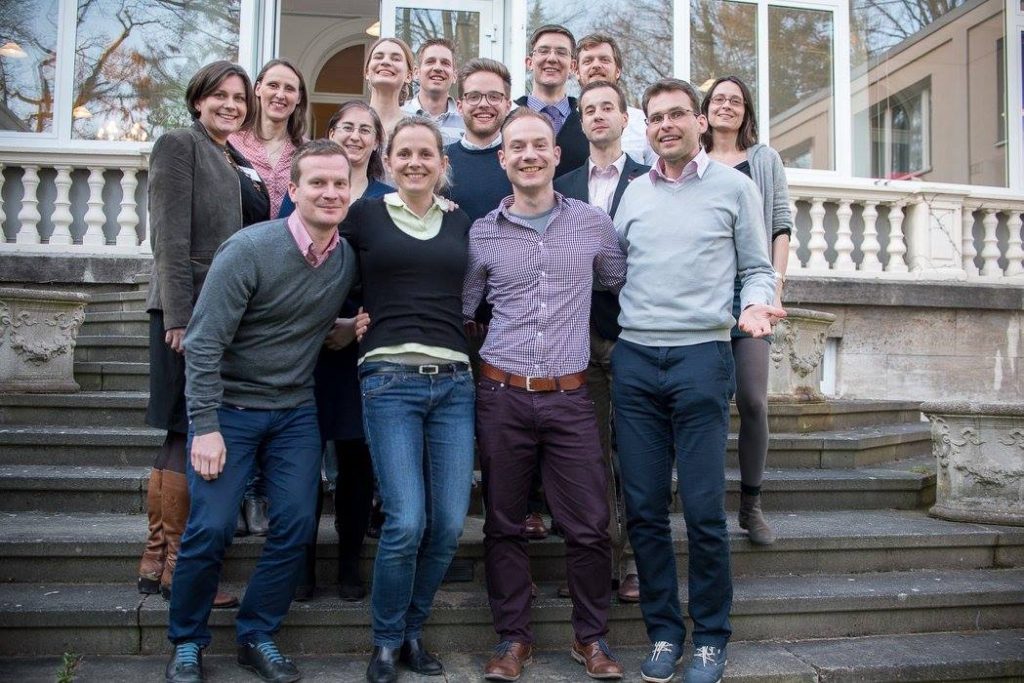
The 7th season of the Czech-German Young Professionals Program has been officially launched. During the first workshop which was held in Berlin, the participants had the opportunity to get acquainted with many distinguished personalities, among others with the Czech Ambassador to Germany H. E. Tomáš Jan Podivínský, or visit emergency accommodation for refugees. The photos from the meeting are available here. The project is organized in cooperation with the European Academy Berlin and kindly supported by the Czech German Future Fund.
 You and I claim that we are fair, impartial, and free from stereotypes and biases. Science and research shows it is impossible to be free from natural propensities that make all of us fall into what is called default thinking. A place we go as a consequence of our upbringing, cultures, and yes the way our brain works.
You and I claim that we are fair, impartial, and free from stereotypes and biases. Science and research shows it is impossible to be free from natural propensities that make all of us fall into what is called default thinking. A place we go as a consequence of our upbringing, cultures, and yes the way our brain works.
So the first thing about getting real is to understand that it is of human condition to be biased! There you have it! In order for us to function in a world that subjects us to a 11 million pieces of information at any time, we need to use filters such as: perceptions, interpretations, preference, and selective attention. These are called mental heuristics. The tricky part of this is that many times this process yields wrong or less than desirable outcomes. In my work of gender integration, this issue is pivotal. Unless we get to talk about the elephant in the room and develop some type of oversight to keep an attentive eye
where “the elephant” wants to go, we will lose this battle. There are great tools now you can use to “manage” this situation and help you and your team achieve optimal decisions. Take a look at Daniel Kahneman work, it’s fantastic. The most important step is for you to seek these tools!
My work helps both men and women understand, become aware, and develop an inner voice – dialogue that helps temper and “calm” the natural propensity to jump into generalities and perceptions that keep everyone stuck! This is the reason I wrote my book.
The second thing we want to do is for men and women, to reframe the way female attributes are described and many times devalued, as desirable, yet not a par with what the business world “needs”. Funny since collaboration, empathy, good listening skills, are attributes that come at the top of the list of what is described as core competencies
needed to navigate and succeed in the new global economy. So let’s start to praise these characteristics and talk about them without hesitation. Let’s remember we are all in this together!
The third thing we need to do to get real is to understand that professional development programs need to be adapted to the gender nuances that help everyone debunk gender biases and stereotypes. This is what yields gender integration. The so called “universal” principles of leadership have to be experienced and articulated with a voice of authenticity and credibility. I get to witness those transformative moments, when people get real, when they become aware and experience their own
AH-HA moment! Priceless!
By C.Dennehy
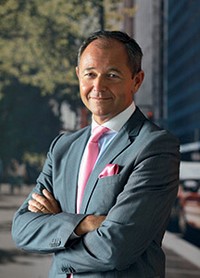 Tennis and life are alike, both must be played to the last ball. In order to go all the way, though, we must learn to manage our physical, emotional, mental and spiritual energy.
Tennis and life are alike, both must be played to the last ball. In order to go all the way, though, we must learn to manage our physical, emotional, mental and spiritual energy.
Technological development and changes are gathering speed and experiencing an exponential growth all over the world. At the same time, our lives are being changed at an equal speed – everything around us in a constant state of flux and the sheer volume of information that surrounds us keeps multiplying all the time. The world is now digitally interconnected and has brought about the phenomenon of global competition. Everybody now competes with everybody else because nearly 99% of all information is widely available to all Internet users on the planet. What makes the difference between a winner and a loser in this new reality is the speed of reaction.
But this pressure to make fast decisions comes hand in hand with two potentially negative consequences: stress and compression of time. In my opinion, we are all suffering exponentially growing levels of stress and the pressure put on managers also keeps increasing. Time compression was defined in 1995 by my strategy teacher and one of the best strategists in the world Mike Kami. Echoing Moore’s law of technological progress, time compression basically means that the time available for decision-making is cut by 50% every two years. In other words, decision that we had ten minutes to think about two years ago must be solved in half the time today. This pushes business to make their decisions really fast.
Let me give you just one example. Thanks to technologies, analytical tools and a relatively small staff, Ryanair has been able to make crucial decisions very fast. Traditional airlines, on the other hand, remain under the influence of their labour unions and their capacity to make quick decisions is radically impaired, consequently damaging their success in the market as well as their bottom line.
In other words: Moore’s law and time compression offer an advantage to smaller and more flexible organisations. Larger entities cannot make decisions at the same speed even if they take on board the principles of lean and agile management. My experience in Microsoft confirms this observation. When I joined the company, it had a total of 6,000 employees around the world. When I left, there were 125,000 of us. Surely, the decision-making process must be affected.
In addition to stress and time compression, we also suffer from an ever decreasing capacity to concentrate. Mobile devices, social networks, emails and phone calls constantly bombard us with new information. Studies show that people are now able to concentrate for just 12 minutes at a time. Furthermore, there is research indicating that is you are thinking about a topic while answering emails, for example, your IQ drops by 10 points. Such a dip in IQ is equivalent to going without sleep for 36 hours. By the way, smoking a joint takes away just four IQ points. The information overload phenomenon is not unknown in the Czech Republic either. According to a study commissioned by the MF Dnes newspaper as many as 34% of Czechs felt threatened by the burnout syndrome in June 2015. In August, Intel published the results of a research that shows that two thirds of Czechs take their computers and mobile devices on vacation and actually use them to work.
As the pressures of stress, time compression and falling attention spans increases, the importance of resilience increases. Resilience is the ability to keep one’s thoughts and emotions under control in order to deliver the best possible performance in a highly demanding environment. I believe that no matter what one does, the result is 90% the product of the mind and 10% the product of the actual activity one is engaged in. The only thing that we can claim to have totally in our power is our thoughts – the processes running in our brain. I like to remind people that each of us is a Chief Mind Officer in his own right.
Our mental activity is 10% conscious and 90% subconscious. Everything that we are aware of falls in the conscious category – including our results and behaviour. The subconscious encompasses our past thoughts, emotions, mental images – our personal identity. The good news is, we can tap into our subconscious, too. For example, all visualisation techniques are based on the idea that a vision is the image of a world that does not exist but in which we believe.
How do these social changes affect athletes and top managers? Do they affect them in different ways?
The first difference is training. A top athlete spends 90% of her active time training. As for top managers, the question is whether they get any training at all. At best, his company may send them to a course once a year but they will still be expected to deal with work-related tasks, emails and calls.
The second difference lies in performance. An athlete’s top performance occupies 10% of her active time while a top manager easily devotes 12-15 hours a day to performance and often works on weekends, too.
The third difference comes in the form of recovery. Athletes dedicate relatively lot of time to it. They train 3-4 hours a day and then focus on recovery and mental preparation, including a healthy diet, ion drinks and massages. A manager, on the other hand, has little or no time for recovery. Although they often get 4-5 weeks of paid leave each year, they tend to spend most of their vacation sitting in front of a computer screen with a mobile phone glued to their ears.
For an athlete to deliver a world-class performance, he needs high-quality nutrition, a balanced diet, adequate sleep and the ability to concentrate his energy and strength at the time of the actual performance. In the case of pole jumping, for example, it takes only a few seconds to decide who will get the Olympic gold. In order to prepare for this fleeting moment, athletes surround themselves with entire teams that provide the necessary support.
When it comes to managers, sadly, once again, things are much different. Due to time compression, managers often do not eat at all, drink only coffee and if they do eat it is fast food brought in by their secretaries.
And what about career spans? Things differ sport to sport, of course, but the career of a top athlete lasts between 5 and 15 years. It is between 30 and 40 for managers, though. Many people were astonished when I left Microsoft after 22 years in its top management. However, nobody would be surprised at an NHL player leaving after 22 years.
I doubt that top managers will ever work until the age 65. I believe that more and more people will decide to do exactly what I did. They will leave around the age of 50 because they will feel the urge to become mentors and coaches and help others get to the top. When outstanding athletes get to the end of their active careers they transition into training others but unfortunately managers work until they are really forced to leave. What they fail to realise is that when they finally take the leap they might not have any energy left to step into the next phase of their lives.
What happens during the off season? Again, it depends on the sport but most athletes have a period of relative rest lasting between two and four months. They spend this time doing fairly light physical training in order to stay in shape. For a manager, however, taking more than a few days of vacation at a time is unthinkable.
We are not talking only about time compression in general but also about the growing pressure from investors who want to see growing financial results on a quarterly basis. Top managers’ season and performance expectations remain at a constant level throughout the year.
Psychology also offers an interesting insight into the differences between sports and business. I think sports psychology is much more advanced than business psychology. Sports experts and coaches have long known that sport is not only about what athletes do and how they play, but also about how they think about themselves and how mentally strong they are.
In his book The Inner Game of Tennis, American coach W. Timothy Gallwey says that every tennis player has two selves: the self that plays and the self that thinks. To win, the tennis player must be able to connect the two. A former Slovak sledger once told me something similar: “A better sledge might give you a 0.2 second advantage. A stronger mind and better concentration can give you three seconds, though.”
The goal of sport psychology is to find out how to get the best out of an individual. Business psychology, on the contrary, takes an entirely wrong path and focuses almost exclusively on time management – helping people to save time and prioritise their tasks. It fails to take into account the management of human energy. The ice-hockey coach and my friend Marián Jelínek says: “We now have excellent athletes who themselves think they are rather dumb and excellent managers who completely disregard their physical condition.”
The Ancient Greeks were able to bring together all four main types of energy: physical, emotional, mental and spiritual. They added beauty and the good to the pile and came up with the concept of kalokagathia, an ideal of a complete, flourishing human being, which we have, sadly lost today. In order to achieve a long-time balance, a manager must take good care of her physical fitness and an athlete must strive to develop his intellect.
The resilience that we need to build up today is precisely about our ability to control and correctly channel energy while maintaining positive thinking. Sport teaches people not to give up. I myself have learnt that tennis and life have something in common: “On the tennis court and in life, we are ultimately left alone to make all the important decision. People may give you advice but it is up to you to decide. Furthermore, both tennis and life must be played until the last ball.”
I have recently talked to several athletes who ended their active careers. These people often think that they have little chance of finding success in “civilian” life but I could not disagree with them more. Sport has equipped them with resilience and these people know how to use their energy and keep their emotions in check. I think former athletes are in a great position to succeed in other walks of life. As I already said: “Everything you do is 10% about the activity itself and 90% about your thinking.”
Is there anything that could help us – whether we are top managers or regular employees?
Studies show that people tend to sleep less than six hours a day in the modern world. I think this is too little. Everybody should take at least seven hours sleeping each night and they should go to bed and wake up more or less at the same time each day. Having a proper breakfast and then five to six smaller meals a day also helps improve performance. However, we should pay equal attention to the quality and composition of our meals. Fruit, vegetables, fish, avocado, blueberries, green tea, salmon, tuna, spinach and fish oils should dominate our diet because all these foods are good for the brain and improve its function.
People also all too often underestimate liquid intake. This is especially true for people two spend a lot of their time speaking, including most managers who should drink at least two litres a day. The best beverage is, of course, good old water, with no sugar added. We must be very careful about sugar because of its glucose response curve with its fast onset and high peek, which very quickly falls deep under the average, making you feel very tired.
Taking regular breaks is also important. Our forefathers knew the drill: they worked for a while, took a rest and started working again. Today, however, we keep busy all the time, then go to bed, wake up and the rat race starts again. It is wise to develop a regular rhythm of work and breaks. The best strategy seems to be to work for 90 minutes and have a 15 minute break afterwards. It keeps people more productive and alert. You should also add regular physical activity to your routine. Try, for example, going to the gym or for a run in the park two or three times a week.
Managers should also take up meditation. Meditation improves concentration and mindfulness, our ability to be present in the moment. It has a positive effect on our brains and makes us feel more emotionally stable. There have been famous experiments with monks who devote ten thousand hours or more to meditation and although they experienced pretty difficult things in their lives, they remained emotionally strong and maintained an inner peace.
Let’s talk a little about mindset, too. In order to face up to all the challenges and live our lives to the fullest, we need to constantly develop our mind without fixating on a single thing or goal. Our thinking must evolve as we try to improve ourselves.
We should concentrate on the journey rather than on the destination. If we take the right steps and live according to the principles I just described there is nothing that could stop us from achieving our goals. Furthermore, as we make progress on our journey, we must not ignore our inner voice our intuition. Many people are reluctant to trust their intuition because it seems to have no rational basis and cannot be explained by figures and analyses. On the other hand, let’s remember that intuition is the result of more than 10,000 years of evolution and there is simply no reason for us to disregard its messages.
90% of things that we people do are repetitive. We are the embodiment of our habits and behaviour patterns acquired throughout our lives. We do not like changing ourselves and we are quite happy with the novelty brought by the 10% of new things that we allow into our lives. This is precisely why it is so important to develop positive habits and rituals such as morning meditation, jogging and a healthy breakfast. It often takes these three simple rituals to set us on a positive path each day.
I think that positive habits are one of the key factors that can help us build resilience and success in the highly demanding business world of our times. Each and every one of us should learn to use our physical, emotional, mental and spiritual energy wisely in order to reach a better understanding of our life mission and devote our efforts to those activities that can actually take us to the ultimate goal of our life’s journey.
By Jan Mühlfeit, Global Strategist, Coach and Mentor, former Microsoft Chairman for Europe
Magazines and Journals With Locks Journals with locks give a good way to keep your personal feelings and musings safe and personal. Preserving a record can be very tough on the daily basis, nevertheless it is worth the effort. I have my Lord Mommy’s diary from several years ago and have trained so much from her log about the battle moments. I desire my http://buy-essays-online.co.uk/ very own Mother had kept a diary. Read more
"What color costume top can I don?" is actually a frequently asked question. There are many various things that go into choosing the colour that is proper for a costume shirt. There are various hues and considerations to check out if you’re buying a extra style in your outfit clothing while for traditional dressers, hues for example lightblue or bright shirts are usually safe. Natural Colour Whenever choosing a shade of costume clothing, you must choose a color which precisely matches normal colour and your own personal tone. Read more
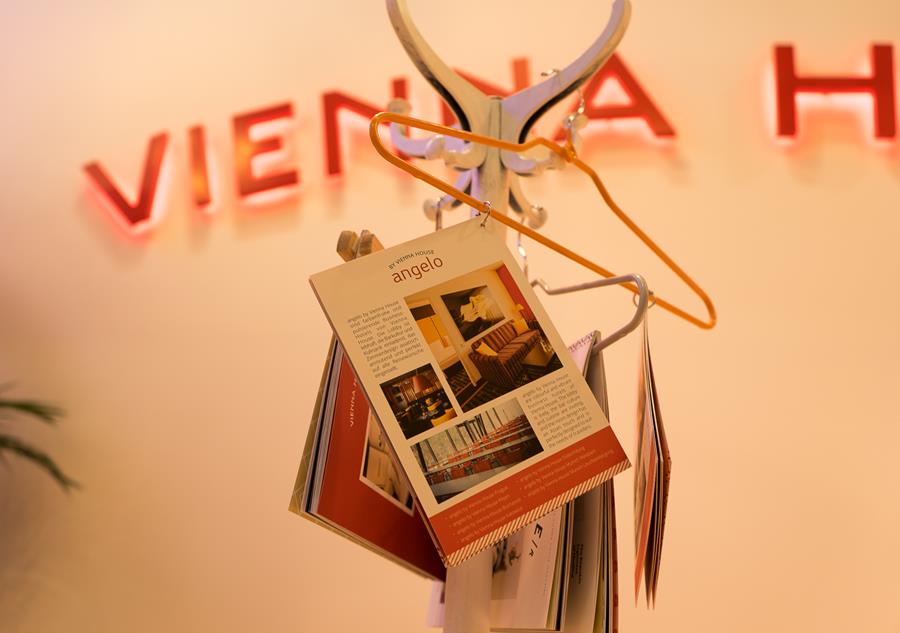
The overall presentation of Vienna House at the ITB Berlin 2016 was honoured with the third place at the ceremony of the Best Exhibitor Awards in the category “Hotel Business”.
During the trade fair all individual and communal stands were rated according to a set of criteria. In addition to originality, particular consideration was placed on friendliness, level of content and sustainability. Ralph Alsdorf, General Manager at andel’s by Vienna House Berlin, participated in the ceremony and accepted the award on behalf of Vienna House. This award is a great acknowledgement of the success achieved as part of the Vienna House rebranding journey over the last months.
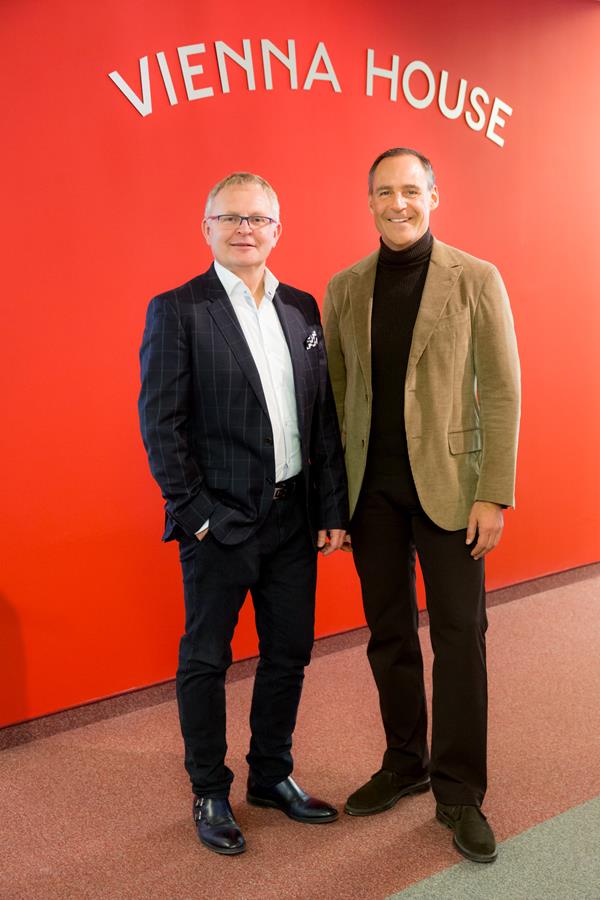
From left: Martin Ykema, COO Vienna House, and Rupert Simoner, CEO, Vienna House
Furthermore, during the fair, Vienna House received many compliments and visits from colleagues from the hotel and hospitality industry. Additionally, countless photographs were taken by fair visitors passing by.
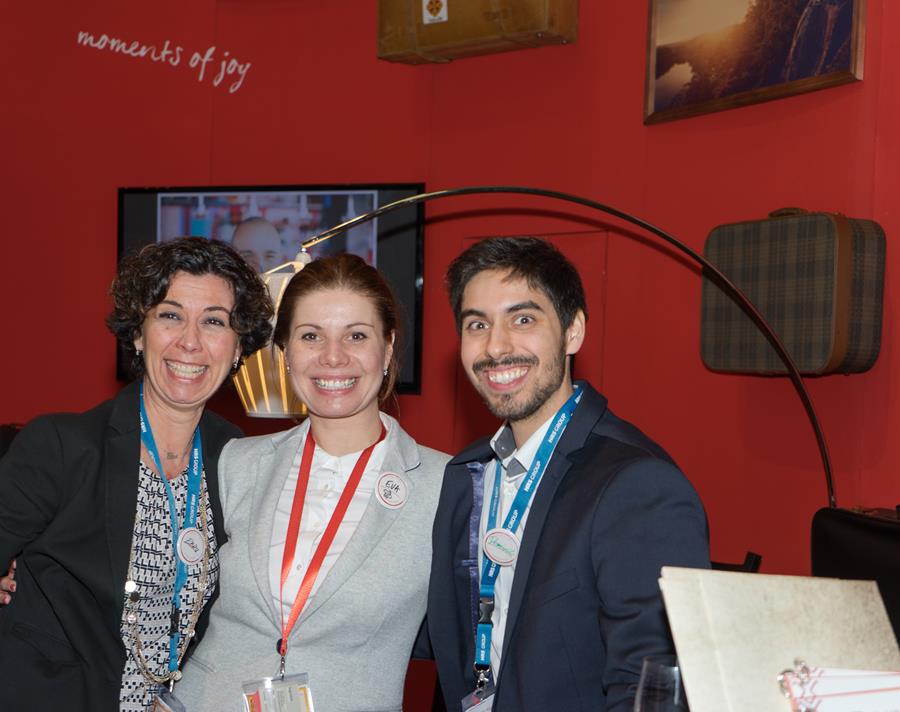
Eva Ferenčíková, Senior Sales Manager Leisure, Vienna House Czech Republic and her colleagues
You can download the Minutes here.
It is our pleasure to introduce to you new Board of Directors elected for one year (until March 2017). Also we would like to thank to all members for their votes.
Nordic Chamber’s Board of Directors:
- H. E. Annika Jagander (Ambassador of Sweden to the Czech Republic), Honorary Chairwoman
- Zuzana Chudoba, (FIN), YIT s.r.o.
- Andrea Colantoni, (SWE), HUDSON Recruitment
- Tomáš Duba, (DEN), VACON , DANFOSS s.r.o.
- Nils Jebens, (NOR), Kampa Group s.r.o.
- Stefan Lager, (SWE) Zenterio s.r.o.
- Petr Lukasík, (FIN), TIETO CZECH s.r.o.
- Zdeněk Majer, (CZE), ŠKODA Transportation s.r.o.
- Marie Passburg, (SWE), Skanska Property s.r.o.
- Marika Přinosilová, (SWE), SAAB Group s.r.o.
- Radek Socha, (SWE), SKF Czech s.r.o.
- Renáta Váchová, (SWE), Alfa Laval s.r.o.
“In your own bosom you bear your heaven and earth,
And all you behold, though it appears without,
It is within, in your imagination,
Of which this world of mortality is but a shadow.”
– William Blake
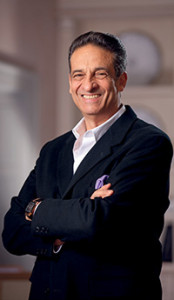 As we enter 2016, there are two critical movements in our world. The first is a disquieting transition towards greater unrest, insecurity and uncertainty. The second is less obvious but profound, and it is occurring more rapidly than most of us realize. An enormous number of people around the world are earnestly moving to raise their level of consciousness. They recognize that this is not only the best means to long-term personal fulfillment, but also the only path to a sustainable peaceful future for humanity.
As we enter 2016, there are two critical movements in our world. The first is a disquieting transition towards greater unrest, insecurity and uncertainty. The second is less obvious but profound, and it is occurring more rapidly than most of us realize. An enormous number of people around the world are earnestly moving to raise their level of consciousness. They recognize that this is not only the best means to long-term personal fulfillment, but also the only path to a sustainable peaceful future for humanity.
In this context, I would like to share some thoughts for your consideration and meditation. They are a few ideas I have absorbed over the years from my teachers, and they have made a positive difference in my life. I hope they touch you as they have me.
Abundance
We are born with everything we need for a life of fulfillment and success. But, all too often we measure our love, joy, health, wealth and other qualities by comparing ourselves to others. Perhaps thinking thoughts like, “I have a comfortable home, but not nearly as nice as my good friend John,” or “I have a loving husband, but not nearly as loving as Lucy’s relationship with her husband, or “I have a good job, but I don’t make as much money as my colleague,” or “I have a dependable Volkswagen, but my neighbor has a much nicer Mercedes.”
These comparisons are known as “object referral,” namely looking outside you for value and validation. “People will like me and respect me much more if I have a Mercedes instead of this Volkswagen.” The fundamental point that external comparisons miss is that a life of fulfillment always comes from within, knowing that you came into this world with everything you could possibly need to be happy and successful; and you can access these seeds of abundance whenever you so choose.
Even when things seem to be going wrong, there can be comfort in learning from your situation and recognizing that you possess the power to focus your energies on new possibilities, and the possibilities for abundance are endless. There are no limits to what you can have. Take time to think deeply about each situation that challenges you and find those seeds of potential success that will attract greater abundance into your life.
You and you alone, create your personal abundance from an infinite eternal source—Cosmic Consciousness. The core of your being, your spirit, is the ultimate reality, not what you perceive with your five senses. It is the root and ground of the universe, the source of all that exists. So why not internalize the following affirmation, “From this moment on, I invite unlimited abundance into my life.”
Much of your belief system has been shaped throughout your life by the thoughts and preferences of others. It is locked in your subconscious, connected to your ego, and it often runs your life. Is your belief system providing what you really want in life? If not, why not decide what you truly believe. To do this you must dig down deep into your core, your spirit, your soul. Everything you desire is within you.
It easiest to find your core when you are living your Life Purpose, which is based on your strengths, something you do well and love to do, something that makes this world a little bit better place. In doing so, financial abundance will likley follow; but, more important, you will find satisfaction, confidence, optimism and joy; you will experience abundance in all its forms. You will have manifested your dreams to live a great life. If you are not in alignment with your Life Purpose, ask yourself, “What do I love to do and do so well?” “How can I use this to serve the world?”
The Universe—Mine, Matter and Spirit
Your Mind is divided into three parts, your Subconscious, your Ego and your Conscious Mind. The latter is the reasoning force that tells you what you can or cannot be, do, or have. Matter is the five-sense experienced physical world around you that shows you the results of what you hold in your mind. Everything that happens to you, whether you label it “good” or “bad,” is brought to you by your mind. Spirit is your deepest domain, the place of your interconnectedness with the infinite mind of the universe—Cosmic Consciousness. It is your absolute entrée into the field of pure potentiality.
Accessing the spiritual realm through the daily practice of meditation opens the way to manifesting your deepest desires. By changing your thoughts, beliefs, expectations, and intentions and connecting with stillness, you allow the unbounded, unlimited abundance of the universe to flow easily and effortlessly into your life. Why not focus on what you want to attract into your life? It is not difficult to do, unless you think it is so.
Consciousness
The nonphysical part of your being, your spirit, is buried deep within your core. You are like an onion with many layers that must be peeled back to reach your inner light, which is Personal Consciousness. And once you do, nothing is impossible as your Personal Consciousness is connected to all others through Collective Consciousness and to Cosmic Consciousness, as well. To access your inner light you must release your world of thoughts, feelings, perceptions and beliefs. The best way to do this is through daily meditation. It is a power beyond powers.
As you quiet your mind in meditation you will eventually squeeze out all interfering thoughts, even if it is for just moments at a time. In these “gaps” of nothingness you will begin to glimpse the deepest level of your spirit or soul. Your consciousness will expand and transcend the three-dimensional world, at first perhaps just for a few moments. And in this brief state, you will be amazed at the creative sparks that emanate from the universe into your mind. You will find ideas and solutions to challenges you never thought possible in your normal waking state. That is the power of the gap.
Meditation
You can obtain the details for a simple procedure for meditation elsewhere. However, allow me to share with you an exercise you can practice immediately for a taste of the power of meditation.
Sit quietly alone in a room with reduced lighting and filled with a modest volume of your favorite non-lyrical inspirational music. Assuming you are not a frequent yoga practitioner, sit with your back erect on a straight-back chair, feet flat on the floor, arms comfortably on your lap with your palms facing upward.
Close your eyes and breathe normally for a couple of minutes and listen to the beauty of the music. Then, slowly begin to take in deep breaths, sequentially extending first your upper chest, working your way down to your diaphragm and stomach. Hold your breath for five seconds and then slowly exhale. Do this five to ten times and then return to normal breathing. You will experience a quieter mind.
Now think to yourself, “Who is really listening to this music?” You will likely feel a still presence and several moments of the absence of thought. You are in the gap and that still presence that you feel is your spirit, your soul, or whatever you wish to call it. Deepak Chopra calls this a state of Choiceless Awareness. Should you remain in this state through the power of meditation, you can manifest essentially anything you desire into your life. The only constraint is that it not bring any physical, emotional or spiritual harm to others. The possibilities to fulfill your dreams are endless.
Field of Possibilities
The unlimited power of Cosmic Consciousness is always available to you. Making choices through the power of this unified field can bring a more fulfilled life for you and for those around you, and also help create a better world. Besides being intimately in touch with this force and the practice of meditation, it is also helpful to cultivate waking stillness by spending some quiet time in nature to notice and absorb the beauty that surrounds you. Listen to inspirational music and uplifting stories and cultivate relationships with optimistic people. In doing so, embrace your potential to be, do and have whatever you can dream.
It’s All About Love
Nearly all of the greatest thinkers throughout history eventually came to the same fundamental conclusion in one form or another—Love is the most powerful force in the universe. In its deepest state it can literally move mountains. And love is your absolute birthright. It is the essential, in fact, the necessary and sufficient condition for a fulfilled life. In the words of the metaphysicist, Neville Goddard, “Don’t go seeking that for which you are. Those who go seeking for love, only manifest their own lovelessness and the loveless never finds love. Only the loving find love and they never have to seek for it.” So, as suggested by folk rocker Stephen Stills, “Love The One You’re With!” It’s the means to all your dreams.
I wish you a happy, healthy and wonder-filled 2016!
Sat, Chit, Ananda!
Enjoy your journey, make a difference!
 With all the press about diversity, inclusion (do you remember, publicity about lack of diversity at the Oscars not so long ago?), women in leadership, and the need to be open minded about religious and cultural differences, one might ask “is diversity and inclusion becoming one of the hottest topics of today”?
With all the press about diversity, inclusion (do you remember, publicity about lack of diversity at the Oscars not so long ago?), women in leadership, and the need to be open minded about religious and cultural differences, one might ask “is diversity and inclusion becoming one of the hottest topics of today”?
I’d say possibly yes. Why? Because diversity breeds innovation, and innovation breeds business success. In addition, research supports it. For example, the McKinsey’s study (2015) shows that gender-diverse companies are 15% more likely to outperform their peers and ethnically-diverse companies are 35% more likely to do the same. And the Deloitte Australia research (2013) highlights the fact that inclusive teams outperform their peers by 80% in team-based assessments.
Bearing that in mind, let me explain what diversity and inclusion looks like in practice and how it can be beneficial to a business.
Diversity and inclusion – what’s in the name?
If you Google the phrase ‘diversity and inclusion’, quite a few of the most prominent results are links to the distinction between the two terms, an indication that organisations might still be struggling with how to define this term, what it means and how to achieve it in a workplace.
I like to think about diversity as diversity of thought which is much more than the traditional approach taking into consideration ethnical background, gender, etc… Diversity of thought actually represents diversity of opinions, thought processes, style at work, and relationships, to name but a few; basically, it is a result of everything that has had an impact on us individually to date. These differences in the workplace can stimulate innovation, spur insight and increase efficiency, which also contributes to creating a culture open to new ideas and business that prospers.
Inclusiveness is closely linked to diversity and in fact supports it. It needs to be felt within the organisation – everyone must feel they are being heard. Embedding inclusiveness requires a culture change and that can take time, from months to years, depending what ‘baggage’ a particular company carries – it can be its origins, who runs it, and even what type of people work for it. As you can see, there can be quite a few obstacles to overcome before companies achieve inclusiveness should they wish to do so.
How do we build diverse teams?
How do we ensure diversity and inclusion is fully embedded within the organisation? It is not easy – it starts with thorough long-term planning and developing diverse teams. If we hire people who are like ourselves, we are creating very comparable teams where nobody is challenging the status quo and no one is coming up with big ideas. In the current business environment, this is unviable. In addition, for this concept to be truly successful, I believe diversity and inclusion must be strongly supported from the top.
Companies naturally want high-performing teams and people who inspire others, so therefore, they need to embrace diversity and inclusion in full, create a company where people’s different views and opinions matter, are listened to, considered – not simply dismissed. Diversity without inclusion cannot bring full benefits in the area of employee loyalty and engagement.
Some companies have begun taking advantage of diversity and inclusion in a workplace and have been doing a great job. Tim Cook, CEO of Apple who is believed to be most powerful gay CEO, wrote: “Long before I started work as the CEO of Apple I became aware of a fundamental truth: People are much more willing to give of themselves when they feel that their selves are being fully recognised and embraced. At Apple, we try to make sure people understand that they don’t have to check their identity at the door. We’re committed to creating a safe and welcoming workplace for all employees, regardless of race, gender, nationality or sexual orientation.”
And finally…
The demographic changes happening globally require leaders to be more open-minded and flexible in order to attract the next generation of prospective employees from a wider pool and from diverse backgrounds. Therefore, diversity and inclusion is becoming a necessity in a workplace – embracing it should be a way of life for a company and an ingrained part of its very DNA.
The workforce behind every business and organisation operating today continues to be the greatest asset to contribute to its competitive advantage. The potential to improve business performance is locked up in the individual and group potential of diverse employees, and can only be unleashed by creating an inclusive working environment. It’s a win-win situation.
Just as Stephen Covey, an American educator, author, businessman, and keynote speaker, once said: “Strength lies in differences, not in similarities”. So, how does your company stack up when it comes to diversity and inclusion?
Were identified from the measurement of dilemmas we go up against, thus todo effectively in the business environment, we each must constantly develop our problemsolving potential. canterbury bulldogs sign parramatta eels star We ought to build our problem-solving muscles the identical way someone calculates while in the gymnasium. The best way to get tougher is to force against more heavy dumbbells, and the way at solving problems to get better is to remedy greater and more problems. To start, when youre up against a problem, continue a fact-. Read more
Treatment out studying yet another dialect, you have to be sure the teaching that youre setting aside arent thus ordered that you might not get any what this means is from habits and the approaches. You need to have the ability to discover at rate that is special, and its particular important that each bit of the challenge is fond of the level that it fits the huge needles. Visit with this web site. Usually, you may end essays for sale up with plenty of bits of ugh and get terminology to put all of them together. Read more
An assignment to understand a work of literature may seem overwhelming. Finding out things to interpret and where to start, what fictional aspects to research does not have to become a job that is impossible. Pick elements or three or two fictional features of the task you have been expected to translate. The article should have introduction and a transparent thesis. grill mates coupons It should contain body lines environment and covering the factors you’re interpreting, including characterization symbolism, themes or mood. Read more
If uk custom essays you are currently looking for a Push Button strategy to produce thousands online don’t read this. If it had been not really difficult subsequently teenager magazines would have "How to Make Thousands On-Line" as their address element will need a few years of work that was hard, although it could be done. You’ve to have others working out for you and you have to handle your on line work as a business. blazblue continuum shift extend vita Many people are still buying Magic Cash Option. Read more
General Electric (GE) has a longline of devices. Which range from appliances to dishwashers to ventilation methods, many GE product opinions in a variety of customer publications and sites are largely advantageous. Read more
Class management can be quite a challenge for some fresh teachers plus some experienced instructors. Inside method courses’ beach, almost no interest is dropped at the overall gestures that occur in an effective classroom. Modest changes inside the classroom will assist you to sort the heartbeat of the classroom. Get awareness. Seek out the eyes and ears of each pupil, before you begin a session. Trying to chat over small class talks and disruptions will only keep room for the terms that are frequent for example “I never noticed you say that “, “We never talked about this”, and ” I dont determine what Im likely to do. ” Wait 3-5 moments before continuing with activities, if needed. Read more
The announcement of an historic agreement to combat climate change after two weeks of intensive negotiations the recent United Nations summit in Paris was a victory for the Czech Republic and the world.
Clash of Clans Upgrade: Repairs For Hacks Leak, New Provide Sneak Peeks
The major Clash of Clans change claimed on the first ClashCon recently is scheduled for soon this Dec, all this Conflict of Clans bring up to date is big just one.
Free download for clash of clans game hacks that can amaze you
Creators in back of Conflict of Clans, begins creating sneak peeks around the new enhance creating Nov. 23, previous to formally submitting this new Conflict of Clans bring up to date in the right after 2-3 many weekshref=””>http://coc-igems.com/clash-of-clans-elixir/.
Areas this give off time frame around the new Clash of Clans modernize as all over Dec. 7, running over point frequently teases sneak peeks for approximately 2-many weeks earlier relieving an modify for realistic.
So what will we expect to have within your new Conflict of Clans enhance? To start with: a totally new place 11 Community Hallway. Changing to Place Hallway 11 will unlock the modern hero, who can total price 6 thousand Elixir and will most likely be trying to play a healer position.
A brand new protective framework for anybody who has unlocked Metropolis Hallway 11, a defensive fortification that appears like a huge eagle, has been as part of the new improve.
All Conflict has posted display grabs that report exactly how the new eagle defensive setting up will continue to work, but mainly, following a nominal quantity of troops are stored on the battlefield, the eagle�s eyes will pulsate yellowish and secure on specific troops in advance of when starting its roof covering href=””>http://coc-igems.com/clash-of-clans-gold/. A inexplicable cauldron appearing thing appears to be, which sends a giant pillar of injury up in a straight line up to the sky just before experiencing it can come crashing down on the enemy�s troops, dishing out splash damage during the process.
Also in the new Clash of Clans modify is known as an maximize with the chart overal size as well as something called a �village shield principle.� Information is even so sparse on the the �village shield concept� might be, although the builders are additionally contemplating adjusting shields in this up coming Clash of Clans enhance additionally.
Aside from that, within the go on to tackle Clash of Clans dragon city gemmes http://coc-igems.com/clash-of-clans-elixir/ coc-igems.com hacks to settle activated 24/7, SuperCell may be developing program timers to trap cheaters. Addititionally there is anything at all referred to as �personal break� that was declared, but nobody is actually clear what meaning. It may be used by a vacation sort of strategy for saving your town from getting pillaged while you are not able to carry out.
It will likely be expelling these sneak peeks outlining the recent includes with the impending Clash of Clan modernize: Shields – Portion I: Assaulting and Defending; Shields – Component II: The Small town Protect and private Breaks; Dating, Trophy Provides you with and League Perks; Many more Upgrade Sneak Peeks; Village Hall 11 – including a new safeguard in conjunction with a new hero! Couple of areas perplex Clash of Clans members just as much as this endless concern: �What must i enhance so next?� For this admission in the on-going line of courses for Conflict of Clans, I�ll review my recommendations for exactly what to up grade and within what buy.
So firstly, let us shield the fundamentals. When you�re about Township Hall grade
6, plan does not point a lot. Early cycle of a performance is indeed tricky to screw up and you�ll make snappy development
through it. You can actually continue to find out a thing from looking over this, plus i do continually suggest you maximum all the stuff out your way I lay this out,
nevertheless the rubberized doesn�t actually match the
path until eventually Area Hallway 6.
Clash of Clans Upgrade: Repairs For Hacks Leak, New Provide Sneak Peeks
The major Clash of Clans change claimed on the first ClashCon recently is scheduled for soon this Dec, all this Conflict of Clans bring up to date is big just one.
Free download for clash of clans game hacks that can amaze you
Creators in back of Conflict of Clans, begins creating sneak peeks around the new enhance creating Nov. 23, previous to formally submitting this new Conflict of Clans bring up to date in the right after 2-3 many weekshref=””>http://coc-igems.com/clash-of-clans-elixir/.
Areas this give off time frame around the new Clash of Clans modernize as all over Dec. 7, running over point frequently teases sneak peeks for approximately 2-many weeks earlier relieving an modify for realistic.
So what will we expect to have within your new Conflict of Clans enhance? To start with: a totally new place 11 Community Hallway. Changing to Place Hallway 11 will unlock the modern hero, who can total price 6 thousand Elixir and will most likely be trying to play a healer position.
A brand new protective framework for anybody who has unlocked Metropolis Hallway 11, a defensive fortification that appears like a huge eagle, has been as part of the new improve.
All Conflict has posted display grabs that report exactly how the new eagle defensive setting up will continue to work, but mainly, following a nominal quantity of troops are stored on the battlefield, the eagle�s eyes will pulsate yellowish and secure on specific troops in advance of when starting its roof covering href=””>http://coc-igems.com/clash-of-clans-gold/. A inexplicable cauldron appearing thing appears to be, which sends a giant pillar of injury up in a straight line up to the sky just before experiencing it can come crashing down on the enemy�s troops, dishing out splash damage during the process.
Also in the new Clash of Clans modify is known as an maximize with the chart overal size as well as something called a �village shield principle.� Information is even so sparse on the the �village shield concept� might be, although the builders are additionally contemplating adjusting shields in this up coming Clash of Clans enhance additionally.
Aside from that, within the go on to tackle Clash of Clans dragon city gemmes http://coc-igems.com/clash-of-clans-elixir/ coc-igems.com hacks to settle activated 24/7, SuperCell may be developing program timers to trap cheaters. Addititionally there is anything at all referred to as �personal break� that was declared, but nobody is actually clear what meaning. It may be used by a vacation sort of strategy for saving your town from getting pillaged while you are not able to carry out.
It will likely be expelling these sneak peeks outlining the recent includes with the impending Clash of Clan modernize: Shields – Portion I: Assaulting and Defending; Shields – Component II: The Small town Protect and private Breaks; Dating, Trophy Provides you with and League Perks; Many more Upgrade Sneak Peeks; Village Hall 11 – including a new safeguard in conjunction with a new hero! Couple of areas perplex Clash of Clans members just as much as this endless concern: �What must i enhance so next?� For this admission in the on-going line of courses for Conflict of Clans, I�ll review my recommendations for exactly what to up grade and within what buy.
So firstly, let us shield the fundamentals. When you�re about Township Hall grade
6, plan does not point a lot. Early cycle of a performance is indeed tricky to screw up and you�ll make snappy development
through it. You can actually continue to find out a thing from looking over this, plus i do continually suggest you maximum all the stuff out your way I lay this out,
nevertheless the rubberized doesn�t actually match the
path until eventually Area Hallway 6.
Dissertation writing is extremely complex also it was a task until I ran across mindmapping that I discovered not easy. I battled to publish coherently, plan my work also to know which matters were highly relevant to my question that was set. My objective when publishing essays was to handle and finish the documents as effortlessly that you can while having the grade that is highest available. We could utilize mind routes by dividing the dissertation writing process into four levels, to assist writing essays. Read more
How To jot down A suit Learning: Figuring out All of your Approach
When you’re posting a claim analysis major one’s own attitude could very well is based on all your question coupled with matter you want to be able to. Read more
“In your own bosom you bear your heaven and earth,
And all you behold, though it appears without,
It is within, in your imagination,
Of which this world of mortality is but a shadow.”
– William Blake
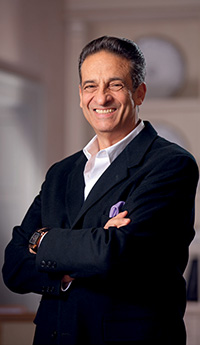 As we enter 2016, there are two critical movements in our world. The first is a disquieting transition towards greater unrest, insecurity and uncertainty. The second is less obvious but profound, and it is occurring more rapidly than most of us realize. An enormous number of people around the world are earnestly moving to raise their level of consciousness. They recognize that this is not only the best means to long-term personal fulfillment, but also the only path to a sustainable peaceful future for humanity.
As we enter 2016, there are two critical movements in our world. The first is a disquieting transition towards greater unrest, insecurity and uncertainty. The second is less obvious but profound, and it is occurring more rapidly than most of us realize. An enormous number of people around the world are earnestly moving to raise their level of consciousness. They recognize that this is not only the best means to long-term personal fulfillment, but also the only path to a sustainable peaceful future for humanity.
In this context, I would like to share some thoughts for your consideration and meditation. They are a few ideas I have absorbed over the years from my teachers, and they have made a positive difference in my life. I hope they touch you as they have me.
Abundance
We are born with everything we need for a life of fulfillment and success. But, all too often we measure our love, joy, health, wealth and other qualities by comparing ourselves to others. Perhaps thinking thoughts like, “I have a comfortable home, but not nearly as nice as my good friend John,” or “I have a loving husband, but not nearly as loving as Lucy’s relationship with her husband, or “I have a good job, but I don’t make as much money as my colleague,” or “I have a dependable Volkswagen, but my neighbor has a much nicer Mercedes.”
These comparisons are known as “object referral,” namely looking outside you for value and validation. “People will like me and respect me much more if I have a Mercedes instead of this Volkswagen.” The fundamental point that external comparisons miss is that a life of fulfillment always comes from within, knowing that you came into this world with everything you could possibly need to be happy and successful; and you can access these seeds of abundance whenever you so choose.
Even when things seem to be going wrong, there can be comfort in learning from your situation and recognizing that you possess the power to focus your energies on new possibilities, and the possibilities for abundance are endless. There are no limits to what you can have. Take time to think deeply about each situation that challenges you and find those seeds of potential success that will attract greater abundance into your life.
You and you alone, create your personal abundance from an infinite eternal source—Cosmic Consciousness. The core of your being, your spirit, is the ultimate reality, not what you perceive with your five senses. It is the root and ground of the universe, the source of all that exists. So why not internalize the following affirmation, “From this moment on, I invite unlimited abundance into my life.”
Much of your belief system has been shaped throughout your life by the thoughts and preferences of others. It is locked in your subconscious, connected to your ego, and it often runs your life. Is your belief system providing what you really want in life? If not, why not decide what you truly believe. To do this you must dig down deep into your core, your spirit, your soul. Everything you desire is within you.
It easiest to find your core when you are living your Life Purpose, which is based on your strengths, something you do well and love to do, something that makes this world a little bit better place. In doing so, financial abundance will likley follow; but, more important, you will find satisfaction, confidence, optimism and joy; you will experience abundance in all its forms. You will have manifested your dreams to live a great life. If you are not in alignment with your Life Purpose, ask yourself, “What do I love to do and do so well?” “How can I use this to serve the world?”
The Universe—Mine, Matter and Spirit
Your Mind is divided into three parts, your Subconscious, your Ego and your Conscious Mind. The latter is the reasoning force that tells you what you can or cannot be, do, or have. Matter is the five-sense experienced physical world around you that shows you the results of what you hold in your mind. Everything that happens to you, whether you label it “good” or “bad,” is brought to you by your mind. Spirit is your deepest domain, the place of your interconnectedness with the infinite mind of the universe—Cosmic Consciousness. It is your absolute entrée into the field of pure potentiality.
Accessing the spiritual realm through the daily practice of meditation opens the way to manifesting your deepest desires. By changing your thoughts, beliefs, expectations, and intentions and connecting with stillness, you allow the unbounded, unlimited abundance of the universe to flow easily and effortlessly into your life. Why not focus on what you want to attract into your life? It is not difficult to do, unless you think it is so.
Consciousness
The nonphysical part of your being, your spirit, is buried deep within your core. You are like an onion with many layers that must be peeled back to reach your inner light, which is Personal Consciousness. And once you do, nothing is impossible as your Personal Consciousness is connected to all others through Collective Consciousness and to Cosmic Consciousness, as well. To access your inner light you must release your world of thoughts, feelings, perceptions and beliefs. The best way to do this is through daily meditation. It is a power beyond powers.
As you quiet your mind in meditation you will eventually squeeze out all interfering thoughts, even if it is for just moments at a time. In these “gaps” of nothingness you will begin to glimpse the deepest level of your spirit or soul. Your consciousness will expand and transcend the three-dimensional world, at first perhaps just for a few moments. And in this brief state, you will be amazed at the creative sparks that emanate from the universe into your mind. You will find ideas and solutions to challenges you never thought possible in your normal waking state. That is the power of the gap.
Meditation
You can obtain the details for a simple procedure for meditation elsewhere. However, allow me to share with you an exercise you can practice immediately for a taste of the power of meditation.
Sit quietly alone in a room with reduced lighting and filled with a modest volume of your favorite non-lyrical inspirational music. Assuming you are not a frequent yoga practitioner, sit with your back erect on a straight-back chair, feet flat on the floor, arms comfortably on your lap with your palms facing upward.
Close your eyes and breathe normally for a couple of minutes and listen to the beauty of the music. Then, slowly begin to take in deep breaths, sequentially extending first your upper chest, working your way down to your diaphragm and stomach. Hold your breath for five seconds and then slowly exhale. Do this five to ten times and then return to normal breathing. You will experience a quieter mind.
Now think to yourself, “Who is really listening to this music?” You will likely feel a still presence and several moments of the absence of thought. You are in the gap and that still presence that you feel is your spirit, your soul, or whatever you wish to call it. Deepak Chopra calls this a state of Choiceless Awareness. Should you remain in this state through the power of meditation, you can manifest essentially anything you desire into your life. The only constraint is that it not bring any physical, emotional or spiritual harm to others. The possibilities to fulfill your dreams are endless.
Field of Possibilities
The unlimited power of Cosmic Consciousness is always available to you. Making choices through the power of this unified field can bring a more fulfilled life for you and for those around you, and also help create a better world. Besides being intimately in touch with this force and the practice of meditation, it is also helpful to cultivate waking stillness by spending some quiet time in nature to notice and absorb the beauty that surrounds you. Listen to inspirational music and uplifting stories and cultivate relationships with optimistic people. In doing so, embrace your potential to be, do and have whatever you can dream.
It’s All About Love
Nearly all of the greatest thinkers throughout history eventually came to the same fundamental conclusion in one form or another—Love is the most powerful force in the universe. In its deepest state it can literally move mountains. And love is your absolute birthright. It is the essential, in fact, the necessary and sufficient condition for a fulfilled life. In the words of the metaphysicist, Neville Goddard, “Don’t go seeking that for which you are. Those who go seeking for love, only manifest their own lovelessness and the loveless never finds love. Only the loving find love and they never have to seek for it.” So, as suggested by folk rocker Stephen Stills, “Love The One You’re With!” It’s the means to all your dreams.
I wish you a happy, healthy and wonder-filled 2016!
Sat, Chit, Ananda!
Enjoy your journey, make a difference!
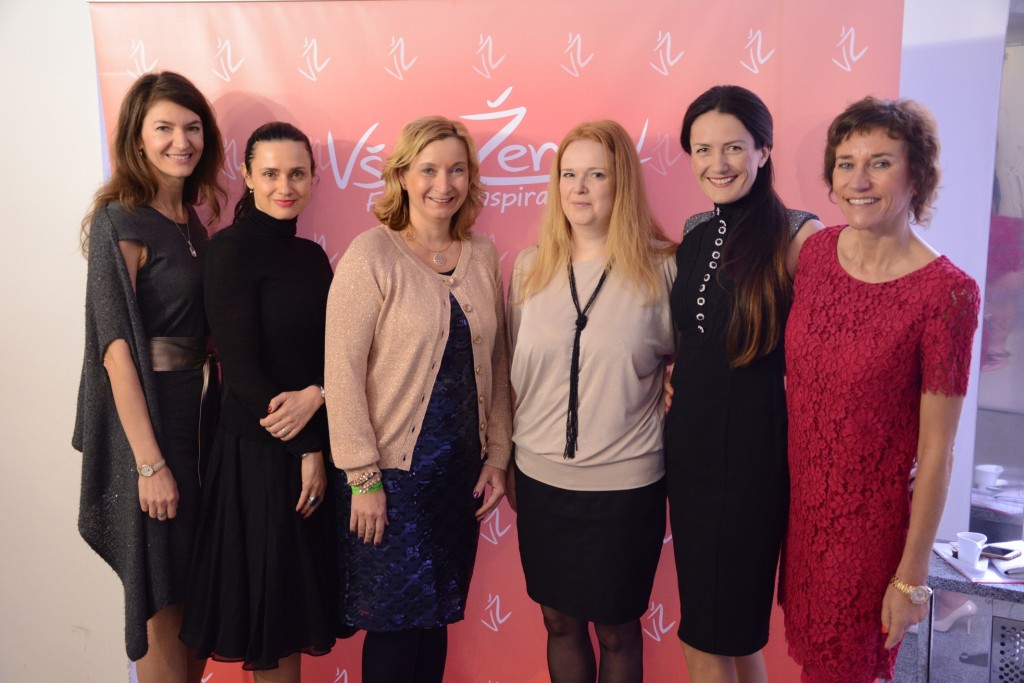
The TOP female managers from the Forbes and Hospodářské noviny rankings met up at the New Town Hall in Prague to attend a two day festival named “Všem ženám” and celebrate their right to vote, their femininity, beauty and self-confidence.
More than 25 interesting guests and experts such as author Halina Pawlovská, fashion designer Osmany Laffita, director Olga Sommerová, tennis player Helena Suková or hockey trainer Marian Jelínek shared their opinions during seminars, debates and networking. The main topics of this unique two day festival were: career, leadership, motivation, personal growth, fashion design and others.
FACE Entrepreneurship held its fourth event: “FACE Prague. Umh! I have something to tell you” at the Ministry of Industry in Prague, March 3rd. Four well known entrepreneurs: Kristina Tsvetanova, Ragnar Sass, Marek Fodor and Dennis Tan, participated in a panel and networking session where they shared their experiences and doubts when explaining their family and friends that they decided to embark on the entrepreneurial path.
A of The Week, authored by Jeb Golinkin evidently describes the action within this country’s spine that anybody but a closed-minded gun prohibitionist must realize why countless people so diligently defend their to keep and keep hands. Its not that Golinkin comes across as a hardcore right to preserve and carry hands absolutist (he doesn’t); he alludes in the next paragraph to, published earlier this week-by David Frum, that no hardcore firearm rights activist will probably like whatsoever. But Golinkins bit revile any erosion of their basic right and does summarize why countless passionately withstand. “The firearm rights action is all about specific independence and individualism that is American,” Golinkin creates. “These are people who believe in their right and accountability to manage their own destiny by hauling a gun to safeguard themselves and people around them, even though that might disadvantage those that choose not to. Read more
 On Tuesday, February 9, 2016, the first group of Iraqi Air Force pilots completed their training on the L-159 aircraft as part of a contract between AERO Vodochody AEROSPACE a.s. and the Iraqi Ministry of Defence.
On Tuesday, February 9, 2016, the first group of Iraqi Air Force pilots completed their training on the L-159 aircraft as part of a contract between AERO Vodochody AEROSPACE a.s. and the Iraqi Ministry of Defence.
The graduation ceremony for the first fully-qualified L-159 pilots took place in Vodochody and was attended by Deputy Commander of the Air Force of the Republic of Iraq Lt Gen Faris Hassan Al Zireg Falah, Commander of the Iraqi Air Force Operations Centre Brig Gen Abdulwahab Hussein Hussein Lutfe, Deputy Chief of the Training Department for the Iraqi Air Force Brig Gen Ali Abdullah Al Lami Abdulkareem, His Excellency the Ambassador of the Republic of Iraq in the Czech Republic Mr Walid Hamed Shiltagh, Minister of Defense of the Czech Republic Mr Martin Stropnický, Commander of the Czech Air Force Brig Gen Libor Štefánik, representatives of Aero, and a number of invited guests.
Participation by representatives of the Iraqi Air Force high command is evidence of the importance of this project for that country. This contract is also significant for the entire Czech aviation industry, explained AERO Vodochody AEROSPACE a.s. president Ladislav Šimek: “For Aero and Czech aviation as a whole, it’s another significant milestone that demonstrates the capabilities of the local aviation industry in a highly competitive environment to provide customers with quality comprehensive services ranging from the delivery of aircraft to providing operations support, training, and other related services. We are very pleased the Iraqi Air Force has chosen our aircraft during this difficult time, and we are confident that they will be satisfied with them. The delivery of the first aircraft to Iraq, peaking today with the completion of pilot training, is a clear signal of interest in our aircraft, which are a highly effective platform capable of fulfilling a wide spectrum of tasks for modern air forces.”
The celebratory moment was preceded by a presentation on the company’s capabilities and an introduction to the L-159 family of aircraft. Aero signed the contract with the Iraqi Ministry of Defence for the delivery of L-159 aircraft in 2014 after several years of negotiations. Aero made the first delivery at the end of last year; the company will deliver a total of ten single-seat L-159A and two two-seat L-159T1 aircraft. The contract with the Iraqi Ministry of Defence represents a significant stage in the life of the L-159 aircraft as it moves into active deployment with its second military user.
Source: Aero Vodochody

Retail Summit 2016 has showed the need to do promotions otherwise, significantly more effective.
Retail Summit 2016 in 3 minutes:
Globus on the future of retailing in CR
Joerg Bauer, Managing Director of Globus, comments the current state of the Czech market, where Czech customers became European champions in discount promotions shopping.
Fun as a reward for shopping
Manfred Litschka, regional Sales Director TCC, speaks about non-price promotions as an alternative to the trap of price discounts.
Retail in Detail will focus on the hot topic of promotions
Retail Summit organizers have finished the program of the specialized Retail in Detail conference to be held on April 6th, 2016 as a platform for finding ways out of the promotional trap. For Early Birds price, register till April 4th.
Why Should School students Feel As If That They Need Them?
Good Essay Writing Review
I recently suffered from a chance to speak with a former author for almost any esteemed essay writing articles help with his fantastic past experiences in the marketplace.
�I have experienced the continuous continuing development of this niche for years. Whenever I has become a component of the power team for Rush Essay, I thought we would be crafting school information for pupils with in this article-everyday functionality. I was in for a surprise. We got orders placed from various university students – slack people who only desire to locate an much easier way out associated with a messy circumstance, combined with essentially good teenagers who simply couldn�t spare the time for you to do their own personal task.
I became assured that participants who obtained into Harvard, Berkeley, Oxford, Cambridge, or other famous US and Great britain schools is acceptable more difficult than the people admitted to �secondary� educational institutions. In general, they will work hard; and that is certainly the actual good reason that they cannot afford to be unsuccessful. Often, the assignment�s requirements are quite involved that it is a hardship on the students to realize what are the bona fide question for you is. The challenges of ESL kids are even more; it truly is nearly impossible to allow them to result in magnitude-levels scholastic article. Ever since the expenses for plagiarism are severe, they should trust in essay article writing treatments being a option that has original unique content with the presented timeline.�
Some research – Who purchases documents via the internet?
The essay making marketplace is a way to obtain exciting statistical data. The state of california, The Big Apple and Texas are the favourite zones whereby requests happen to business essay http://essaylooking.com/buyessays-us-review/ paragraph writing be right from. Stanford, UCLA, Berkeley, NYU, Columbia, College of Houston, and many other associations from all of these regions are known for their reasonable units. Trainees who hopes to complete one such schools quite often would need to count on �unorthodox� ways to handle all struggles enforced through teachers. As academic crafting is now about the most famous facets of the helpful equipment, the ceaseless continuing development of the tradition-writing market is obviously justified.
The most common variations of content and articles requested from custom-generating offerings are essays, analysis written documents, and MA thesis. Learners have a good amount of essays and research paperwork to create, so there is always virtually nothing uncommon in the undeniable fact that experienced freelance writers pretty much manage most of these assignments. In relation to subjects, school students usually have a problem with assignments for Internet business, English terminology, and Supervision programs.
As indicated by those during the world, paying for newspapers can be a appropriate response to substantial root factors inside of the educational equipment. All college or university and university or college professors can tell you exactly the same thing: to these people, the action of paying for written documents on the web is no different than plagiarism. All the same, some consider that the problem is more difficult than that professing, that a content completed by top quality freelance writers is absolutely not plagiarized. It is actually definitely exclusive, definitely-analyzed and effectively-referenced. Once a customer buys this type of services or products, they have the legal right to use it as a source for another papers, or just present it his very own. The instructor might believe which your scholar did not jot down a unique newspaper, but there is not a chance to be these kinds of promises. Higher education can be an business naturally. Educational facilities allow a great deal more candidates, that includes worldwide youngsters who never enjoy the called for grab inside the Language words to produce phenomenal scholastic content material. Having said that, they never render impressive sustain that are going to make it easy for these applicants to put on to the software.
Advantages of the usage of tradition-producing assistance are astounding for unknown men and women. Plus, trainees with part-time careers, more mature young people that definitely have loved ones and those that will be going from tough your own challenges just require help to undergo all worries they face. The quick growth and development of the professional-writing market is a manifestation of the nice disadvantages within your academic platform, which get people through plenty of fatigue and emotive battle.
Have You Thought About The Ethical Debate?
We are all aware the meaning of unfaithful is, and just saying that the effort is far more demanding for all or them to will possibly not accept just enough guidance from educators, or have the time to devote on to the perform will not customize the concise explanation of being unfaithful, or allow it to be legal right in any way. Conversing from the two of them concludes for the debate, there are certainly folks who feel like these facilities are creating sluggish people and assisting to increase an unprepared labor force href=””>http://essaylooking.com/essaywriteronline-org-review/.
Composing is a crucial competence which may be carried out in a good many regions of your life, mainly for those entering into the staff, if they are accomplishing so as a staff member or a business person.
With href=””>http://essaylooking.com/buyessays-us-review/ communication learning to be a important proficiency for everyone entering into the personnel, our education set-up acknowledges this and aims to prep our university students by requiring them to enhance this skill set coming from making assignments. By outsourcing the project, school students, are depriving them selves of a chance to bolster their communications and posting skill sets.
Are professors and instructors that tough to approach that a great number of want to hazard the rigid penalty charges of being captured cheating, in preference to requesting for serve? There are thousands of additional options accessible to overseas, and then any other individual that will be struggling to take care of, from scientific study sectors, to products inside colleges and Universities and colleges, as an example posting facilities. What they do might need, nonetheless, is the fact that scholar actually try, by merely setting up the decision to try his or her self.
Creating essays that are expository Writing an essay requires methods, period and efforts. It obtaining superior qualities in the end and is no easy task to publish on any topic. There is a great composition the one which uses rules of writing and the standard structure. kadira subs manager and observe meteorjs Plus it should be created based on the need and type of dissertation. An expository article can be an insightful dissertation that identifies the composition theme totally. It employs facts and statistical info that is more likely to be delivered to the audiences. Read more
On Viennese Tradition, Legacy and Journey to Modernity
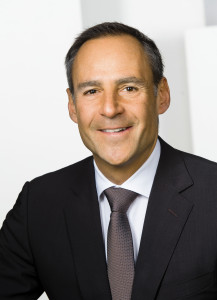 Preparing for an interview with Rupert Simoner, CEO Vienna House (formerly Vienna International), made me reflect on the past and brought my mind back to the history of the Austro-Hungarian Empire when Vienna used to be the second largest Czech city in the Monarchy. It also made me reflect on the proximity and closeness of the Czechs and Austrians that I have experienced while working for the Diplomatic Academy Prague and closely co-operating with the Diplomatic Academy in Vienna. However, after I became familiar with the current project of rebranding, characterised by the outburst of creativity and joyful communication, I realised there is no space for the sentiment of the past but on the contrary, time for enjoyment and zest for life. I felt quite invigorated discussing strategy, values, diversity and energy.
Preparing for an interview with Rupert Simoner, CEO Vienna House (formerly Vienna International), made me reflect on the past and brought my mind back to the history of the Austro-Hungarian Empire when Vienna used to be the second largest Czech city in the Monarchy. It also made me reflect on the proximity and closeness of the Czechs and Austrians that I have experienced while working for the Diplomatic Academy Prague and closely co-operating with the Diplomatic Academy in Vienna. However, after I became familiar with the current project of rebranding, characterised by the outburst of creativity and joyful communication, I realised there is no space for the sentiment of the past but on the contrary, time for enjoyment and zest for life. I felt quite invigorated discussing strategy, values, diversity and energy.
It is my pleasure to introduce you to Rupert Simoner, CEO, Vienna House.
Vienna International Hotelmanagement AG – in 2016 repositioned as Vienna House – looks back at more than 26 years of success, during which it has focused on building and expanding its portfolio of hotels in the three to five star segment. CEO Rupert Simoner is proud of the group and the vast hotel portfolio it has built up during its 26 years of existence. Currently, the group consists of 38 hotels, six in Czech Republic, four hotel lines and 2,200 employees operating in ten countries: from France to Russia, from Poland to Austria. They include the top tourist destinations such as Berlin, Prague, Pilsen, Carlsbad, Bucharest, Coburg, Krakow, Lodz, Munich, Neckarsulm, Trier, Disneyland® Paris and Bratislava.
Mr. Simoner, the current rebranding seems like a remarkable major change. What is the reason behind the change of Vienna International, in Prague perceived as an established brand, to Vienna House?
Currently, the hotel market is in a state of flux which is providing us with a number of challenges. Today’s guests have excellent access to the most up-to-date information. Their thinking and actions are global, local and mobile at the same time, and they have a steadily increasing selection of options to choose from.
At the same time, people’s understanding of value is undergoing a transformation. Traditional values such as luxury, in view of expensive status symbols, star categorisations and standards, are being replaced by personal, unique and, above all, one-of-a-kind experiences. People’s self-image has become more value-conscious than status-oriented.
Following the trend reports of the hotel industry and implementing these with a healthy dose of common sense gives rise to the following formula – living brand values together with acting from the guest’s perspective while keeping it simple.
As such, we have had to change the areas with regards to our corporate culture, restructure corporate divisions, reposition ourselves by developing and communicating a clear new brand architecture and last but not least redesign all hotel divisions and realign standards to guests’ requirements.
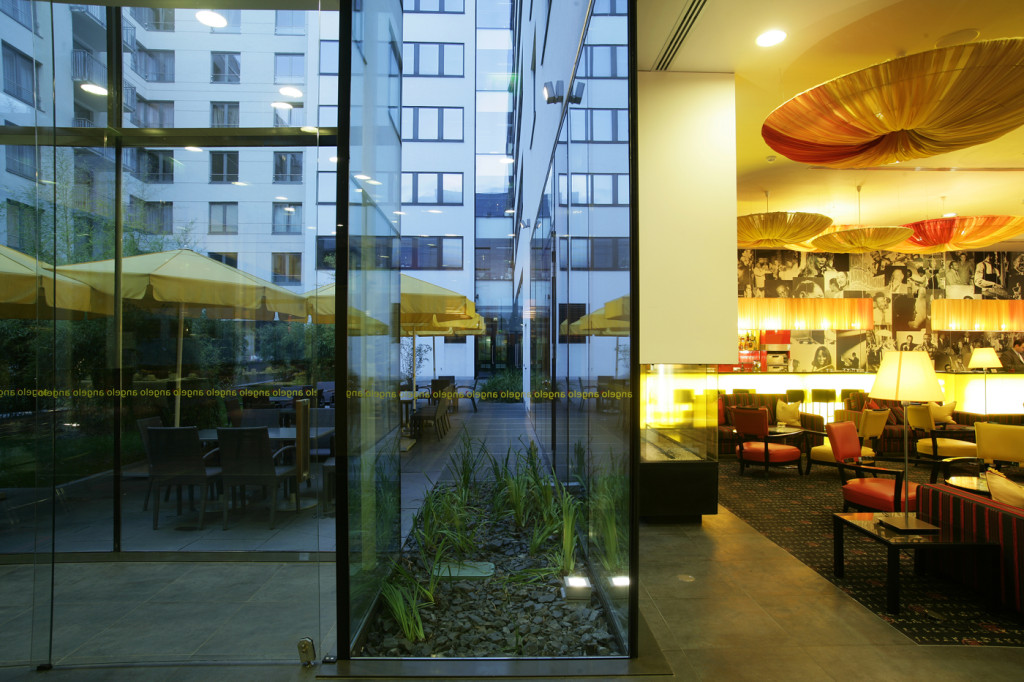
Hotel Angelo Prague
I see the statement “Values need to make sense from the inside out and be easy to understand” being very fundamental to any company. Nevertheless, from my experience working with teams, only few employees can recite values and even smaller amount can explain them. How will you make sure that your values will be thriving not surviving?
A new corporate culture only works when it is accepted and lived from the inside. All employees were informed about the development steps in the beginning and have been kept up-to-date with regular news from myself and my management board colleagues, hotel directors and direct management in open feedback discussions. National and international workshops provided additional support for the process.
It is essential that values make sense from the inside out, be easy to understand and easily implemented into our working life which means that they must be lived from above. We took this decision together and we continue to work on what this means for each individual.
We developed a “roadmap” for our new self-image of Vienna House which translates our core values into daily actions and in a simple and understandable way explains what optimal guest feedback, employee conduct, work environment and management understanding look like at Vienna House.
When rebranding takes place, it is often the case that regions are lagging behind headquarters but Prague is not that far from Vienna. What specific plans do you have for the Czech Republic? What can clients look forward to?
We are a hotel group and hotels are the heart of our business no matter what the location is. All our Czech hotels will be rebranded, so you will see Vienna House Diplomat, andel’s by Vienna Prague, angelo by Vienna House Prague, Vienna House Easy Chopin Prague, angelo by Vienna House Pilsen and Vienna House Dvorak Karlovy Vary.
The most significant changes will be applied step by step and affect the following areas. Hotel staff in new uniforms will have very broad freedom of action. Open lobby with a living-room or lounge atmosphere will allow for the work-life blend trend since this is where business and leisure meet so you will see co-working areas, lounge corners, an integrated bar and a free-standing reception.
Current trends in mobility will be facilitated by bicycle stations, electric car charging points and car-pool stations.
The use of new techniques and technologies true to the motto of “simple and intelligent”, such as charging points on all tables, USB ports in all rooms and web. Last but not least, the trend of (g)localisation will be seen in new individual bar and restaurant concepts that will serve also local specialities matching the region were the hotel is located.
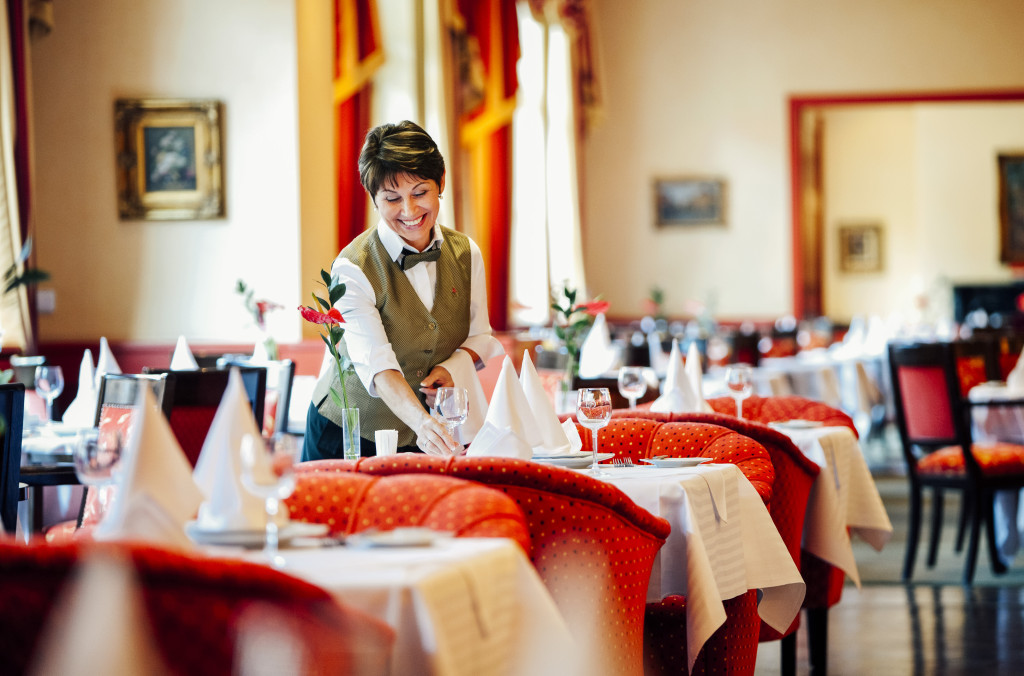
Hotel Dvořák Carlsbad
I was surprised about the digital shift and the impact that it makes on the hotel industry. You have already mentioned several services making use of ICT, such as mobile check-in and check-out, mobile concierge services, USB ports, free high-speed Wi-Fi and other services. Besides digitalisation, are there any other trends in the hotel industry that you see emerging?
There are several micro trends which of course affect lifestyle movements, such as sustainability and corporate social responsibility. In some areas – especially in the service and hotel industry, we can observe that people wish to have personal contacts instead of machines.
Further, there is a trend to concentrate on simple but quality things. More and more European travellers are sensitive to the environmental issues and therefore they are trying to live and also travel in an eco-friendly way.
And one attitude can be seen through many levels: buying moments instead of buying things is getting more and more important in our world as everything happens faster and faster.
The next concept we are both passionate about is diversity. You understand it in quite broad definition, not only acknowledging the diversity of the different hotels with all their regional tastes and peculiarities but also diversity of staff and members. How do you deal with diversity of talent and who are your target employees? Many companies now try to target women or young people. What is your approach?
Hospitality is about exploring, being curious and it is about people. It is a great place for people where they grow and shine and where they feel the whole world belongs to them. On one hand, Vienna House offers a niche between small private hotels and large – perhaps more anonymous – chain hotels. This may provide an opportunity for many. We offer international career paths our hotels and broad experience opportunities in our hotels. On the other hand, we have established ourselves as personal and direct. Employees can be themselves, they don’t have to pretend anything and feel like they are wearing a mask. We offer proper training programmes, promotions and a personal work environment.
Thanks to the Vienna House Academy, the HR division provides extensive new training and development programmes for all company employees. These include: Executive Development 360°, cooperation with 20 universities in 12 countries, a global departmental trainer structure and introduction of the Victor Leadership Development Programme for specifically developing young leaders.

Breakfast Buffet
I have valued? (aluded to, spoken about?) to the Austro-Hungarian Empire and its legacy several times. According to experts on Czech-Austrian relations, both nations tend to be quite similar and that might be irritating. How do you personally view Czech-Austrian current political, business and interpersonal relations?
Why irritating? As you mentioned, we share big parts of history, we have many things in common. The same is true about food. I love Czech beer and so do many Austrians. The Czechs as well as the Austrians are very hospitable. So on the cultural level there is a huge similarity that makes approaching both nations easy. Moreover, this good common understanding affects political, business as well as interpersonal Czech-Austrian relations in a positive way.
Mr. Simoner, you are always smiling, are in a good mood and positive. To me, you are a perfect example of the new approach to work-life blend rather than work-time management. Can you share some secrets of time and energy management with us?
Work-life balance is important to me and so I also make sure that my team members have time for their families, friends, hobbies and sports. I strongly believe that people are much more efficient if they have also a private life. Therefore, I trust them and I can fully rely on my employees. This makes my time and energy management possible.
Your creative campaign has inspired my imagination and made me think outside the box. Instead of the typical question what your final words for Czech and Slovak Leaders are, I will ask if there is a question that you wanted to answer but no journalist has ever asked?
I can’t think of one single questions I was never asked – but I like your last question very much.
By Linda Štucbartová
“Flying the African flag in Prague.”
 In this first interview in our Around Africa Series, Martha Ronke Ayorinde, a Nigerian by origin but who now describes herself as Afro-Czech, talks about her life and times in the Czech Republic and how she is contributing to the economic development of the country.
In this first interview in our Around Africa Series, Martha Ronke Ayorinde, a Nigerian by origin but who now describes herself as Afro-Czech, talks about her life and times in the Czech Republic and how she is contributing to the economic development of the country.
How old are you?
I am 43 years old
When did you arrive in the Czech Republic and what brought you here?
I came here in 2000. The reason that brought me here was to stay with my mother, Her Excellency Julie Joke Ayorinde, who was then the Nigerian Ambassador to the Czech Republic. When her term ended as ambassador, I decided to stay here, on my own.
How did you manage to adjust to your new environment without speaking the Czech language in the beginning, and what is one of your most unforgettable first impressions?
Without speaking the Czech language, it was very difficult for me in the beginning as everything was in Czech. But once I made up my mind to stay, I prepared myself to face the challenge and adapt quickly. One of the funniest and embarrassing moments still on my mind was when I started living here I did not know much about Czech cuisine so it was difficult for me to shop and cook. In trying to find a way out, I came to like a particular Czech bread because the taste was similar to a bread that I liked back in Nigeria. Fortunately, close to our residence in Prague was a shop where I used to buy this bread.
One day I went to the shop and the bread was not at the usual place on the shelf. In Czech the bread is called babovka, but while enquiring from the shopkeeper, I mispronounced it and said I wanted babicka which in Czech means grandma. Of course he did not understand me until I went out to call the driver of my mother who was a Czech to come and explain what I wanted. In the end we all laughed over it but it was a good lesson and it is still on my mind to this day.
What is your profession or occupation and are you working in your field of trade or studies or doing something different?
I am a trained beautician but I am now working as a hairdresser and a consultant for hair and make-up.
Do you feel at home here in the Czech Republic and do you still have links with family and friends in your country of origin?
Please remember I arrived in my youthful years so I grew up partly here. Now I have a business here and have some peace and stability. My first child, a 3-year-old girl, was born here. Yes I feel at home here. I see the Czech Republic as my home and Nigeria as my home too. Yes I still have good contacts with my family and some friends back home in Nigeria.
In what way through your work are you contributing to the socio-cultural and economic development of the Czech Republic and if possible your country of origin?
I have managed to set up this business, Mathas Inspiration and Hairdressing Saloon, and running it for more than 10 years now. The saloon gives me work and I also offer job opportunity and training to others. By paying taxes for myself and the business, and for the others who work for me, I am contributing to the economic development of this country. I provide employment opportunities to some Africans and that helps with their integration into the Czech society, and not only Africans because my accountant for example is a Czech. I guess this is something that most Africans living outside the continent for a long time have to deal, and come to terms, with.
I am also contributing to the enrichment of the multicultural environment with an ethnic business that caters for both Africans and Czechs and any other person who needs it. For example, I play a useful role in providing counselling and services to parents and children from bi-racial families as to which cosmetics are suitable for them. Yes, I also have a hairdressing saloon in Nigeria but that is very small compared to what I have in Prague.
How do you see yourself – an African, Afro-Czech or a Czech?
Well my family and friends back home say that my mentality and way of doing things now have become like that of a Czech. My Czech friends with me here in many instances also see a real African in me. In that context, I can conveniently describe myself as an Afro-Czech.
“Even though some people may wish so, there is no danger the European Union would fall apart.”
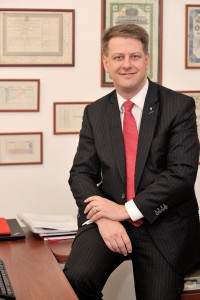 According to Tomáš Prouza, the Czech Republic is a reliable and predictable member of the European Union. How does it make his work as the main liaison between the Czech government and Brussels easier? How, in his opinion, has Europe united regarding the migration crisis and what did the Czech Republic achieve in the EU within the last year? In the interview for Czech & Slovak Leaders, the State Secretary for European Affairs also comments on the date of possible adoption of a single European currency by the Czech Republic.
According to Tomáš Prouza, the Czech Republic is a reliable and predictable member of the European Union. How does it make his work as the main liaison between the Czech government and Brussels easier? How, in his opinion, has Europe united regarding the migration crisis and what did the Czech Republic achieve in the EU within the last year? In the interview for Czech & Slovak Leaders, the State Secretary for European Affairs also comments on the date of possible adoption of a single European currency by the Czech Republic.
Dear Mr Prouza, on your webpage you present yourself as a “European, economist, and a bit different official”. Why is that?
The word “official” often evokes rigidness, lengthy procedures, and stereotypes. Although I am an official formally, I do not identify with such negative view. Especially in European politics I have to be really dynamic, I must be able to react to quick changes occurring in Europe; I need to keep contact with “Brussels” all the time, with my colleagues in other EU member states as well as the Czech Republic leaders.
Which apparently is happening…
Important part of my work is increasing awareness of the European Union and its significance for our country among the Czechs. That was underestimated by previous governments and since January 2014 when I joined the Office of Government, it has been my task to change this situation radically. Which you can´t do if people consider you a non-action and boring person sitting behind his desk.
What exactly does your work involve on a daily basis?
First of all, my task is to give the government recommendations regarding our strategy in European affairs. It means what major issues we should focus on in our European policy, what and how we should promote, and which direction we want to proceed. I am also responsible for coordinating Czech positions towards European institutions, I have to regularly communicate with my colleagues from other member states, which also means personal meetings as well and so a lot of travelling. However, frequent contacts have been the basis for successful Czech European policy in the last two years; our partners show us much more respect if we explain our position in person.
Can you give us some examples, please?
Regular contact helps the Czech Republic create coalitions thanks to which other member states support our plans. I would like to add that besides this diplomatic role, an important part of my work is communication on European issues to the public and a regular dialogue with our Parliament and Czech members of the European Parliament.
You mentioned regular contact. Do you mind that work of the State Secretary for European Affairs is not much discussed in media?
When it comes to the media, it of course matters what issues are currently popular. If domestic politics is discussed, Europe is put aside, which I personally feel sorry about as it is an evidence of the fact that our journalistic community still lacks perception of the scale of influence that EU affairs have on a domestic scene. When I took the position of the State Secretary for European Affairs, two months later we celebrated 10 years in the EU, which meant a big interest of journalists in interviews, conferences, and various discussion meetings around the country. Back then, I could not say that the media do not pay enough attention to the European agenda and my work. In the summer of 2014, I spent a lot of media time on explaining sanctions against Russia. For the last six months, a topic number one has been migration and refugee crisis. The issue which I am dealing with 24 hours a day, 7 days a week in my office. European issues get more and more publicity, which is important.
What is other member states´ perception of the Czech approach to the migration crisis?
Due to the fact that Brussels was focusing mainly on the so-called relocation system at the beginning of the migration crisis, our position was not understood by some member states. Now, all-European approach is progressing in the same direction that the Czechs have been advocating since the very beginning – solving migration crisis at its roots and control of external Schengen borders.
What, in your opinion, makes the European Union most united these days?
What really has united European states in the course of the last months is their common reaction to tragic events in Paris last November. All member states condemned this unprecedented display of hatred and violence. Parisian attacks were directed at traditional European values and wanted to make them weaker; however, it has paradoxically united the old continent and we all started working on securing safer Europe in the quickest and most efficient way.
What on the other hand makes Europe most divided?
The European Union consists of sovereign states and in a democratic society it is natural that priorities differ; there are different opinions and views. I don´t think there is a topic that would absolutely divide the Union; there are topics which we view differently from our partners, however this does not bring any fatal consequences to the European Union as a whole. Even though some people may wish so, there is no danger the European Union would fall apart.
Are we able as a member state to keep up with changes in Europe? Are we reliable?
In the past, the image of the Czech Republic was one of a troublemaker obstructing progress in major European issues. However, this changed two years ago and the Czechs are a reliable and predictable member of the European Union now. This I am repeatedly assured about by our partners abroad. We are able to react to changes quickly, which was visible during migration crisis last time, when we repeatedly manifested our solidarity by accepting refugees in need, by increasing material and expert aid. However, at the same time, we clearly voiced up what is important for us – and now our opinion is being adopted by the whole Europe.
Does the Czech Republic have a clear idea of who should represent the main face of its foreign policy, and I don´t mean constitutionally?
Not looking at that from the point of view of the constitution, this should be a person with adequate knowledge and respect. Czech foreign policy is determined by the government. Responsibility goes to the Ministry of Foreign Affairs, however in top meetings with foreign partners the main role is played by Prime Minister. And let me tell you that the cooperation with the Ministry of Foreign Affairs is fantastic. Our great advantage is that we have an active Chairman of the Chamber of Deputies since the role of parliamentarian diplomacy has been becoming stronger and stronger.
What would you like to mention as the main success of Czech politics in Brussels last year?
I don´t think it was just one success. I consider an important achievement for example adoption of all operational programmes, which means the Czech Republic is able to draw approximately 644 billion Czech Crowns from the European budget in a new programming period of 2014-2020. Following the ineffective drawing of European funds in past years, the situation has finally changed.
As far as you keep saying, it may also be the issue of migration and its solution.
After an unconvincing start it became clear later that a really effective way is to solve causes, not results. European leaders agreed on the approach that the Czech Republic has been supporting since the very beginning – protection of external Schengen borders without which we can never succeed in dealing with migration crisis. Towards the end of the last year, the European Commission also started their work on a draft of a single European border guard, i.e. a system which the Czech Prime Minister has been repeatedly talking about in the course of the last months. It is obvious that Czech voice is being heard in Europe.
Has there been any failure?
I don´t see any major failure in Europe. We could definitely get much better in explaining European affairs at home since the stereotypes inside some people´s heads persist, especially thanks to the support from many populists and half-forgotten politicians whose last chance is a “scarecrow of Brussels”.
Ten years ago you were the first ever national coordinator for Euro adoption in the CR. So, let me ask a clear question – will we ever have Euro in the Czech Republic at all?
Of course we will, although the decision about the entry is unfortunately not going to come within this election term. Nevertheless, the government makes efforts to prepare everything so that the next cabinet can decide about Euro adoption quickly and does not have to work on technical aspects anymore. Adoption of Euro will bring significant economic advantages to the Czech Republic; therefore we should act as quickly as possible.
Is the Czech Republic now building on the grounds you had set up in your position? What has actually been the biggest development for the ten years?
Previously, most of our governments were not in favour of our country´s entry into the Euro zone, which reflected their position towards European integration issues in general. Only this government stated in its programme declaration the purpose to re-evaluate existing standpoints towards monetary integration and to prepare the CR for joining the Euro zone, which is really happening now. So, the system which I had built up long ago starts coming to live again.
What do you feel is the main advantage of a single European currency in 2016?
Finalising the process of the Czech economy integration into European monetary structures. The Czech Republic will be able to fully participate in the formation of the economic and monetary union. All that will have a positive impact on our national economic policy because the key features of the system are enquiries of medium-term balanced public budgets and structural reforms supporting long-term economic growth. Irreversible fixing of currency will bring increased stability to the financial sector and decreased risks of monetary turbulences. Sharp exchange rate fluctuations represent a great risk for a small open economy such as ours. Eliminating exchange rate risk towards Euro zone countries, which are the most important trade partners for the Czech Republic, will bring profit especially to our companies. These advantages will become evident in the decrease of transaction and security costs as well as decrease of investment uncertainty. The household sector will profit from higher price transparency which stimulates competition.
What do you think is the main disadvantage of Euro – after the series of financial injections to some Euro zone countries?
From the point of view of the Czech Republic the main risks are connected especially to the reaction of economy to economic disruptions. For economic policy of the Czech Republic, the loss of independent monetary policy would mean loss of important tools which are able to help reduce negative impacts arising from different domestic and foreign economic development, and thus facilitate economic convergence. In connection to the recent development in the Euro zone, the system, created in the frames of the Euro zone as a help to the countries in need, i.e. providing so-called financial injections, is also essential. Of course, if the Czech Republic were a Euro zone member, it would have to participate in such system in a solidary way.
What benefits will a bank union bring to the Czech Republic?
Right now, the office of the government is analysing experience of other member countries with the bank union. I consider the main advantage of the bank union a possibility to become part of a stable system headed by a respected institution such as the European Central Bank. In addition, it is a possibility to influence creation of supervisory standards for financial institutions all over Europe. Entering the bank union would also mean our participation in a decision process of major credit institutions of the Euro zone as well as a possibility to access the funds from the Single Fund used for bank crises solutions.
Server Peníze.cz, consulting company Partners … you left your legacy in many places. Are you planning to return to a private sector in the future, where you had been successful?
I think it is important that I know life in both private as well as public sector. It gives me the ability to focus on important issues and be clear about what helps Czech companies and what on the contrary slows them down. Currently, I am not planning any change but I am open to anything interesting life will bring me next.
During the world financial crisis you worked for the World Bank. Have the priorities of the bank changed due to the crisis?
Quite substantially. First, now the World Bank is focusing much more on issues such as financial inclusion and high-quality financial market supervision but most importantly, the World Bank started to intensify focus on advisory activities and economic reforms support.
It has been more than ten years since the bank moved the Czech Republic from the group of developing countries among those of world economies. Have we succeeded?
For the time being yes, but let me use the words of a classic – we have to try harder. Bringing our economy closer to developed European economies stopped in past years as a result of restrictive economic policy of previous governments, the digital economy fast train is speeding away from us and we don´t know how to profit from smart Czech brains. Above all, however, we are not able to explain to people how well they are – economy is growing quickly, unemployment is at its minimum but people don´t seem to see this.
Mr Prouza, who do you consider a real leader?
Among current politicians it is Angela Merkel who at the time of crisis was able to give up her caution and bet everything on the fact that Germany is a country strong enough to be able to take care of millions of people fleeing from slaughter and terror. However, the highest inspiration for me is Franklin Delano Roosevelt. One of his quotes gives a very good definition of the way I perceive my task: It is not that we give more to those who already have a lot what would test our progress, but if we give enough to those who have too little.
Thank you.
By: editorial (jk)
“Our NGO is providing legal counseling to children whose rights were violated.”
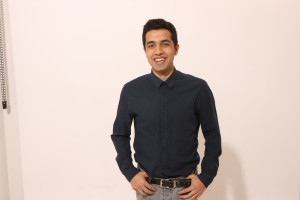 Growing up in a children’s home inspired 27-year-old Michal Ďorď and his friends to start Vteřina poté. The NGO aims to raise the standards of quality of care for vulnerable children living in these institutions as well as persuade the government to focus more on prevention of institutionalization. Basically, Vteřina poté strives for a transformed and unified system of care for vulnerable children based on prevention of social exclusion of families at risk, family-based solutions for vulnerable children and high standards of quality of care for children in foster or residential care.
Growing up in a children’s home inspired 27-year-old Michal Ďorď and his friends to start Vteřina poté. The NGO aims to raise the standards of quality of care for vulnerable children living in these institutions as well as persuade the government to focus more on prevention of institutionalization. Basically, Vteřina poté strives for a transformed and unified system of care for vulnerable children based on prevention of social exclusion of families at risk, family-based solutions for vulnerable children and high standards of quality of care for children in foster or residential care.
“Many of us felt unwanted, unloved, did not have any information about our background, our families or why we ended up in children’s homes,” says Ďorď who spent 17 years in the children’s home Frýdlant, “Some of us even experienced harassment, deprecation, while others experiences almost family-like treatment.”
Soon after forming the organization, Ďorď learned that there we much deeper systematic issues that have to be addressed, including that institutional care is prioritized to family-based solutions. Another issue is that the divided system of care is perpetuating social exclusion, while the prevention programs only get 10% of the budget designated for vulnerable children. At the same time institutional care gets over 50% of the budget.
Since it was founded in 2011, the organization has achieved several breakthroughs. Along with the Ministry of Education, Vteřina poté co-created Standards of Quality of Care for Children in Institutional Care. This will improve the quality of care in all care facilities. They have revised evaluation tools that the Czech School Inspection uses for monitoring institutional care facilities: children homes as well as other types of institutions are de iure school facilities. After criticizing the Czech School Inspection for only monitoring children’s homes once every 10 or 13 years, they hired 40 new school inspectors. Ďorď became the first person who had experienced institutional care to be named a member of the governmental Committee for the Rights of the Child.
When asked for specific examples of schools and areas where their organization had made a difference, Ďorď says that there are way too many examples. “Our NGO is providing legal counseling to children whose rights were violated,” Ďorď explains, “But we also visit children’s homes where we provide children with information about their rights, things they should consider before leaving care or information about ways of getting funding for their education.”
Recently, the organization helped a girl from a children’s home in Silesia. Thanks to information that they provided her with, she is now a student at a university. In her children’s home they have also started to build bridges between the children and the staff. By facilitating discussions about the issues both of these groups have with each other, they can brainstorm solutions and improve how things work within the institution.”We have secured funds which will allow us to do more such programs and training exercises in 2016,” says Ďorď.
“We’ve got a lot of positive feedback from the Minister of Labor and Social Affairs, Michaela Marksová who closely cooperates with us,” says Ďorď. Marksová cooperates closely with Vteřina poté, Education and Justice ministries, government officials, experts and NGOs to help institutionalized children as well as training foster parents. “We also get negative feedback from some directors of children’s homes and a few parliamentary members who are against the reforms we promote,” explains Ďorď.
The organization has had several setbacks too. They had attempted to convince the Ministry of Labor and Social, Ministry of Education and Ministry of Health to cooperate on reform that could unify the system under one ministry. This would also change the way that money is distributed for the advantage of preventive services for families. This failed for may reasons according to Ďorď, including the appointment of a new Minister of Education, a controversial new School Act was passed and several other complications. However they are working with Marksová who would like to make the reform.
When I asked Ďorď where he sees Vteřina poté in 5 years, he answered, “in advisory and working groups of ministries that deal with children’s right. I would like Vteřina to be an organization that comes first to mind to governmental and non-governmental organizations when vulnerable children’s rights are concerned.
Other than children’s issues, Ďorď is passionate about integration of marginalized groups, especially on housing and job markets and in education. His own family was a victim of discrimination in education and that significantly contributed to their socioeconomic standing which was used as a reason to separate our family and to put him into a children’s home. Besides that, Ďorď has been increasingly interested in system of care for unaccompanied minors who sometimes end up in correctional facilities for young criminals, where they do not
By Olena Kagui
Olena Kagui was born in Ukraine but has spent most of her life in the Czech Republic. Olena graduated from Anglo American University in the summer of 2014 with a Bachelor of Arts in International.
“Czech-Slovak relations are truly exceptional.”
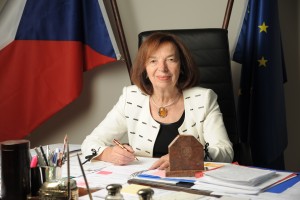 Her Excellency Livia Klausová does not often give interviews, so I felt proud and honoured to be able to carry out an interview for this very special first issue, dedicated to Czech and Slovak relations. Having worked at the Diplomatic Academy, I know that interviewing an ambassador is a challenging task. Most questions cannot be answered directly and to other questions answers have to be deliberately vague. Nevertheless, I was looking forward to sending my questions to Mrs. Ambassador. Besides political issues, I was interested in topics related to issues of leadership and diversity. If I am to mention some characteristics that come to my mind with regards to Mrs. Ambassador, I personally perceive her as an authentic, modest and hard-working woman. A woman that managed to be the First Lady, mother and grandmother, while still professionally active and on top of that she has always found the time for her charity work. All this in a very unpretentious manner without the need to have the attention of the media.
Her Excellency Livia Klausová does not often give interviews, so I felt proud and honoured to be able to carry out an interview for this very special first issue, dedicated to Czech and Slovak relations. Having worked at the Diplomatic Academy, I know that interviewing an ambassador is a challenging task. Most questions cannot be answered directly and to other questions answers have to be deliberately vague. Nevertheless, I was looking forward to sending my questions to Mrs. Ambassador. Besides political issues, I was interested in topics related to issues of leadership and diversity. If I am to mention some characteristics that come to my mind with regards to Mrs. Ambassador, I personally perceive her as an authentic, modest and hard-working woman. A woman that managed to be the First Lady, mother and grandmother, while still professionally active and on top of that she has always found the time for her charity work. All this in a very unpretentious manner without the need to have the attention of the media.
Mrs. Livia Klausová, born in Bratislava, studied at the University of Economics in Prague as well as in Luxembourg and Amsterdam. She had worked as a research expert of the Economic Institute of the Czechoslovak Academy of Science and later as an executive secretary of the Czech Economic Society. In 2003-2013 she was the First Lady, and since December 2013 she has been serving as the Ambassador of the Czech Republic to the Slovak Republic.
With regards to her charity activities, let me mention the Czech National Marrow Donors Registry, Life 90 Foundation and managing the Livia and Václav Klaus Foundation that mainly focuses on the support of education of many age groups, ranging from high school students to senior citizens, as well as assistance provided to children after they leave foster homes or children whose life has been impacted by serious car accidents.
Your Excellency, it is undoubtedly true that Czech-Slovak relations are very special in their nature. However, some people who still remember Czechoslovakia as a unitary state, might consider the relations as a glass being rather half-empty than half-full. How do you perceive this phenomenon from Bratislava?
Czech-Slovak relations are truly exceptional in their nature. And this is true not only about traditionally very close relations between the highest political representatives of both countries, those of governments, parliaments but the same is true when you consider relations between regions, towns, villages, institutions and universities. Relations within the realm of culture are also very intensive. In addition, we should not forget to mention family and friendly ties on the individual level between the two nations.
Slovakia will hold the Presidency of the Council of the European Union starting July 2016. What are its main priorities and what kind of support it gets from the Czech Republic?
It is necessary to say that Slovakia has been very actively preparing for its historically first EU Presidency for a long time; the Presidency will start on July 1 2016 and last until the end of December 2016. As far as I know, the Slovak Republic is still working on its main political priorities. However, it is highly probable that these priorities will reflect the programme priorities of the so-called Presidency trios, that is three successive presidencies and the current trio is made up by the Netherlands, Slovakia and Malta. The programme of this Trio reflects three strategic priorities, including the issue of economic growth and employment, better protection of the EU citizens (for example in the social or health area), energy security, freedom and justice and last but not least the role of the Union as a strong global player. For sure, Slovakia will have to deal with the current migration crisis and will lead the Council of the EU during a very important period when many important and politically sensitive decisions will have to be made. And since you asked about the support from the Czech Republic, we naturally offer possible consultancy and exchange of experience from the times of Czech Presidency in the EU. However, the Presidency of the Council of the EU is first and foremost the responsibility of a given country that becomes for a half a year a “facilitator” of political and technical discussions and decision-making on various levels of the EU Council while being at the same responsible for communication with the other European Union Institutions. Presidency represents a big challenge and a big assessment. It is very specific in the manner that it forces the country to think more in the European terms and to a certain extent to leave behind national interests. I wish Slovakia handled its historically first EU Presidency in the best possible way.
Slovak friends perceive the Czech Republic as the leading model in many areas. In which areas can the Czech Republic learn from Slovakia?
I admit that I am not a fond of questions related to models. We can have certain models on the personal level, everyone has someone who played an important role in his or her life, was an inspiration or a good teacher and mentor. However, this cannot be replicated on the state level, since it would bring generalisation and simplification which lead to creating stereotypes. Moreover, it is not the role of the ambassador to judge or assess the hosting country. As far as the Czech Republic and Slovakia are concerned, one country passes over its experience to the other in the areas where it happens to be a step ahead and vice-versa. Such mutuality only emphasises the special relations.
Can you compare the role of the First Lady and the Ambassador? To what extent do you have to play a certain role and to what extent can you be authentic?
Both First Lady and the Ambassador most of all represent a country. Both roles therefore come with a loss of privacy and a necessity to embrace many protocol rules. Both roles are similar in a sense that they entail not only many meetings with numerous people from different environments but also many administrative tasks. The main difference comes with the fact that the Ambassador is also responsible for managing the whole Embassy and a team of diplomatic and administrative staff. As far as “authenticity” is concerned in both roles, it is like in many other professions where an individual adds their own personal touch on top of a professional role.
You have become an ambassador, however you do not have the traditional support as expected from a spouse that plays a crucial role during many unofficial, yet supporting functions. Women have had traditionally low representation in diplomacy, which is also the regional trend in the Visegrad Four countries (Czech Republic, Slovakia, Poland and Hungary). Does the low representation of women prove the fact that diplomacy is harder for women?
I see the often cited low representation of women in politics or diplomacy as a myth. I see a number of women in diplomacy and in local politics. However, the question why women do not enter the top politics is perhaps answered in your questions. It’s due to the fact that women lack support and a career conducive environment from their partners and husbands.
You were born in Slovakia, for a long time you have lived in the Czech Republic. Is there something that the Slovaks do not know about the Czechs and they should or vice versa, something the Czechs fail to appreciate when dealing with the Slovaks? Despite being close, we are still two different nations and I remember a case when one international corporation hired British experts on intercultural management to help with an efficient and effective Czech-Slovak merger.
My both parents came from Slovakia, my husband was born in Prague; I was born in Bratislava but most of my live we have lived in Czechoslovakia. Perhaps this is the reason that we do not perceive any possible differences so strongly. The Czechs and Slovaks are close to one another also due to history and yet we still have differences but very subtle. In order to understand each other we certainly do not need experts from Great Britain.
You have spent your professional life following economy. Do you still manage to keep up with the latest economic trends?
The main task of an ambassador is not only following political events, but also paying great attention to economic issues. This is even more important in the case of Slovakia, being the second most important trade partner. Economic ties are very strong in numerous spheres. Moreover, economic diplomacy represents one of the priorities of the foreign policy of the Czech Republic. In that sense, my economic studies are an advantage.
Your Livia and Václav Klaus Foundation has an education as a common denominator. The Czech educational system is very often criticised. In which areas do you see the biggest room for improvement and which areas are you satisfied with?
Livia and Václav Klaus Foundation specialises on education. It is not meant to criticise the Czech education system but to support hundreds of students during their high-school and university studies through scholarships, and primary schools children in their after school activities. We also support senior citizens, within the framework of the project “Seniors communicating” we teach the knowledge of using the latest communication devices. In terms of the Czech education system, we can criticise our vocational schools not having enough students and on the other hand too many university students studying subjects of little relevance to the job market. However, I still believe that our education system is a very good one.
Family has traditionally played an important role for you. Where and how do you get energy nowadays?
Family is naturally very important for me. I get energy from my closest relatives, friends and from many people whom I meet.
What are your last words to Czech and Slovak Leaders magazine readers?
The very fact that the Czech and Slovak Leaders magazine is now being published also in Slovakia reflects the Czechs and Slovaks being close to each other and our unique relationship. I wish all those who put together the magazine that it continues to be inspiring in both countries and that its interesting stories capture attention of all generations of your readers.
Your Excellency, thank you for your interview.
By Linda Štucbartová
Photo: Jakub Ludvík
Software is defined as a set of techniques and applications that are designed to accomplish specific responsibilities on a computer process. There is actually a computer software a set of recommendations which can be geared toward transforming their state of computer hardware. While in an assembly language’s form, software is in the lowest amount, a couple of recommendations in a- clear form. At the highest level, software is within the kind of high-level languages, which are compiled or construed into machine-language code. Read more
If you�ve been removed from Clash of Clans for quite a while and chose to blow the particles from your much-loved Town Hall, you can sense you are some weighed down .. The recent December Patchmade substantial upgrades to the steadiness of this activity, certainly defensively, and what once was a simple yet effective Conflict of Clans harvesting tactic could now be certainly ineffective. On this page we�ll stop working some farming tips and hints that use the recently available fluctuations, and we will also point out some bottom safety plans that you will want to bear in mind in order to safeguard your very own guides.Farming Trick 1:Transfer that Place Hall In!Revealing TH is right now greatly punished. If your primary attacker does less than 30Per cent wreck OR incorporates under 33Per cent of their own troops, they may acheive a 1 star triumph although you will never be given a protect. This means you can aquire whack a lot of unique here we are at to come back raids previous to someone lbs you hard enough to acquire a defend, and many types of that tough attained loot is going to many other Chieftains. To incorporate insult to accident, your TH now has lots of loot this means that you are doubly incented keeping it secured. This is probably what SuperCell consistently desired, but they have and finally observed some technicians to position it into strength. Any time comes Key – Transition IN YOUR TOWN HALL!Farming Tip 2: Search Sizeable Activity.League signup bonuses make a lot more worth it than before to ascend in rank well even while farming. Assigned that you need to take measures to protect your Your area Hall surely, you will gain a whole lot more trophies defensively than you could count on. Work this to your great advantage, so you can shove up a small amount of tiers within your convenient old farming reasons. At TH9 I ran across I surely could force to Experts or perhaps Champions – a situation I would not des gemmes gratuit cheat coc clash royale hack free have believed was ever within my communicate with. At some of those higher amounts, tugging in 200-300k Precious gold/Elixir and 2500 Black Elixir for every challenge is normal (particularly if thinking about the league reward). Around my feel it now proves a far more trusted tactic to yank in big profits than trolling the bottom leagues in the hopes of finding deserted or hurried bases during my scale.Harvesting Lesson 3: Enhance Protect and Shield Importance.The modern Defend and Secure technique is other ways that SuperCell has tried to shake important things up. As an alternative for instantaneously burning off a Cover, now you can invade whilst keeping your Defend working for the cost of couple of hours of protection. You can also invasion a limitless period when you get into the next small bit of insurance recognized as �Guard�. There are several nuanced techniques to agenda assaults to take advantage of this mechanic, however learn that most often its ideal to continually be assaulting. With League signup bonuses you have to be reaching opponents for close to the web site cap each time you acquire, but troop service fees will offset that a little. Even now, if you happen to successful only one infiltration should about counteract what you will choose from the deficit, and therefore the Defend mechanic will allow you to get 3 and sometimes even 4 symptoms well before it completly expires if you happen to obsessing and always available when troop and spell training courses top notch. Get all those symptoms in, and you�ll keep doing farming development all the way to your following huge advancement.Expert Strategy Even if an invade rates you upwards of your leftover Cover time, you will get the entire Defense time then combat – so get one in right before the bell.Expert Advice �Nexting� does not partake of time on your Cover, when you do not see what you like, you can still bail out from dating not miss if. This means you are often very picky about the person you breach.Farming Rule 4: Power the Treasury.The Treasury is definitely the safest approach to put away size quanities of means. Clan tier unlocks that broaden its capability ensure it is better yet. The loot available to attackers contained in the Treasury is actually a smooth 3Percent, no matter how a great deal you have or what your attackers tier is. At far better Clan Castle tiers you can still hold countless Yellow metal/Elixir and 10k of Shadowy Elixir, possibly even once your structure is washed you lessen just the tiniest small percentage. Any time you grind just to save for anyone pricey upgrades, abandon your information at the Treasury right until it may be entirely complete.Harvesting Hint 5: Recall The Old.Avenues.One of the main handful farming hints that still is true out of the pre-Dec 2015 period of time, is it is not a good idea to receive tremendous portions coming from all 3 strategies. If something, this has turn out to be further true seeing that huge fish can be boating inside the league consistently and it is much harder to acquire a low quality cover and disguise from their website. Greater maximum your coffers get, the harder of a aim at you are for a completely from one of the several considerable kids. Keep no less than one source of information very low, and if possible two if you can oversee it. By doing this at least many of the toughest attackers could want juice machine victim and in case you are successful a plucky minnow may perhaps bash his have to deal with against your protection free of acquiring to plenty of your sugary snacks.Professional Suggestion Much like invariably, it may be nonetheless recommended that you walk your storages all round to keep your most prized methods. Bury the fantastic content serious, Key.Pro Point It is possible to size and shape your powerful resource swimming pools somewhat by changing your farming troop loadout. If you are farming Elixir, slender on among those costly DE troops and also hardwearing . DE entire minimal. When farming DE, take some Dragons and PEKKAs off to carry out.Farming Suggestion 6:Always Get Those Legend Added bonus and Loot Cart After the Tremendous Bang Dec repair, SuperCell bided their time as well as held us happier for as much as every month with collector improves – however, when which had been on top of they revealed additional strategy up their sleeve. Inside the follow up Jan repair, SuperCell created �Star Bonuses� for accumlating victories everyday, along with a Loot Cart to get back 20Per cent with the losses from these kinds of bad Chieftain that feel this game is mostly about consuming YOUR hard earned loot. This is actually a deeper action toward �attack-based� harvesting. Loss damage a little less so long as you are energetic quite enough to get your loot cart each and every single 12-16 hours, while the Celebrity Extra should make it somewhat sensible to shoot for 2-3 victories daily. If you find yourself farming, also a little loot foundation is worthwhile to invade when you can credit score some personalities towards your Superstar Benefit.
- Clash of clans on app store game hacks that might astonishment you
- Clash of the clans gems cheat game hacks which may delight you
- Clash of clans official game hacks that might big surprise you
- Download clans of clans game hacks that could perhaps unexpected surprise you
Based on price tags for such providers change radically. One could charge a fee ?70 for only a cardstock, when other you requests ?150-?160 for the similar employment. Pricing count on a location, which it why there is absolutely no specific and merely scope to be familiar with what amount it is advisable to spend on a cardstock of any distinct type. And the following we have now the next likelihood of purchasing essays:
- Academic Essay Writing Review
- Scholarship Essay Writing Review
- Essay Writing Websites Review
- Essay Writing Service Uk Review
- Best Research Paper Writing Service Review
•you can never ensure that you have not paid back throughout the nostrils to use in your essay.
What may serve as an assurance at this point? How to get an essay of a quality, which could be not plagiarized and overpaid? Would you may well ask a college professor to write down it for a most probably?
Why instructors do what they do
Universites and colleges have a very tough protection plan as for the niche of custom-made essays. Sometimes they come together to see new types of its disclosure. And moreover casinos are regularly attempting to manage unit card counters, colleges and universities are attempting to work with customised essay creating service and badly reprimand students who utilize them. So, there your fourth and probably the most great likelihood of investing in essays occurs:
•if you are stuck and revealed, you should say goodbye to your college or university including your potential future degree or diploma. Expulsion may possibly be the genuine consequences appropriate for publishing a selected cardstock.
But when every single thing looks so lousy now, it looks incredibly weird when you discover that lots of advanced schooling professors are paid off to jot down essays for cheap custom essay papers http://makemeanessay.com/ paper writing help pupils. How come they certainly that?
In 2010, Ed Dante’s confession blew using the internet up and rendered every person talk about tradition essays at the very different was written and published at Chronicle and brought up the outrage of environment as well as other university or college instructors. Many people spoke about instruction ethics, morality and conscience, nevertheless the case was about extra money on top of that. Yes indeed, easy-to-follow as that. Higher education teachers grow made to order authors for easier wages. Most of us are equally customers of course.
Simple methods to remain acceptable when paying off essay composing customer service
Additionally there is a notion, that some classmates buy advanced schooling instructors to pay for essays in order to get some cause of citation for his or her buy runs. This may be a great way to settle risk-free whenever you spend on essay writing specialists:
•you may ask a professor to compose a cardstock for a designated question. You realize that this cardstock are going to be of a quality, so that you can are definitely not terrified of investing in it. When done, you cite it on your own essay. No plagiarism, you are the contributor in the employment. Make money!
Schools you should not give any distinct protection plan on citing this type of works best, and that is certainly why getting them may be genuinely comfortable in your track record. Though it might still be recognised for being an educational offense whenever they see you citing a paid for report. In terms of you are aware of, virtually every medal does have its stop. Also, college professors you should not assume that students would manage to pay for a cardstock to make sure you cite it after: will it make any impression to pay for almost anything to report, provided you can get a multitude of respectful assets to cite completely free?
If you are in a position to obtain and buy your essay at any rate, try to can recall the following:
•use only trustful and tested essay producing services;
•maintain your invest in improvement;
•check a document for plagiarism, regardless of whether they claim they provide a high quality of their operate.
But might be it will be continue to worth trying to compose a report for free?
How to locate improve essay composing without spending a dime?
It is particularly unfamiliar, that trendy young people continue to prepared to fund essays, having to deal with plenty of types of costless allow roughly. The World-wide-web age helps make academic reports making much quicker and simpler, offering you the chance to get a hold of and employ the information from around the world:
•being an effective person of the social media sites as Twitter and facebook, you may pursue a multitude of thematic associations, sheets and information to question individuals for help out;
•your social networking credit accounts may likely support you in finding high-quality assets for citation;
•come to be part of some thematic community forums to look into, look at and ask for essays problem, document, reverse ideas, . . ..;
•you should not disregard. This superior investigation base can assist you to locate everything regarding the topic picked;
•internet based libraries of many educational facilities are receptive that will help you their archives;
•talk to your fellows to help you with essay issues, studies or structuring your projects href=””>http://makemeanessay.com/;
•use some thematic neighborhoods, the place industry experts are prepared to help you with modifying and proofreading your essay.
Using this considerable wide range of entirely free suppliers for pieces of paper composing, you financial risk not a single thing, along with the fifth severe area of paying off essays:
•deciding upon unidentified and unchecked custom-made essay making internet websites that request you to make use of a plastic card to pay extra for their companies, the hazard regarding your identity theft is unquestionably give at this website.
Genuinely, there are thousands of customizable essay penning providers that will work very well and you should not organize being unfaithful trainees with unfavorable-excellent or lost reports, their personalized or charge cards specifics theft, etc. And is particularly an option and task of each university student if you should use this facilities or not; but considering all attainable risks and implications of these an option, the cost you will need to pay it off after may well be much larger than two or three bucks you have purchased your educational papers number one.
Now inform us: might you really pay out you to definitely generate an essay just for you?
This really is an appointment that touches property. An area that was supernatural ran using the Mabus name for more than 16 years. I have often had a deep fascination with Nostradamus. From his quatrains to specially the Mabus prophecy and his life which will be the following; Nostradamus Century 2, Quatrain 62 Mabus may shortly die, then should come, A horrible undoing of people and animals, At once one will see payback, Hunger, a hundred abilities, famine, when the comet will pass. I usually believed it meant Maybe Us. Read more
“We want to focus on customers”
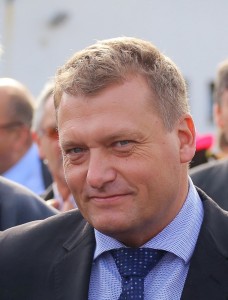 Dear Mr. Krtek, it has been about two years since you became a Member of the Czech Railways Board and more than one year since you were elected its Chairman. How would you evaluate that period?
Dear Mr. Krtek, it has been about two years since you became a Member of the Czech Railways Board and more than one year since you were elected its Chairman. How would you evaluate that period?
First of all, I would like to point out that Czech Railways is a joint-stock company and its management responsibilities are determined by this fact. Our task is to protect the interests of a stock holder, which is the state, interests of our customers, and at the same time interests of our creditors too. The net debt of Czech Railways Group amounts to approximately 33 billion Czech Crowns and our bonds are freely tradable.
In 2015, we took important steps towards effective company management. We approved our strategy, our fleet modernisation plan, and we are working on our maintenance. Our key areas are as follows: passenger transport, freight transport, and supporting services, like for example the above mentioned maintenance.
Unfortunately, we also inherited many problems of the past which have begun catching on us now. None of them may put Czech Railways at serious risk, but it is necessary that the management is gradually solving individual issues one by one. This, of course, is a long time process.
Which of these issues do you perceive as crucial?
A typical example can be inherited lawsuits and various real estate projects. Another case is a lost arbitration with Škoda Transportation. None of us signed the agreement for 20 engines, back then existing only on paper; however, we have to deal with the consequences.
This case is covered by the media, is on the agenda of the Ministry of Transport as well as the government. So, it is a top-priority problem. Is it possible that a payment of over one billion Czech Crowns according to the decision of the arbitration court may become fatal for Czech Railways?
Definitely not fatal, but it makes a difference if you can use a billion as an investment and buy new carriages or if you, for incomprehensible reasons, pay to a private entity which delivered the ordered engines several years later than agreed. Therefore, we filed a lawsuit and we want to invalidate the arbitration decision at court.
And did you have to pay?
Yes, we did pay, part of the money, the remaining part of the purchase price plus interest, within three days. If Škoda Transportation had a warrant of execution issued for us, it would have been another problem for our company. It would have put running our business and its reputation at risk, and we cannot afford this towards our creditors either. As I already mentioned, Czech Railways bonds are freely tradable. However, we will not pay an inflation increase, which makes about another 750 million. We have informed a supervisory board about our steps and we have agreed on this decision.

Did you discuss the issue with Škoda Transportation owners?
Our partner was always the management. I am not aware of the owner´s identity.
It means that also through you, the state gives enormous contracts to a company whose owner we don´t know. Do you find this correct?
It is not a question for me. I am a manager and I strictly follow current legislation. Anybody can enter our competitive tendering and if they pass the qualification and win with the lowest price, the contract belongs to them. As a state-owned entity we proceed according to law.
Companies from Škoda Transportation Group represent our traditional partners. It is also necessary to recognise that they give work to people in the Czech Republic, which is good. Therefore, we feel quite uncomfortable having such serious conflict with this supplier. Nevertheless, we believe that the court will agree with us and will invalidate the arbitration decision. It is against common sense to tell Škoda the later you deliver the carriages the more money you can get.
At the end of the year you won another important court case, against one of your competitors, didn´t you?
Yes, we did. At the first instance court we won a case against Leo Express that insisted on our payment of over 418 million Czech Crowns for an alleged abuse of a dominant position on the Praha-Ostrava line. We did not commit anything like that and we are glad that the court confirmed that. Unfortunately, the whole issue has not finished yet because a similar case is being held against us also by the other private competitors. However, the court decision is exceptionally important. Private carriers were entering the lucrative Praha-Ostrava line, operated by us, and they supposed we would not behave as a commercial company and would move away. Once they discovered that we are fighting for customers, they started attacking us unscrupulously. We were trying to ignore all kinds of invectives for a long time, but when the media published that Leo Express´ owner describes our activities as criminal ones, we filed a suit and want an apology. We too are a commercial business and have our interests, customers, and creditors. We won´t let others insult us forever.
It might almost look like all your time was occupied by disputes with suppliers and competitors. Isn´t that tiring?
You are right; sometimes I have a feeling I am spending most of my time with lawyers. Cases are of course a burden, but it cannot put the company´s operations at risk. A very important task was to defend successfully our company rating in the investment band, which we achieved in spring 2015. We also issued bonds which in spring 2016 would re-finance some of the older, due bonds. On top of that, for this emission we gained really good conditions that would save us a considerable amount of funds. Let me also mention the fact of keeping our passengers, who had to endure a great number of traffic closures due to the infrastructure repairs. All of this we were able to achieve thanks to effective management and primarily thanks to all our people´s hard work. Before Christmas we also signed a new collective agreement. With the unions we reached a reasonable compromise which ensures social security to our employees and reflects real possibilities of the company. Social peace is very important for the stability of Czech Railways. We have also signed a collective agreement at Cargo which at the same time announces improvement of their economic results in the second half of the year.
Regularly, we can see articles about new carriages in Czech Railways colours. How much have you invested in them?
We are slowing the process of our fleet modernisation down a bit because we concentrate on gradual decrease of our company indebtedness. Even though, this year we have purchased carriages worth billions of Czech Crowns. Thanks to that, higher comfort of travelling comes also to the lines where it has been awaited by passengers for a long time. Let me mention for example: the line Brno – Břeclav – Olomouc where old fast trains are being replaced by new InterPanters. High quality carriages for long-distance transportation from the line between Praha and Brno have moved to the Praha – České Budějovice line, and so on. I think that if people evaluate the changes of several past years impartially, they will admit that our effort is visible. And don´t get upset with me, but this is the two competitors on Praha – Ostrava line who can claim credit for that. After all, new, modernised carriages are working on the lines which are of no interest for these two. If we didn´t have a big state carrier here – Czech Railways, which provides global services all around our country, a systematical modernisation of wagons would have not definitely taken place in such a short time.
Does it mean you deny your competition credit for changes on Czech railroads?
No, definitely not. Competition is useful in every field. But when you realise whose investments into a modernisation of carriages and infrastructure are the highest, it definitely is the state’s. Either through our company or SŽDC. It is undeniable. Nevertheless, let´s be fair. Private competition motivates us, inspires us and does not let us rest. Which is good. On top of that, with them entering the market, also the state and its representatives realised that liberalisation of railways market is a challenge that must be taken seriously. That is evidenced by the ongoing preparation for creating an independent regulator and further legislation changes which after opening the market are necessary here. And the market is opening all over Europe, which means anybody may come here.
Speaking about 2015, we cannot leave out significant events occurrences on our lines. Have you learn your lesson from them?
It is necessary to learn from every extraordinariness. Black ice at the beginning of the year made us strengthen our traffic control and made the communication with SŽDC better, since their infrastructure was unusable due to black ice and thus our trains full of passengers remained standstill. We also fine-tuned our information system and customer care in extraordinary cases across the board. The collision of a truck and Pendolino in Studénka showed how dangerous it is if you violate traffic regulations. I feel really sorry that to make drivers realise that railway crossing lights are not there for fun, our passengers had to die.
This incident undoubtedly also awoke SŽDC being responsible for infrastructure as well as the state authorities. Thanks to that the issue of increasing safety of railway crossings is much more discussed now. Can you as a carrier also take some steps with regard to that?
In this aspect our role is limited since we do not own either crossings or roads. Despite that, we take active part in the activities of the commission established by the Ministry of Transport, whose task is to find the most suitable way of improving safety of railway crossings. Already in spring of 2015, Czech Railways Board of Directors approved the plan of purchasing two simulators where our train drivers would be preparing for similar extraordinary events. At the same time, we are working on public awareness. Unfortunately, people are incorrigible. If drivers followed traffic regulations, nothing like this would ever have happened.
One of your Pendolinos was seriously damaged in the accident. However, you will repair it, won´t you?
Yes, we will, although the cost of repair is quite high. It will be over 200 million Czech Crowns. Even so, it will be worth repairing the unit. Pendolino belongs among the most popular trains of Czech Railways. It was the first train that brought comfort and speed never experienced on Czech railroads before. Every child knows what Pendolino is. It would be unfortunate to lose a unit that generates income and even after more than ten years of operation has no competition here.
Railjet is closing on, isn´t it?
Definitely. Thanks to railjets the number of passengers between Praha, Brno, and Vienna increased by tens of percent. By the way, the case of railjets is another one we won at court and a record high penalty of 25 million Czech Crowns was refunded to us, originally ordered by the antimonopoly office in connection with reconfiguration of these units.
It seems that on one hand 2015 brought a range of issues to Czech Railways; however, on the other hand a lot of successes too. What is your vision of 2016?
What you read in the media is not always the true reflection of reality. We were really successful in many things. I believe, the upcoming year will turn even better. There will be fewer traffic closures and we will continue solving the problems created in the past. We take an active part in the preparations of legislative framework for railway market liberalisation in the segment of passenger transport and in the process of identifying the position of a national carrier. Here, I also expect a positive development. With ordering parties we are already in discussions about a model of public railway transport functioning after ten-year contracts terminate, i.e. after 2019, and I could go on and on. The important thing is to continue systematically, step by step, according to the strategy we have approved.
What is the goal?
To make Czech Railways an effective company with balanced economic activities that will be fully competitive in the open European market. We want to focus on customers, keep service standards high, and constantly improve in all areas of our enterprise.
By Czech & Slovak Leaders
When Traditional Industry Paves Way to Modern Times
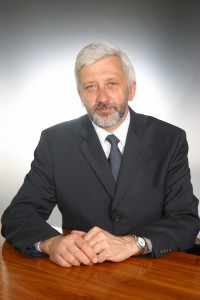 The fate and reputation of the steel industry in Central Europe could be compared to a classic “Cinderella” fairy tale. Classic but a bit obsolete and not making the headlines when compared to “trendy“ industries such as IT, biotechnology and others associated with creative start-ups. However, as the example of Železiarne Podbrezová located in Central Slovakia shows, when history and legacy not only meet current needs but also present a visionary outlook to the future, a unique story based on both local and global partnerships is created. The holistic approach of a company that has a 175 year-old history and puts people in the centre of success brings about a long-lasting and fruitful partnership that extends from a private secondary metallurgical vocational school and private high school, continues to sport clubs and reaches beyond to the preservation of the medieval castle of Ľupča or development of the Tále region.
The fate and reputation of the steel industry in Central Europe could be compared to a classic “Cinderella” fairy tale. Classic but a bit obsolete and not making the headlines when compared to “trendy“ industries such as IT, biotechnology and others associated with creative start-ups. However, as the example of Železiarne Podbrezová located in Central Slovakia shows, when history and legacy not only meet current needs but also present a visionary outlook to the future, a unique story based on both local and global partnerships is created. The holistic approach of a company that has a 175 year-old history and puts people in the centre of success brings about a long-lasting and fruitful partnership that extends from a private secondary metallurgical vocational school and private high school, continues to sport clubs and reaches beyond to the preservation of the medieval castle of Ľupča or development of the Tále region.
It is exactly thanks to the visionary approach benefitting the whole region and the impact made in several countries in Central Europe that the Czech Leaders Magazine has the privilege to feature the first Slovak citizen on its cover page. Meet Mr. Juraj Křiváň who has been a member of the board of Železiarně Podbrezová a.s. and also the sales director of the company for a quarter of the century.
Mr. Kriváň, you have dedicated more than three decades not only to one industry, but also to one company. Such loyalty and perseverance is quite unprecedented when judged according to current trends. Can you tell us more about your career journey?
To be exact, it has been already 37 years since I joined the company. During the last two years at the university I was given scholarship on merit from a steel factory, so my mind had been made up even before I graduated from the university. I chose the steel factory despite the fact that my father was an HR director of a neighbouring company producing sand; after he realised that I was going to start my career elsewhere he had not spoken to me for six months. My family and grandparents moved to Podbrezová when I was eight and I have been living here ever since. My education was quite special for that era: I studied a secondary technical school and then I went to the university to Bratislava to study foreign trade. One must bear in mind that during the times of Communism it was very difficult for someone who finished a regional technical secondary school to enter a university. I owe this to my father as he helped me with his support and connections. I am quite open about this fact because nowadays not very many people realise how different the times were then. On the other hand, I have never disappointed those who had given me the chance to study. After finishing my studies and completing one year of compulsory military service, I started as the head of new production. Over the time, I held interesting positions when I was introducing a new IT system to the company, I was handling the system of orders and then I became the head of sales and marketing department. For the last 25 years, I have held the position of the sales director and a member of the board. By the way, I also brought my wife from Bratislava to Podbrezová. If I am to summarise in one word the reason why I made the decision the way I did: I felt I would be given an opportunity there. And the opportunity that is exactly what I myself am trying to give to young people.
For younger or foreign readers, can you reflect on the changes brought by the Velvet Revolution?
It was definitely a big change. I just want to remind everybody that during the Communist times, more than 80% of production capacity went directly to the USSR as something that resembled a barter trade. The trade was organised on the state level with the support of Ferromet company. But the fall of the Communism and consequently the collapse of markets of the former Communist countries were not the last significant change for our company. The next significant change was brought by the separation of Czechoslovakia in 1992. Since 1992, my primary task was to build our own sales network and since then we established our dealerships in Prague, Poland, Italy and in Germany. The dealership in Italy uses the contacts to represent us in distant countries, such as the United States, Kuwait, South Korea and Australia. I am proud to say that since 1994 the sales network has been capable to secure 100% of sales of production capacity. From Podbrezová, we directly serve the Balkan countries, Romania, Bulgaria and Estonia, Latvia and Lithuania.
Where did you get the idea to enter the western markets? I can imagine that such a move was quite daring in beginning of the 1990s.
Since late 1991 until 1992 we had closely cooperated with a Swiss consulting company and we had done a year lasting internship. We used to spend four to five days per month in Lausanne and we got the idea that we needed to be directly present in the markets where we wanted to sell. I also got the inspiration from other western competitors. And the model setup has proven to be working for more than 23 years. My approach to the business is quite simple and stems from the belief that both sides need to be satisfied. Selling in our case is a truly continuous work; we produce about 25,000 tonnes of material each month and this is done best with the help of local people who know and can respond to the needs of local customers.
How was the steel industry affected by the economic crisis?
Well, that crisis in steel industry did not last very long, only from 2008 until 2009, compared to other industries. The fact, not often mentioned nowadays, is that there is another crisis going on since May 2015. Prices hit the record low and the steel industry has to bear the consequence of overcapacity from China and the United States. This year, we have lost the US market completely. Of course, we are trying to look at new territories, such as Vietnam, but these tend to be rather problematic at the beginning of cooperation. More than ten thousand jobs were lost as a consequence of the current crisis in the steel industry all over Europe. We hope that the EU will come up with some anti-dumping measures not only against China, but also against Russia or Ukraine. We are represented by the European Steel Tube Association and although we have a support on the level of the European Commission, due to complicated processes related to the EU bureaucracy, it takes a long time to implement any measures. While the United States is able to react and introduce anti-dumping measures within weeks, on the EU level, it usually takes several months.
There is a famous quote saying “We should not moor a ship with one anchor or our life with one hope”. Given your busy schedule and great business achievements, what are your other anchors?
I have always had a high regard for my family and I feel and value their support. I have tried to compensate for the time when I was not with them, and not only in the form of presents but also in form of time spent together, for example during vacations when we travelled a lot. And then I am a big fan of sports, actively and passively. Železárny Podbrezová continuously supports several sport clubs, a football club, a volleyball club, a golf club and skiing activities. Last but not least, I am a big fan of skittles and I am also a member of the Executive Board of Slovak Skittle Union. My interest in skittles goes back to my family tradition. My grandfather was a carpenter and he used to carve skittles in his free time and supplied local pubs with them. In Podbrezová, there has been a long skittle tradition and our team even won the Slovak National League. We used to have only old two lanes; however, the championships are played on four lanes. So it was in 1997 with the reconstruction of the vocational school when we built six lanes and now we have three teams competing in the national league.
You mentioned that already in 1990 all seven members of Železárny Podbrezová Board decided not only to give work to people in the region but also to contribute to the social dimension of the regional development. Besides supporting sport activities for young people, your company also runs two private schools. The first being vocational school with a dual system of education, the second being a high school preparing students for universities.
The vocational school prepares our expert skilled workers. People do not realise that these workers operate high-tech machinery. Just imagine that a rolling mill machine produces 600-700 of tonnes of material per day and when it breaks down, it needs to be repaired, disassembled and assembled quickly. If this equipment is broken, production stops. All 60 students finishing each year find work in our company and they are ready to start working in a particular position. Those who wish, can continue their studies at the university. I am aware of the fact that other companies in Slovakia have shortage of technical skilled labour. The technical and construction work is still very much underestimated since few people are aware of the fact how closely it is linked to much needed innovation and design of new forms of production.
You and I have in common remembering Czechoslovakia, so how do you personally feel about the separation of those two countries? And how are current Czech-Slovak relations being perceived by the new generation in Slovakia?
I still perceive it as a decision made by two politicians and not based on referendum. I personally believe that had the referendum taken place, the split of the country would not have occurred. Now, it has been a reality for 23 years. What I see is that the new generation does not have the close ties that we used to have across the country and most of all, they do not understand the language. During the times of Czechoslovakia, you had the news one day in Czech, another day in Slovak. The same was true about movies, theatre plays, books and magazines. The languages were really close. Today, everything is subtitled even from Czech and Slovak and the nations are not as close as they used to be. My daughter lives in Prague and when I come there and start ordering food in Slovak, no one understands me.
What are your final words to Czech Leaders readers?
I would very much like to point out the long tradition of the steel industry in Podbrezová. I hope that the 175 year old tradition will continue. The industry faces a difficult situation but our company is big enough to deal with that. My life motto taken from my grandfather is that anything is possible if you have the right mindset. I believe that the young generation will take their chance and use opportunities afforded to them. I was also given my chance when I was 25 years old. Last but not least, I would like to extend my invitation to our region surrounding Podbrezová, so you can try yourself our hospitality, including our premium sport and skiing facilities. We try to do our best to provide the top quality services and to present to our guests our beautiful region where the past meets the present.
By Linda Štucbartová
About Železiarne Podbrezová a.s.
Having consolidated a turnover close to 500 million EUR, Železiarne Podbrezová ranks among 15 largest businesses in Slovakia. The company employs almost 7,000 people in Slovakia, Czech Republic, Spain, Italy, Poland and Germany. As an integrated producer of steel and seamless steel tubes, it produces 160,000 tonnes of seamless steel tubes per year, which makes the company one of the leading manufactures in this industry in Europe. With its own sales and marketing network, the company runs its sales in 50 countries on all 5 continents worldwide.
About Július Kriváň
Július Kriváň began his career with Železiarne Podbrezová a.s in 1978 after he had completed his studies at the Economic University, field of study: Foreign Trade, in Bratislava. Over the years, he gained experience holding various roles in the Sales Department until he became the Head of Sales and Marketing Department in 1982. After eight years, he was promoted to Commercial Director and Member of the Board and he has held these positions ever since.
“I consider myself first and foremost a European and then a citizen of the world.”
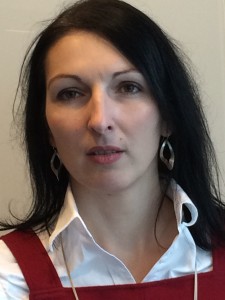 I met Klára Skřivánková at the Women Trust Conference in London. She was the expert and moderator of the panel addressing the issue of modern day slavery. She represents the new generation of the Czechs, those who grew up without boarders and limits. She has lived and worked in several countries; she is now based in London. Her career journey includes working at the United Nations Office of the High Commissioner on Human Rights, United Nations Office on Drugs and Crime, a research for a German parliament member and work at La Strada NGO in Prague.
I met Klára Skřivánková at the Women Trust Conference in London. She was the expert and moderator of the panel addressing the issue of modern day slavery. She represents the new generation of the Czechs, those who grew up without boarders and limits. She has lived and worked in several countries; she is now based in London. Her career journey includes working at the United Nations Office of the High Commissioner on Human Rights, United Nations Office on Drugs and Crime, a research for a German parliament member and work at La Strada NGO in Prague.
I admired and enjoyed her global perspective on human rights issues including women´s rights combined with her engaging approach.
How do you perceive today´s world?
I see the world as a wonderful place that is full of inspiration despite the fact that I have been dealing with serious abuses of people for the past fifteen years. The patchwork of cultures, experiences and knowledge offers endless opportunities to learn and explore. Yet, the world may appear to be in a state of permanent crisis as portrayed on TV screens, front pages of newspapers and in statements of scaremongering politicians. News dominating the headlines tends to be about the financial crisis that started a few years ago, the Ebola epidemic that started last year, the huge numbers of people on the move throughout 2015 and raging regional wars.
However, I believe that it is not those crises that should concern us most, but the attempts of our leaders to curtail our liberties and impose limitations as measures to make us all feel safer.
What I see as the biggest threat to us here in the “Western World” is loss of the rights and freedoms that were hardly won by our ancestors. It was no coincidence that the Universal Declaration of Human Rights came about following terrible atrocities, and much of the other fundamental human rights were enacted in colonial times. Mandela, Martin Luther King, Pankhurst, Rosa Parks and countless other women and men whose names we do not know, paid with their lives (literally or at a great cost to their families) to secure the liberties and freedoms that we now take for granted. Fundamental human rights are unalienable and every human is entitled to them. These principles are anchored in law to ensure that people’s freedoms cannot be taken away on a whim of a politician. What many people do not realise is that fundamental rights and freedoms are there to protect us from ourselves!
Of course in practice it may sometimes seem that the rights of ordinary people are worth less than the rights of those in a position of power. That does not mean though there is an issue with rights, but rather with institutions that should be enforcing them and a weak rule of law. But the very existence of the human rights framework means that one still has recourse to rights and judicial protection. Without this fundamental framework, the authorities would have the legal authority to exercise power in an unrestricted manner.
My worry is that the complacency of the current generations that did not have to struggle for their basic rights may lead to the erosion of the basis on which our societies are built. Developing a robust human rights framework is like building a cathedral without the machines and modern technology – it takes a many years of will, dedication, skills and delicate balance to erect something that is strong and withstands the changes of weather, in the same way as human rights framework is there to withstand changing political climate. Demolishing a cathedral would be a matter of minutes – one would just need some dynamite. Similarly, dismantling the rights framework could happen very quickly – if people stopped holding politicians to account and succumbed to the fears that the so-called leaders are trying to instil in us.
Living and working in London, how do you perceive the Czech Republic?
I have to admit I do not follow developments in the Czech Republic quite as closely. At the same time, I think I now have the benefit of a sort of an outsider view, while having the understanding of the country that only an insider can have. The question that I ask myself often is: “Why are we underselling ourselves, both as individuals and as a country?” The Czech Republic has a lot to offer – knowledge, skills, culture, arts, and yet, are we mainly known in the world for our cars and beer.
Of course there is the legacy of the past which instilled into people that they should not stand out from crowd and which ridiculed achievements and success. But there is also the passivity of the present, something I could describe as comfortable mediocrity, which I think is a great shame for the Czechs. And that is perhaps one of the reasons why we see so few Czechs represented in international organisations, in management of intentional businesses or holding leadership position in European and international politics. What I would like to see is the Czech Republic to support developing and exporting our brain trust and actively participate in world affairs. I believe that a government department that would help and support Czech citizens in applying to international appointments like the Netherlands have, would be quite beneficial.
Your career journey is very typical for the upcoming generation. From Prague to Berlin and Geneva and now more than a decade living and working in London. Do you consider yourself a Czech, a European or a world citizen or you do not seem to deal with this issue at all?
I consider myself first and foremost a European and then a citizen of the world – much of which I am yet to get to know. I have lived in the Czech Republic for 24 years, spent a year studying in the US, lived and worked for two years in Germany and have lived in the UK for over ten years. I was born in Prague and this beautiful city will always be a home. But London is the home of my choice, because it is place where one can be anyone and anything; it’s a place of arts and culture, full of interesting people from all corners of the world. I also experience it as a place where people judge less and where one’s ethic background, nationality or sexual orientation or religion is not a barrier. It is here in London where I truly feel at home – in the village of Vauxhall on the south bank of the river Thames.
Currently, you work for Anti-Slavery organisation founded in 1839 which makes it the oldest human rights organisation in the world. For many Czechs it might come as a surprise that the issue of slavery still persists in our modern era.
It is only a comforting myth for many that slavery is an issue of history. It is not. All countries in the world have what we call “modern slavery” in its particular form. The Czech Republic is not an exception. People, many of them migrants are trafficked to the Czech Republic and coerced to work in inhuman conditions that can only be described as forced labour. Many may have heard about the case of migrant workers exploited in the forestry across the country. The Czechs too become victims of trafficking in other countries, including the UK. Despite the laws that prohibit slavery and human trafficking, and government policies and commitments, human trafficking is one of the most profitable forms of organised crime and the International Labour Organisation estimates annual profits from forced labour to be $151 billion. The reason why modern slavery remains intractable is not the lack of legislation or the need for more policing. It is the absence of political will to deal with the causes of the problem within the political economy and the interest of many states and businesses to maintain a system that generates enormous profits.
We have meat at the Trust Women Conference that has been labelled as the best conference dealing with rights of women. Despite this fact we were the only ones from the Czech Republic present. What are the reasons behind the little interest in global issues and perspectives in the Czech Republic?
Whether Trust Women is or is not the most influential conference on the rights of women is something that only time will tell. It is still a rather new venture. I am a real conference “veteran”, so I often wonder how the impact of a large conference that involves a lot of money, PR and celebrities compares to smaller, in depth seminars that truly give women the skills, empowerment and voice to improve their political power or stop violent practices in their communities.
As for the absence of Czech participants at events like these – it is sadly quite common in my experience. I am not sure if there is complete disinterest in what is going on in the world. I perceive it rather as a form of passivity or perhaps resignation – while we may be interested in the big issues, I still believe that a lot of Czechs feel that it is either something that does not concern them, or something they cannot do much about.
Discussion about women´s rights in the Czech Republic usually end up with the polarising debate on quotas. Can you present other dimensions of the debate that takes place for example in London?
The annual WOW (Women of the World) festival is a great example of how a public debate about women’s issues happens in London. It is a festival that does not only celebrate women, their achievements and creativity, but also a forum where difficult topics like violence against women or female genital mutilation are discussed. Overall, the debate is much more mature here. It does not mean that we do not encounter misogyny or sexism in the UK. But we do have the advantage of a continuity of a debate about women’s issues since the time of the suffrage movement.
Reducing a large debate that should be about equality of opportunities, sharing of responsibilities, unacceptability of gender based violence and empowerment and role models for girls, to a single issue about quota is in my opinion a clear reflection of the immaturity of the discourse in the Czech Republic. As citizens and voters we should challenge any politician who cracks jokes or ridicules discussions that concerns fifty per cent (or more!) of the population. This sort of disdain should simply be unacceptable.
I was positively surprised by a number of men experts involved in the discussion and supporting the issue of women´s rights. How do you manage to get men engaged?
There are quite a few men who now work on women’s rights. But they are still far and few between especially when it comes to work issues that are still on the margins. Unfortunately, it is even now the case that some men enter the debate only once the initial ground work has been done and try to take over when the issue has moved into the public sphere.
And what are your final words for Czech Leaders readers?
The most appropriate seems to me a quote from an inspirational and a very humble woman, Helen Bamber: “It is easy to be a bystander, but I wowed never to be one.” Helen encouraged many that they can make a contribution. Helen worked all her life to support survivors of human rights violations, from holocaust survivors in Bergen-Belsen, to refugees who survived torture and trafficked men and women. She worked full time until her late eighties, “bearing witness” as she would put it, hearing and understanding what has happened to people who survived atrocities and helping them overcome and find confidence to go on living. I was privileged to meet her and work with her during my time in London.
I would like find a way to move the Czechs form being largely bystanders to being agents of change. Each and every one of us can achieve change – I do not mean change that needs to make newspaper headlines, but a change that will impact lives of others – be it your neighbour, or someone who comes from a far-away place.
By Linda Štucbartová
The Bank Board of the Czech National Bank (CNB) decided to use the exchange rate as a monetary policy instrument, and therefore to commence foreign exchange interventions, in November 2013. On this basis, the Board accomplished a depreciation of the exchange rate of Czech koruna, which had oscillated around CZK 25/EUR until then, not to “allow the koruna to appreciate to levels it would no longer be possible to interpret as ‘close to CZK 27/EUR’.”
The Bank Board explained this decision by insufficiency of the hitherto used main monetary policy instrument, gradually lowering interest rates to technical zero, to boost the Czech economy strongly hit by the global financial and economic crisis. Another supporting argument was a growing risk of deflation, as prices of many items in the consumer basket (especially consumer goods) had meanwhile been falling for some time and there was a danger that households and firms would have taken falling prices for granted and incorporate them into their expectations and wage setting.
The CNB has not deviated from this standpoint so far, as its latest statement of 16 December 2015 documents. It informs that “the Bank Board decided to continue using the exchange rate as an additional instrument for easing the monetary conditions and confirmed the CNB’s commitment to intervene on the foreign exchange market if needed to weaken the koruna so that the exchange rate of the koruna is kept close to CZK 27 to the euro.” At the same time, the Bank Board stated again that the likely timing of the discontinuation of the exchange rate commitment was around the end of 2016.
The historical decision of the CNB has evoked a vivid discussion among economists from the very beginning until now. The adamant position of the currency regulator represented by Governor Miroslav Singer and the members of the Board has been supported by exporters, particularly from manufacturing industry. Those companies would welcome the Bank to hold weak koruna for a longer period. Also one of prominent economists, Jan Švejnar, recommended lately continued depreciation of Czech koruna, as he sees the risk of deflationary development still on the scene.
But the camp of opponents has also come with strong arguments. First of all, they, like Pavel Kohout, stressed the fact that the Bank had stuck too much to traditional models averting a deflation spiral, not having taken into account that the existing low inflation (not only a Czech, but also a global one) had been initiated mostly by lowering oil and natural gas prices. It would be also disputable whether the classical image of a consumer deferring purchases in expectation of even lower prices could hold in the recent Czech situation. Statistical data document that the existing upsurge of the Czech economic growth is driven from a significant part by domestic consumers’ demand that was delayed during a protracted crisis and can no longer be withheld.
The opponents also introduce a recent Swedish example. This smaller and open economy has experienced several external shocks since 2008 and also some deflationary development. Notwithstanding that, the Swedish economy has enjoyed a steady growth rate since early 2014 in spite of (or thanks to?) a prevailing deflationary situation. They also stress the case that the Swiss National Bank had to abolish the limit for the exchange rate of the domestic currency in January 2015 due to the growth of costs keeping Swiss franc at a required level and to easing monetary policy of the European Central Bank. A swift releasing of the franc exchange rate brought some initial turbulence but contributed Swiss competitiveness in the end. Therefore Mark Brütsch, Chief Economist of Swiss Life, a prominent financial company, recommends the same decision for Czech koruna.
The specific concerns of decreasing competitiveness and adverse structural shifts in the Czech economy are another theme of criticisms that have followed the koruna depreciation. This position is kept e.g. by Tomáš Munzi or Lukáš Kovanda. According to them, the depreciation has created a „soft cushion” particularly for those export industries that have otherwise problems to retain their level of international competitiveness. On the contrary, high value-added industries relying on international cooperation are hit by more expensive inputs. This may result, in longer term, in deterioration of product structure of the Czech economy, literally in a “return to mounting shop”. Statistics from the Czech Statistical Office might support this opinion in a way. E.g. while total Czech exports grew during January-October 2015 in comparison to the same period of 2013 by 21.6%, of which those of products of agriculture, hunting by 26.9% and of motor vehicles, trailers and semi-trailers by 39.9%, the exports of computer, electronic and optical products (which may stand for high value-added products) grew only by 18.4%. Nevertheless the period of comparison is too short to state this as a certain trend.
Another cloven hoof is hidden in the nature of such artificial decisions against market development. They are someway like drug addiction: simple to enter but difficult to exit. A quick release of the exchange rate of koruna to a market clearing level might disequilibrate the koruna market with an adverse impact on the Czech economy, and CNB would have to use a considerable part of its reserves to prevent a too quick revaluation. A gradual release of the exchange rate, more cautious and pre-announced, would in turn expose CNB to a risk of speculations and of testing announced deadlines.
The firm position of CNB as to setting the termination of interventions against koruna not earlier than end 2016 has brought so far a certain extent of assurance. It is now necessary to wait and see. Only after the koruna exchange rate returns to a natural and equilibrated level it will be possible to make a final account and assess whether the interventions of CNB brought more benefit or harm.
Emanuel Šíp
Partner
Allied Progress Consultants Association
Master PhD Dissertation Editing Service
With a workforce of professional dissertation editors on-board, we; at Regent Editing are capable of evaluating the investigation reports in a highest pro way. We slice away many of the excess goods from your very own carried out dissertation and make certain there presently exists no grammatical glitches, spelling problems, formatting faults for example inside the very same. We make the crucial alterations inside your dissertation and allow you to become the happy individual of your certainly great term paper. Inserting a purchase order with us can allow you to take advantage instantaneous gains on your producing element.
With a organization of more than 20 editors, 5 image creators and 17 peer analysis experts doing work for our buyers, we appropriately check out many of the docs which come to us for editing proofreading reason. All of our experts are subject matter specialists with levels from famous universities throughout the world. Our peer reviewers are connected to top universal educational facilities and are usually nicely familiar while using the certain conditions with regards to the usage of language and content in a investigate record.
Our deliver the results high-quality echoes a good deal about our determination towards our responsibility. We have a arranged approach to make certain that each and every record that 8 incredibly easy ways to edit my essay better while spending less professional editing services 4 stylish ideas for your academic editing services comes to us for editing or proofreading are being paid off particular person attention and pops up nicely. Our assignment staff are determined in the direction of providing assignments very well on-time, in that way placing appeal for our company good quality. We follow a comprehensive job transparency policy depending on which we make certain the belief that the customer is conscious about each and every aspect that is certainly being carried out for his/her document. Along with a impulsive turnaround time, we seek to attain maximum customer care.
This is a short insight into the editing companies provided by us:

| ESL Modifying |
| There exists a standalone organization of publishers which takes care of the precise editing conditions of trainees with English language as a following terminology. Our publishers decode the writing and rephrase it, with no need of carrying any sort of difference to the particular concept of the studies old fashioned paper. |
| Proofreading |
| With a company of experienced proofreaders on-board, we make certain to take out different flaws coming from the analysis newspapers which arrived at us for proofreading intent. We commitment to provide you a trick-confirmation papers that is capable of assisting you in snatch highest ratings through your testers. |
| Version Enhancing |
| We provide you with an entire makeover on your concluded study docs, in so doing improving the people for the very same. Our specialists are very well updated using the means of reproduce-editing during the most excellent technique. |
On the ICT as Means of Savings and on Prague More and More Attracting the Cloud
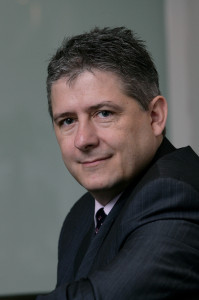 To non-ICT experts, the title might seem to be an oxymoron. However, the interview with Mr. Josef Švenda allowed me not only to address the trends in IT (for the experts rather ICT, stressing the combination of information and communication technologies) for the upcoming year but also improve the traditional dark image of the Czech Republic portrayed by the media as the country of cheap labour for assembly lines. On January 14, a unique press conference, synchronised across the region, took place, where Oracle announced the launch of a Europe, Middle East and Africa (EMEA) Recruitment drive to add 1400 new cloud sales professionals. In addition to Prague, new hires will be based in the five following locations: Amsterdam (the Netherlands), Cairo and Dubai (the Middle East), Dublin (Ireland) and Malaga (Spain). For the Czech Republic specifically, this will mean at least 100 new sales professionals who will help fuel growth in the Oracle’s cloud business. The press conference also marked the presence of Mr. Karel Kučera, General Director of CzechInvest, who was pleased with the growing trend in the Czech-US commercial exchange. From the point of view of a Czech citizen, it was interesting to hear that despite the fact that Oracle has not received any direct incentives for being based in Prague, it still sees Prague as an important regional location. The second reason was the fact that jobs for cloud sales experts will be followed by more expert positions of IT developers and so Prague managed to create new roles having a high added value on the market.
To non-ICT experts, the title might seem to be an oxymoron. However, the interview with Mr. Josef Švenda allowed me not only to address the trends in IT (for the experts rather ICT, stressing the combination of information and communication technologies) for the upcoming year but also improve the traditional dark image of the Czech Republic portrayed by the media as the country of cheap labour for assembly lines. On January 14, a unique press conference, synchronised across the region, took place, where Oracle announced the launch of a Europe, Middle East and Africa (EMEA) Recruitment drive to add 1400 new cloud sales professionals. In addition to Prague, new hires will be based in the five following locations: Amsterdam (the Netherlands), Cairo and Dubai (the Middle East), Dublin (Ireland) and Malaga (Spain). For the Czech Republic specifically, this will mean at least 100 new sales professionals who will help fuel growth in the Oracle’s cloud business. The press conference also marked the presence of Mr. Karel Kučera, General Director of CzechInvest, who was pleased with the growing trend in the Czech-US commercial exchange. From the point of view of a Czech citizen, it was interesting to hear that despite the fact that Oracle has not received any direct incentives for being based in Prague, it still sees Prague as an important regional location. The second reason was the fact that jobs for cloud sales experts will be followed by more expert positions of IT developers and so Prague managed to create new roles having a high added value on the market.
The remark from Mr. Švenda regarding the fantastic opportunity that Central Europe represents for both Oracle and for the cloud is not an understatement together with his belief that the cloud is perfect for supporting the rapid growth of agile and innovative businesses in the Czech Republic and Central Europe.
For me personally, this was a meeting with Mr. Švenda after a quarter of a century, which for him came as a surprise. During my high-school years, I was working as a hostess for the most prestigious IT exhibition called Computer Graphics and Mr. Švenda happened to be one of my first bosses, at that time leading Axiom company and presenting a revolutionary solution called Bernoulli box, a removable floppy disc. As you can imagine, from the IT perspective, it was the prehistory and after 25 years, I was pleased to reflect not only on the advance of the industry but also of the career of Mr. Švenda.
Mr. Švenda, we are meeting at the beginning of the New Year, so allow me to start with a personal question. What are your new year´s resolutions for the upcoming year?
Actually, I have none. For a long time I have been pursuing the way to concentrate not on big resolutions but rather on constant, day-to-day improvements. Every morning I try to find one particular issue that I can handle in a different and better way than I have so far.
And now back to the ICT sector. What are the main trends that you see relevant for the Czech and Slovak Republic for 2016?
I am glad that our countries continue to be undoubtedly a part of the Western world, so the trends in IT are the same ones as the ones in advanced countries. 2016 will be marked by the trend called Digital Disruption. Such phenomenon will influence almost every enterprise in every industry. The companies that are the most progressive are making their choices whether they wish to be “the disruptor” or they are preparing to be those to be “disrupted”. The power of Digital Disruption emerges as a culmination of five major trends that will reach its peak this year; these are: Big Data representing exponential growth of different data sources, Mobility in terms of digital data being able to be produced and consumed anytime anywhere, Social Networks as new means how to start a digital dialogue with customers, Internet of Things standing for data created by machines to be used by other machines and last but not least the Cloud as a flexible and elastic IT platform, enabling development and running of applications enabling the very phenomenon of Digital Disruption.
When you joined the company three years ago, you have compared Oracle to a roaring new red Ferrari. What does it feel like driving the Ferrari for three years?
It has been demanding as such a car does not allow for making mistakes. However, at the same time, you get to enjoy a lot of excitement.
As mentioned above, it looks like Prague is profiting from the Cloud. You have just mentioned new positions to be open with regards to cloud sales.
We are very glad that Prague has become a recipient of such an investment from Oracle. In order to offer so many jobs, Oracle has to invest quite significant resources into research and development of both products and services -these amount to 5 billion USD annually and also depend on the success on the customers‘ side. We are proud that Prague is perceived as a suitable location for high-tech centres such as ours. Our plans are ambitious and I believe that more than one hundred of new sales professionals will accelerate Oracle’s growth even further.
Few years ago, the experts were divided into two categories – those who supported cloud and those who were against. Now, cloud looks like a panacea. However, are there any other trends and solutions that leaders should be aware of?
I have already mentioned five significant trends (Big Data, Mobility, Internet of Things, Social Networks and Cloud); nevertheless, I would add one more and that is security which in reality runs through the main IT trends and to a large extent it can decide about existence or non-existence of companies in current digital era. Business leaders should pay a great deal of attention to security and choose partners that are well aware of the risks coming from digitalisation and are ready for them.
Another phenomenon worth mentioning is the interest of big IT companies to provide services for small and medium enterprises (SMEs). Thanks to the cloud solutions SMEs can afford modern systems that might significantly advance their performance. But doesn’t it resemble a situation when Goliath is giving his advice to David?
Perhaps, but it is worth noting that even Oracle started as David years ago and for many new companies it can be now an example and a source of good advice. I do not think that there are many companies who wish to stay small forever.
Let’s talk about investments in the public sector. When I did an interview with Jan Muehlfeit a few years ago, he admitted that investments in IT not always translated into the growth of performance. Has the situation changed?
ICT technologies have an enormous potential for the efficient running of public sector. But as it is the case with other investments, such potential might not be fulfilled for different reasons. I cannot say whether the situation in the public sector is improving, but I can clearly see the potential of ICT to improve lives of citizens and the entrepreneurial environment and we will definitely try to achieve that.
It looks like that you do not complain about the lack of students interested in technologies and given the number of acquisitions you do not mention that there is a lack of companies suitable for co-operation. Is it thanks to the industry of are you an optimist?
Or is it perhaps that our industry attracts life-optimists?
Mr. Švenda, can I ask you for the final words for Czech and Slovak Leaders?
Since we started on the new year’s theme, I would like to wish everyone plenty of success, both in their professional and private life in the upcoming year.
Are you the right candidate for Oracle? By the way, you do not need to have IT background but rather business drive and experience. And by the way, Oracle is also looking for talented women. Let me quote Loic Le Guisquet, President of Oracle.
“I want socially savvy, switched on individuals who can help customers respond to the digital imperative and make their businesses future proof. We are looking for people who want to be relevant to the biggest trends shaping business and technology.”
By Linda Štucbartová
Energy and its various resources: traditional, renewable and energy needed for personal welfare
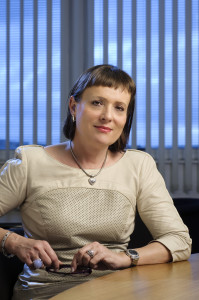
I was anxious to interview a woman that ranks among top managers in the Czech Republic and has devoted four decades of her professional life to the energy sector, namely the gas industry. She is publicly known as being “as sharp as a razor” and her media image is heavily influenced by many charges that have been filed against her since she assumed the position of the Chairwoman of the Energy Regulatory Office. She has been in charge of the institution since 2011 – the term in office lasts 6 years.
When I met Mrs. Vitásková personally, I enjoyed her profound knowledge and the ability to present rather controversial arguments regarding new trends in renewable energy that are in sharp contrast with the public opinion in a way that even a layman understands. I was astonished at how frank and open she was regarding the issue we both care about – overall diversity, not only gender but also generational one, overall low presence of women in Board positions and their unequal treatment in highest top-management positions including a salary gap difference. I also admired her strong determination as well as her ability to deal with all the external pressures given several accusations she has to face that eventually brought her living under the police custody. Last but not least, we discussed her involvement in charities and her life credo to give and support those in need but not to make it necessarily public.
Mrs. Vitásková, your life and career is associated with one sector – energy, namely gas. What was the reason that you, being a 17-year old girl, decided to choose the typically male technical discipline in the era of “normalisation” in the Communist Czechoslovakia of the 1970s?
Well, my family background was not the Communist one and despite the fact that I was a high school A grade student, I was not accepted to the university as a full-time student. So I had to opt for a scheme that enabled me studying while working full time. At that time, the building of North Moravian Gas Company was located in the most modern building in Ostrava, having a radio in each office. I could feel the progressive environment, I liked the music being played there and so I started to work there as an administrative assistant, making my way eventually to the top. Then, after the turn of the millennium, I was responsible for the privatisation of Transgas with a much larger scope of involvement in international gas trade. Such international co-operation proved useful two years ago, when I initiated co-operation with other energy regulators from Visegrad countries (Poland, Hungary, Slovakia). I must say that after the Velvet Revolution I was made an incredible offer to start a subsidiary of an international company in the then Czechoslovakia but in a different industry. The month salary equalled to an annual salary including incredible benefits, but I had to turn the offer down. I realised, and later I had to explain to the surprised management of that company, that I would not be able to smell “the odorant”, specifically “the smell” of substances added to gas so people can smell and recognise a dangerous leak. So I believe this story demonstrates my passion for and fascination with the specific gas industry that has lasted for more than four decades.
Your move from the private sector to the public sector represents another interesting aspect of your career journey which is in contrast to the more recurrent trend in the Czech Republic where politicians in particular tend to move in the other direction, from the public sphere to the private one. What was your motivation to join the civil sector that does not have the best reputation?
My overall aim is to set a transparent and fair environment to all players involved in the sector and protect customers. I can say that I was familiar with the energy environment from the other side, during liberalisation and privatisation I knew how the regulation was drafted and how it originated. At that time, I was not aware of the challenge brought by the subsidisation of the renewable resources. I was aware of the problems with photovoltaic energy power stations and I prevented the possible repetition of the problem with regards to gas biomethane. I believe that I stopped the uncontrollable subsidising of renewable resources at the right moment, given that the regulation is set for a 20-year time period and the financial consequences of such continuous support would be beyond any financial control. I am known for fighting the “mafia in the energy sector” that is very powerful and my determination to fight these groups is very strong. I have never heard any criticism from the government or from the experts. However, I have experienced how the energy mafia is able to exercise its pressure using certain media, state prosecutors, individual politicians. However, given my personality, these attempts come in vain. The more I fell under pressure, the more strengths I find to fight these unfair practices back.
In general, life stories of leaders can be divided into two categories. The ones enjoying life as a journey and the others having a particular life mission. In your story, I have seen both trends. Which characteristics suit you better?
You are right. During the first part of my career I see the journey pattern. However, I have always had a desire to create something that would remain even after I leave. The building in Ostrava, mentioned earlier that brought me to the gas industry, was ready for demolition 30 years later. However, I did not want to let it destroy and the headquarters to move elsewhere. So I fought for its reconstruction; the reconstruction was so successful that it received a special award and I managed to preserve something of a historic value. In various positions, I was always interested in implementing something new, be it the most modern IT systems or customer relationship management systems. Now, during my position at the ERU, I see my mission in setting up and protecting fair environment and vulnerable players.
You have been ranking in the Top 25 Czech Women in Business chart and you were awarded the Manager of the Year in 2002. How would you describe your leadership style?
I know that I am very demanding. I am harsh on myself so I have the tendency to be demanding on others. But whenever I was leaving, the employees were saying “the fairy-tale with Alenka is over”, despite my high performance oriented character and challenging discussions I used to have with my colleagues, given my vast experience in the industry combined with technical education background. Now, diversity seems to be a current issue, but it has been my natural tendency to have teams always comprised of three generations, the experienced ones, the young ones and those in between. I have built those teams and we achieved great results. When I started to work for Transgas, it used to be 2 bn. in debt. We immediately launched 13 projects to raise the value of the company prior to privatisation and analysts expected the best bids between 60-80 bn. CZK. The final sum obtained in privatisation was 134 bn. CZK which shows how well the company was prepared and how highly valued it was by the foreign investors.
Let us get from management back to energy, in particular to the controversial issue of renewable resources. Despite the growing support for green trends in society, you again go against the current in outlining the risks these resources present.
There are two points to this argument. The first one is that I do not like to see renewable resources as an opportunity for one particular group to get profitable business with subsidies at the expense of others concerned, particularly consumers. The other side of this is the decision made on the EU level to go and support such policies and I will keep challenging this decision. I believe the decision was made without any previous consideration about the overall impact. I compare it to the situation when an innovation is being introduced to production without any additional technical changes. Yes, I see renewable resources as a new possibility of acquiring energy but we need to have exactly allocated finances together with technical background. I support innovation but only when it has clearly defined limits. I am convinced that unprecedented support of renewable resources will negatively impact the development in energy sector in next 20 years. The overall amount of energy from stable resources has been declining, the purchase price is declining but at the same time, due to subsidies, the energy price for the consumer is rising.
Not very many people realise the risk associated with the renewable energy due to insufficient technical solutions with power grids. With the decline of energy coming from Germany, the Czech Republic is in the danger of blackout, even though our distributional network is perfectly fine. And then we are getting closer to scenarios that some people can consider from the realm of sci-fi, but in fact are very real. How many days can our society function without electrical energy? The experts say that chaos will come after three days, total collapse after seven. Just imagine the amount of people immediately stuck in elevators, chaos on roads, hospitals without electricity, market failure due to malfunctioning banking systems and ATM machines, and so on. The current system needs to be more technically advanced as well as backed up and possible investments will be enormous. It is also worth mentioning that the more clever and sophisticated systems, the bigger risk of possible cyberattacks.
How do you cope with being under constant pressure?
My grandmother used to repeat the Czech proverb that “a man gets used to anything, even to gallows”. And I realised that this is truth. My father died when I was only 12 years old and I have two younger siblings that I had to take care of. I have already mentioned that I was not allowed to study, so since rather early age I got used to facing somewhat hostile conditions. On the other hand, I learned how not to give up easily. I have always loved what I was doing and work is actually also a hobby of mine and so I get the energy back. Whenever I come to work on Monday, I look if the police are present. If they are not present, I go and work as usual. After the police visits, I usually do not sleep for a couple of days. After I received the first accusation, I felt really desperate because I have not done anything wrong, which is the feeling I would not wish to anyone. Eventually, I got used to this feeling. I must say that even outside of work, I spend a lot of time discussing many accusation-related issues with lawyers. After a couple of days, I get back my drive and energy to fight the injustice and accusations I am facing. I have a dog, called Aiki. His character, as a mini-schnauzer, quite mirrors my personality. I also enjoy playing golf to relax. Last but not least, I would like to mention a group of friends that have remained around me supporting me for more than three decades.
Very many companies nowadays support women in leadership positions to get more balanced teams that are known to perform better. How difficult has it been to be a woman in the men´s world of gas industry?
I definitely agree that everything was more difficult for me due to the fact that I was a woman.
There were only few women in gas industry and usually they were not often taken seriously. My technical background and expertise proved to be an advantage, since I could prove that I could join and contribute to a debate. However I could see several differences in my style: I did not joined the rest of men either at soccer game or at the pub and I was very open in my communication. The biggest problem that has quite shocked me was, nevertheless, the pay gap. Even in top company positions, my salary resembled the one of Cinderella in comparison to my male colleagues. And this is the major inequality and injustice, everything else up to women to fight and solve. My mentoring advice for women is to never give up. However, as studies show, when women are hard and persistent, they are often labelled as being hysterical or difficult. It is true that efficiency does not support women being liked.
You have been very active in supporting a lot of charity organisations, but you have been quite discreet about it which is another trend that is against the mainstream approach in the Czech Republic.
It is my belief that this should not be a topic of my discussions. My personal motto is that from the money I gain, one third money should be enjoyed and spent, one third invested and one third given away. I have continuously supported a house for sight-impaired people in Opava since 1992; I also support charities for handicapped children engaged in hippotherapy, and I was the Chairwoman of Livia and Václav Klaus Foundation for two terms. I also have supported a charity for senior citizens since this is a group that is not being paid attention to. I believe that my life goal to leave a legacy is also reflected in charities I chose to support.
By Linda Štucbartová
“There is a clear delay between the pace of the digital revolution and potential regulatory measures.”

You are covering whole range of topics such as Internal Market and Trade policy. Let´s start with international trade and new EU trade strategy. What are the opportunities for the EU in global trade? On which part of the World should we focus and what form should the negotiations take?
I personally welcome the Commission´s new Trade and Investment strategy, because I believe it is a much needed and long awaited document. For the EU, which is a global leader and trendsetter in this field, trade is one of the key areas of its policies. With the new strategy there is an emphasis put on the crucial link between trade opportunities and growth and jobs generated in the EU. More liberalized trade with our main partners creates more jobs in the EU and thus contributes to its growth. This is one of the premises on which we should base all of our future negotiations. But above all, we need to deliver concrete benefits from trade agreements to our companies, especially small and medium enterprises. When it comes to the regional focus you were raising, I am convinced that first of all we must undergo a stock-taking exercise of all the ongoing negotiations. I am concerned by long lasting talks, some of them have been blocked for quite a while and we should be able to say whether there is a common will to continue on these or not. As a priority, we have to conclude those negotiations currently taking place with our key trade partners such as the USA and Japan. But I see a great potential for our companies also in Latin America and Asia.
Conclusion of the TTIP negotiations will not happen in 2016. In November, the US will hold presidential election and we have to expect a slowdown in EU-US talks. Do you see it as opportunity or threat?
I believe we should stick to our ambition to conclude the TTIP in 2016. You mention the presidential election taking place in the US next year. It is hard to foresee the exact impact this could have on the TTIP negotiations, however, I think that there is a common shared vision, both in the US and in the EU, that such an agreement has its merits and it should be concluded. We have advanced quite well so far, and it would not be beneficial to either side not to conclude it soon. I can imagine a sort of slowdown, as you put it, linked mainly to eventual changes in the US administration, but not to the point that I would call it a threat. The EU and the USA are natural trade partners, strategic partners as well, and TTIP could bring this relationship to another level, making both sides of the Atlantic work closer and providing businesses with real new opportunities.
Yet, in the context of EU-US cooperation, European and American businesses were shocked by the decision of the Court of Justice of the EU on Safe Harbour. Was it a “wise” decision?
Well, it would not be correct to make comments on the Court of Justice´s decision as to whether it was wise or not. The Court acts independently and is, without any doubt, able to duly justify its reasoning and judgements. We should take this decision as a matter of fact. The Commission has to analyse what kind of legal situation we are in right now and make it clear also for the companies. There were over 4000 of them using Safe Harbour and they deserve to know what will happen now. I think that we all know how important the data protection issue is for us, here in the EU, and we should make it possible for European´s consumers data to be handled cautiously and following clear rules, also by non-European actors. We spoke about TTIP a little bit ago, I believe that we have to find a relevant solution to the data protection issue also for the sake of this agreement.
In summer 2015, the European Commission suggested to grant China market economy status. The decision is likely to split Europe but also businesses across different sectors. Do we need more time to study potential impact of the decision?
This is a very important question, thank you for raising it. It is my impression that we do not pay enough attention to this issue in the Czech Republic. However, the decision on whether to grant China market economy status or not will have far-reaching consequences. The Commission has not yet stated what its preference is. We heard about the legal analysis which might lead to the conclusion that the EU should grant it. Having said that, the Commission is currently working on a couple of analyses which should shed more light onto this question. I think that we should be very cautious in this matter and also listen to what our businesses have to say. We hear about the steel and ceramics sector but there are definitely many more areas which could be heavily affected by such a decision. Bearing this in mind, I am calling on the Commission to investigate alternative scenarios and make proposals on different types of trade defence instruments which could help us protect sensible sectors.
The Commission unveiled its Digital Single Market Strategy in May 2015. It is difficult to regulate digital market. First the regulation is coming with a delay in such a smart-growing environment and second, it can suffocate the innovation. What is your opinion on that?
I completely agree with what you have just said. There is a clear delay between the pace of the digital revolution and potential regulatory measures. But for me, the ultimate question is: how do we want regulate the digital world? Do we need rules for everything, or should we adopt a laissez-faire approach and let the market figure it out by itself? In my opinion, the answer is somewhere in between, but closer to the latter. The focus of our work must be on the removal of barriers and national requirements that prevent a true single market. Instead of creating new prescriptive requirements at the European level, I believe we must instead work on the principles and frameworks of how we want the market work and then let businesses implement those principles. I fear that if we are too prescriptive, our laws will be outdated from the moment they are adopted.
We are expecting a new proposal on online platforms in 2016. What would be the best regulation to this environment?
There is currently an ongoing public consultation run by the European Commission on the regulation of online platforms. I am very much looking forward to seeing what the different stakeholders´ views on it are. Personally, I believe that to simply and blindly apply ex-ante regulation on platforms, as with traditional services, will do more harm to consumers and businesses than they would benefit them. We as legislators should focus our work on ex-post remedies instead of focusing on ex-ante controls. In other words, acting only after there is a problem instead of putting limits on businesses and traders before they even begin to sell. When dealing with this matter, we need to think outside the box and come up with new ideas. I keep saying we should think digitally by default. Another issue is data protection. I believe every platform has a duty to protect the data of its users. Security, however, will never be perfect. Consumers must be informed of a breach and what has been stolen. If the stolen data could be used against an individual, companies should be required to help counterbalance the negative effects.
At the moment (beginning of December) the European Parliament is finalizing together with the Council the General Data Protection Regulation. Digital market is based on data. How can we ensured the highest level of data privacy?
Yes, indeed, as discussed earlier, the data protection is one of the key elements of truly functioning digital single market. Both for the citizens and for the businesses. I believe that the Commission struck the right balance with its proposal. It came with the idea of a general data protection regulation, because the EU needs a single set of rules. This would help not only consumers but also companies carrying out cross-border operations. But I guess we can do even better here, as the initial ambition included also lowering administrative burden for all the actors involved.
Digitalization of the economy creates new barriers on the Internal Market. However, there are still persisting barriers in traditional business such as cross-border provision of services. What can be done at EU level to remove barriers on the Internal Market?
I think there is an approach to take addressing challenges in the overall single market. It would be hard to further develop e-commerce without working on opening up the market in parcel deliveries, provisions of services on cross-border level or labour mobility. All these issues go hand in hand with the rapid development of online services. There are also other barriers we should focus on, such as geo-blocking, which we suffer from any time we cannot benefit from a service because it is reserved exclusively to residents of a different country than ours. In general, we have to fully apply the mutual recognition principle. Let me mention one of the areas which still suffer from overregulation – the liberal professions. There are barriers which deny professionals to access their fundamental European freedoms of movement and establishment. So this kind of unjustified barriers must be removed as they prevent fair competition between different actors. National regulations amount to protectionist measures, they constitute de facto non-tariff trade barriers. We need the services provision directive to be fully implemented so that the Czech and other European professionals or service providers can access other cross-border markets freely.
Last but not least, what do you think about current threat of terrorism in Europe?
I cannot express how shocked I was to learn about the terrible events last month in Paris. It makes me sad to think of it, not only because I have been living in France for the last six years. It is obvious that the EU is now more than ever a target for terrorist acts and that we have to be active in countering it. For the time being, I am a bit disappointed by the Commission´s reaction to the urgent challenges raised by the security situation. We had high ambitions after the attacks on Charlie Hebdo last January, however our reaction was far too slow, heavily bureaucratic and not accurately designed. The Paris attacks happened almost one year since the Charlie Hebdo events and we have to be honest with ourselves, nothing really changed since then. I think we should be more active in this field; the terrorists will not wait until some directives are ready. They might be willing to attack us again and I hope we can face them better.
Thank you for the interview!
Alena Mastantuono, Director of CEBRE
Dita Charanzová is a Czech Member of the European Parliament. She graduated from the University of Economics, Prague and later from the Diplomatic Academy in Madrid. Ms Charanzová completed a doctorate degree from Jan Masaryk Centre of International Studies in Prague. She is a former diplomat, whose postings included the Czech Permanent Representation to the EU during the Czech Presidency, where she led the Trade Policy Committee. She has also worked at the Council of Europe. Ms Charanzová is the ALDE spokesperson and ranking Member of the Internal Market and Consumer Protection Committee and a Substitute Member of the Committee on International Trade.
“Please, help me return the synagogue to Bratislava!”
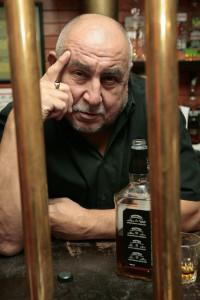 In 1969, the well-known Slovak actor Andrej Hryc, was a second-year student at the Department of Acting at the Academy of Performing Arts in Bratislava. His role model, the beloved Slovak actor, ass.prof.Ladislav Chudík, who had admitted him to his class two years before that, was already being punished for having defected in August 68 to Austria, which the incoming “normalization” communist establishment used to ban him from media appearances, as well as from teaching at the Academy.
In 1969, the well-known Slovak actor Andrej Hryc, was a second-year student at the Department of Acting at the Academy of Performing Arts in Bratislava. His role model, the beloved Slovak actor, ass.prof.Ladislav Chudík, who had admitted him to his class two years before that, was already being punished for having defected in August 68 to Austria, which the incoming “normalization” communist establishment used to ban him from media appearances, as well as from teaching at the Academy.
On Saturday morning of April 12, 1969, Andy Hryc was walking along the derelict Židovská Street (Jewish Street) in Bratislava to the Hall of Performing Arts in Kapitulská Street, for regular on-stage acting lesson, when his attention was caught by an unusual image on the Rybné (Fish) Square. An excavator was attacking with its heavy bucket the magnificent building of the Jewish Neologist Synagogue from the late 19th century and smashing its left tower, a home to a Slovak Television studio until only a few weeks before. As well as more than 300 other houses in this area, the Jewish Synagogue also presented an “obstacle” for architects of the new Bratislava landmark – the Bridge of the Slovak National Uprising that forever destroyed, cut off the area below the castle and separated it from the rest of the Bratislava’s Old Town. All wars that raged through the city combined did not cause as much irreparable historical damage to the Slovak capital, as this Communist urbanistic crime.
Hryc sat down on a stone, with tears of furious helplessness streaming down his disbelieving face, and did not go to school on that day. He spent the following weekend sitting in front of the Baroque House of the Good Shepherd, watching this unprecedented demolition. On Monday, the synagogue was gone. And, it was as if no one noticed anything, as if nothing had happened.
Sitting across from me, sipping coffee, is the founder of legendary Radio Twist, a popular Slovak actor and director, Seychelles’ Honorary Consul in the Slovak Republic – Andrej Hryc.
Andy, at a recent press conference, you introduced to the Slovak public a project which stunned Bratislava with its exceptionality.
Since I live nearby, I walk very often across the former Fish, today’s Rudnay Square. It is where my son Hugo took his first steps and where my two grandsons are running around today. I witnessed the demolition of an exceptional monument – the Jewish Neologist Synagogue in Bratislava, which had stood here at the base of the Catholic Gothic cathedral opposite the Orthodox St. Nicholas Church and which was slowly turning into a pile of bricks. For years it was a symbol of our city’s religious tolerance and even though I am not Jewish, I miss it very much to this day. I was able to overcome many of my life’s problems by remembering those unfortunate people who ended up in the Holocaust’s gas chambers. Compared to their suffering and tragedy, all my life’s problems always looked like a fun fair. For more than 40 years I’ve been carrying the memory of this event and one day in the evening, when I returned home, it occurred to me whether it would be possible to rebuild that interesting yellow house built in a Moorish style, where in the late 1960s in the Slovak television studio, located there at the time, I appeared in my first television production, the name of which I don’t remember unfortunately. I began thinking about it and then talking to people who are close to me.
With my friend Karol Kállay, one of the leading Slovak architects, we found in archives of the city of Bratislava the original plans by architect Dezso Milch from 1893. We took the tape measure and went to survey the Rudnay Square. When we discovered that there is enough space to build a 100% replica of the synagogue, the idea got real contours.
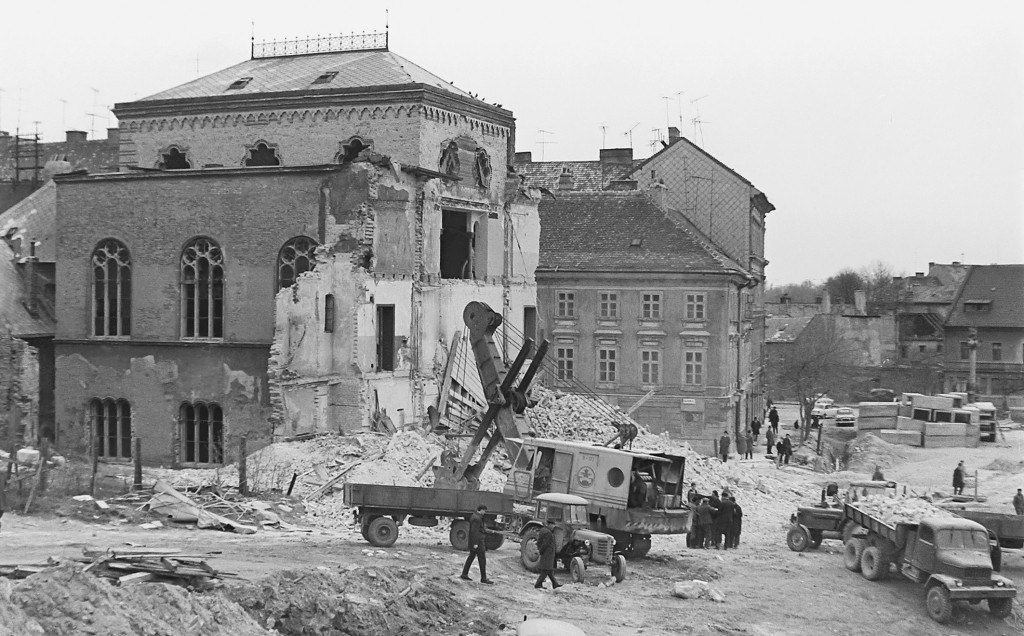
Demolition in 1969
What followed?
I presented this idea of mine to several close friends: sculptor Juraj Čutek, professor of economics, former Vice-chancellor of the University of Economics in Bratislava Juraj Stern and world-renowned neurologist Paľo Traubner – the outcome of our discussions was the founding of a civic association.
What is the mission of your association?
The association’s name is “We’ll bring the Synagogue back to Bratislava”. It has a single objective – to return to Bratislava the symbol of religious tolerance, so much needed in these days. I admit that this is a high aspiration, but I like challenges. Our association does not want to build a place of Jewish worship. The synagogue will serve the people of Bratislava and the general public as a multifunctional cultural facility and at the same time it will be a permanent reminder of the “disappearance” of one of Bratislava’s communities. It will be a Holocaust memorial. The names of all seven thousand Jewish citizens, who were deported from our city to the concentration camp, will be engraved in the marble wall of the “old-new” Synagogue, to commemorate, at least symbolically, their return to Bratislava, as a reminder of the absurdity of the persecution of people of a different race, ethnic origin and religion or political affiliation. I believe that we will achieve our objective.
What is the timetable of your plan, and what is its budget?
We would like to complete our project over the next four years. We have two years to raise the necessary funds. Our budget estimate is five million Euros.

Historical view of the Fish Market
Where do you want to find funding for such an ambitious project?
The Ministry of the Interior of the Slovak Republic granted us a permit to conduct a public collection. Our initiative was sponsored by all Slovak telecom operators, by organising telephone number 875 for donations via SMS, costing one Euro. We obtained patronage of the Mayor of Bratislava Mr. Ivo Nesrovnal and the Embassy of Israel. Of course, I’m not naive to think that we will be able to raise the full amount this way only. We count on support from the state, public funds, various sponsors and we will also approach international foundations and trusts. Every form of help is welcomed. Please, join me and help return the Synagogue to Bratislava!

Chatam Sofer Memorial
I believe that your initiative will soon receive a positive reaction from people who appreciate this noble story of a symbolic return of the Holocaust victims to their home town and that they will desire to take part in this effort.
I am deeply convinced of this; after all, for centuries Bratislava had, until the WWII, a very strong Jewish community that made significant contribution to the development of this city. Bratislava was home to perhaps the most famous Jewish school, founded by notable Rabbi Moses Schreiber, known in the world as Moshe Sofer or ChatamSofer. Sofer is buried in Bratislava and in 2002 his crypt at the Old Jewish Cemetery was renovated, serving since as a ritual and pilgrimage place of worship for Jews travelling from around the world to pay their respects. The ChatamSofer Mausoleum is less than 500 m from the original place where we want to rebuild the Synagogue.
Does this mean that this new initiative pushes your acting and artistic ambitions aside?
Certainly not. On the contrary. All participants are donating their time and expertise working for the association. All funds raised are dedicated exclusively towards construction of the synagogue. Therefore I cannot give up my artistic activities, since the pension, to maintain a proper standard of living hmm, somehow is not enough. Despite the fact that I am approaching 70, I cannot complain about lack of acting work. I’m constantly busy in the Czech Republic, as well as Slovakia. In Prague, I’m appearing in a theatre; at home I am currently shooting a new series for TV JOJ, called the Zoo and preparing for a major new film opportunity in the upcoming project of my daughter Wanda, who is the producer and co-author of a long feature Slovak film called the LINE, a story unfolding on the Slovak – Ukrainian border about smuggling flourishing in all its forms and local authorities looking the other way. A young policeman with peculiar methods arrives there, with a secret mission to convict the real culprits – his police colleagues. I look forward very much to working with leading Slovak actors, such as Emilia Vašáryová, Zuzana Fialová, Alexander Barta, Dano Fisher, Eugen Libezňuk or Milan Ondrík. The movie’s story is highly topical, the script is excellent and I believe that the result will be remarkable….
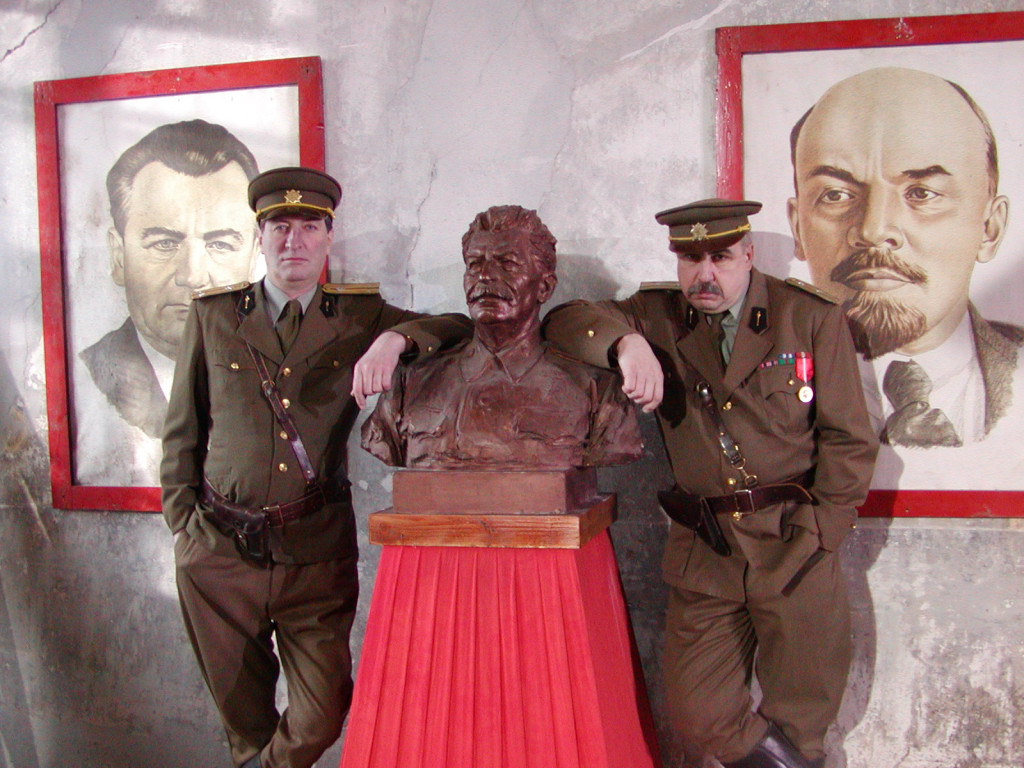
Bolek Polívka and Andrej Hryc in legendary TV series Černí baroni
Well, it seems that “the apple does not fall far from the tree”….. I said goodbye to a man full of energy and determination, who for one moment does not accept even one percent of a possibility that this most unique and ambitious project would not go ahead. His whole life, artistic career, his influence and last but not least his diplomatic contacts convince me that in about four years Bratislava will be greeting every traveller from Vienna and elsewhere with a majestic view of a newly rebuilt unique monument.
I am saying good-bye to Andy with feelings of humility, reverence and deep respect for the victims of the Holocaust, whose names remind us of “memento mori” and thanks to his determination I am already looking forward to the skyline of Bratislava which will be completed and highlighted by the synagogue and its majesty. I promise to Andy that I will do my best for the synagogue to return it back to the site from which it was uprooted. Will you, dear readers, join us and help in our effort to bring the synagogue back to Bratislava?
by Eva Anderová
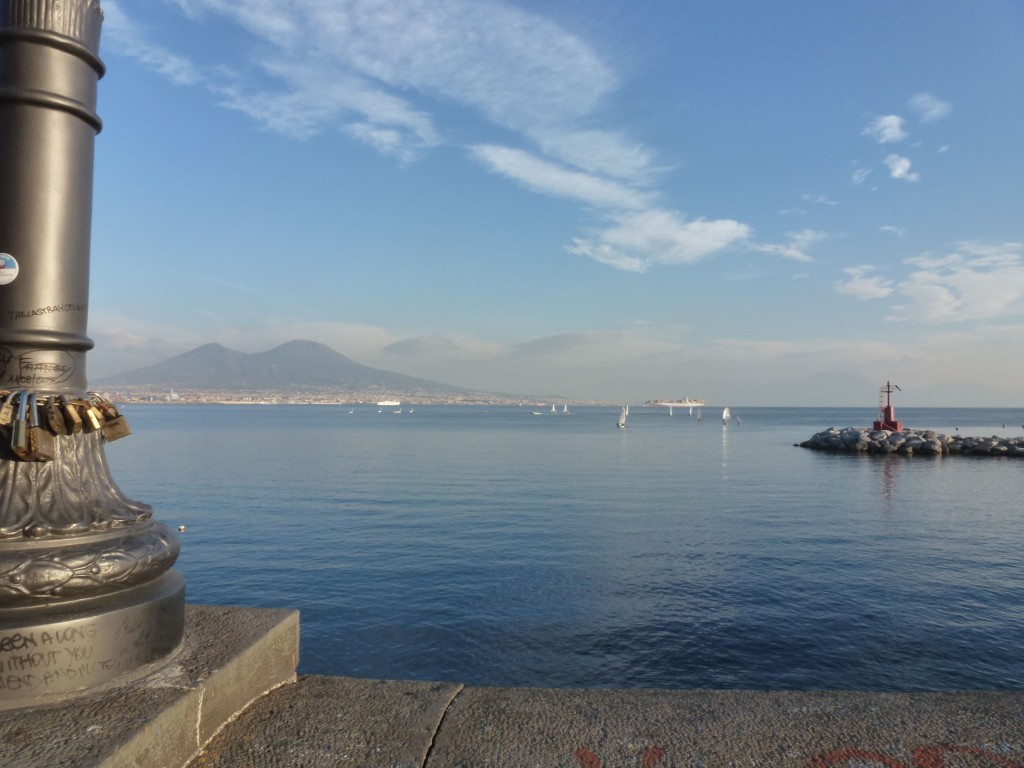
Gulf of Naples and Vesuvius
There are just a few European cities over which so many different powers were fighting for so many centuries.
Naples was probably founded by the inhabitants of a Greek settlement around 8th century BC. In 326 BC, the city was seized by the Romans and became a host city for many emperors over many centuries. In 476, the last Roman emperor was dethroned and held prisoner in Casteldell´Ovo. Gradually, the control over Naples was taken over by the Byzantines, in 1137 the city was seized by the Normans and the Kingdom of Sicily was established which was growing into beauty and wealth. Soon afterwards, the city was seized again, this time by German Staufen, in the 13th century the line of a French Anjou dynasty was in power, in the 15th century the Aragonese took reign of Naples, and at the beginning of the 16th century, for a change, the Spanish became its rulers. In the 18th century, the city remained under the rule of Austria for about 30 years. The most flourishing times for Naples came probably under the Bourbon dynasty when it became one of the most important European cities. This fact did not pass unnoticed by Napoleon Bonaparte either who seized Naples at the end of the 18th century; however, after 1815 Naples returned to the hands of the Bourbons. In 1860, the troops of Garibaldi seized the city and thus it became part of the emerging Italian Kingdom and later the republic. Since the Italian union in 1861, Naples has been struggling for its prestige with other major Italian cities.
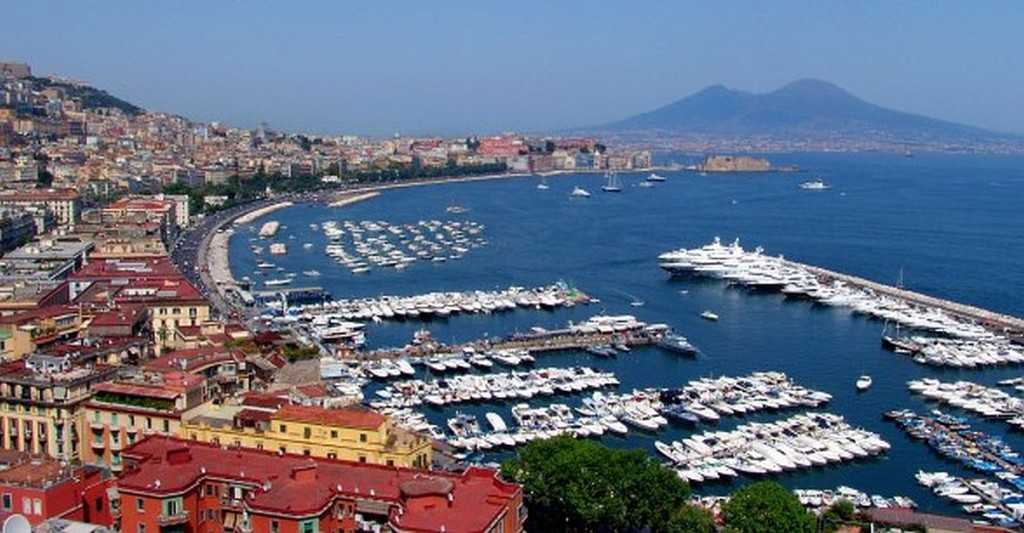
Naples and Vesuvius
Naples is the city of contrasts, most likely due to the fact that each ruling family has left their legacy here. Naples is not that homogenous and “Romanian” as for example Rome. It is something between Marseille, Paris, Milano, Genova, Athens, and Havana. Naples has a really attractive location which predestined the city for busy trading. A big bay led to construction of a large port; natural conditions, scenic area and favourable climate invited to a quick settlement.
Naples is beautiful from a distance. Gorgeous bay, Mount Vesuvius rising in the background, rich vegetation, wavy valley, majestic battlements of medieval castles, and domes of significant buildings ensure the city’s monumentality. When you take a closer look, it may seem nobody takes care of the city. It is chaotic, loud, dirty, smelling, neglected, dusty, battered, and falling apart. And this exactly is the key to its careless charm, the origins of which must be uncovered first to discover its magic. We will understand a lot when we learn about Naples´ history, lifestyle, and character of its citizens.
The people of Naples don´t play at anything, they don´t pretend. They are lazy but pleasant. They are not very open but are proud. If you don´t speak Italian or French, you have no chance to make yourself understood. The citizens enjoy their city fully but they don´t take care of it, as if they were expecting another Vesuvius eruption any moment again. So, the city somehow takes care of itself where only all that is firmer and more stable survives.
These days, Naples is not more dangerous than New York, Marseille, or London Soho, as it often used to be said in the past. All tourists are rushing to infamous Spanish quarters for the best pizza (which you just must try since it originated in Naples). Through the narrowest and longest paved streets where cars can´t get through, scooters are speeding up and masterfully keep off the pedestrians who become moisturised by drops of water from laundry hanging all over them and you can´t see a piece of the sky above. You are in the centre of action. Numerous old squares with marble fountains are hidden by crowns of ancient trees; in corners you will discover headstones and numerous evidence of rich history. Monumental citadels and castles show efforts of many conquerors to protect their pray against new desirous raiders; richly decorated cathedrals show evidence of power of rulers and influence of the church. The most significant museum of archaeology in the world contains countless antique treasures of more than 2 thousand years old. Richly decorated house facades are black with clinging ash, a remainder of the Mount Vesuvius eruption in 79, the city´s riverside, streets as well as the port and beaches are black too.
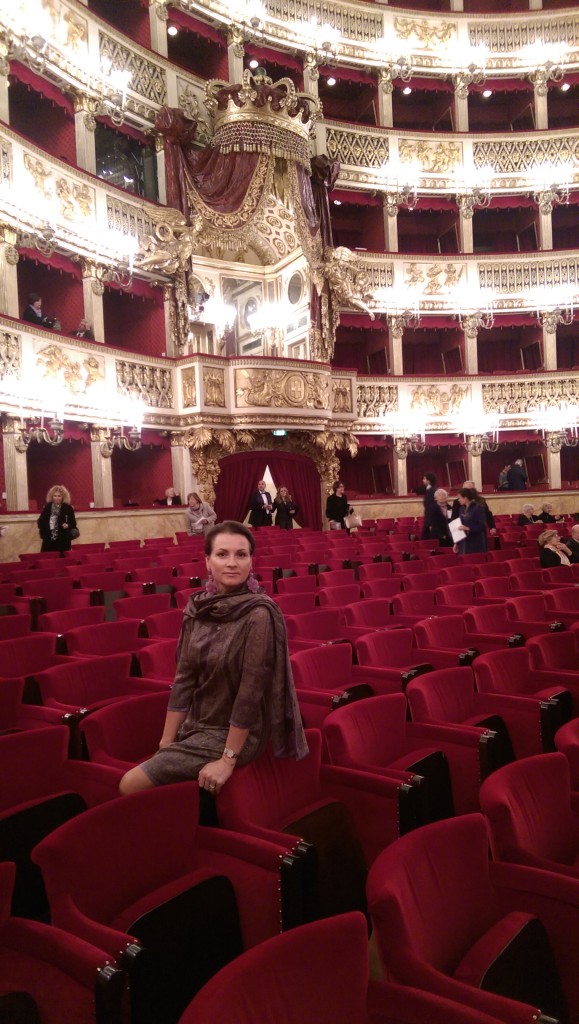
Teatro di San Carlo
Teatro di San Carlo, gem among opera scenes
In the evening, the city changes. Black colour of the streets blends into the darkness and together with the Neapolitans we are on our way to the most amazing theatre, the oldest opera scene in Europe, Teatro di San Carlo. Since its foundation in 1737 it has been the oldest continuously functioning opera scene in Europe. Thanks to the Bourbon king Carl VII who had it built, the centre of opera moved here from northern Italy. Theatres La Scala in Milano and La Fenice in Venice were built only years later in the same architectonic style and San Carlo served as a model for many other major opera scenes all over the world. A large auditorium originally accommodated up to 3000 viewers, but after the WWII bombing the theatre was reduced when reconstructed. Despite this fact, today it can accommodate about 1500 viewers and its still impressive stage commands respect. Only strong singers may perform here so that their voice gets to all corners of the auditorium.
After the union of Italy in 1861, the centre of opera moved north again to La Scala; however, thanks to financial support, quality opera composers (Puccini, Leoncavallo, Giordano, Cilea), outstanding orchestra, conductors, management, and pride of Neapolitan opera lovers, the glory of the opera house gradually returned again. Opera schools were created here; composers were supported, so the importance of opera could only flourish. By the end of the 19th century, the opera house assembled its own great orchestra under the lead of Pietro Mattucci, which also attracted renowned conductors, such as Arturo Toscanini, Pietro Mascagni, or composer Richard Strauss. Only one famous opera personality never came back. It was Naples countryman Enrico Caruso who in 1901 was booed off by a part of the audience and refused to come back ever since to the sorrow of everybody, and they say he was spending more time in Sorrento than Naples ever since.

Old City of Naples
Famous conductor Zubin Mehta, who began his carrier here as a young man, now in his 80s, has returned to the theatre, this time as head conductor. His Carmen interpretation in December 2015 was breathtaking and commanded respect of audience as well as orchestra and singers. Neapolitan opera audience is fantastic, as if from another world. During the day carelessly looking Neapolitans obviously cherish the place they are visiting and in the evening they change into a graceful, elegant, and festively tuned audience that is able to provide an expert opinion as well. They are attentive and uncompromising. The artists may be condemned or raised to heaven’s heights by them. That´s why the atmosphere in the Neapolitan opera is inimitable, because, on the contrary to other world scenes, it is true and authentic.
They say we live at the time when the same Vesuvius eruption may occur – just like the one that destroyed Pompeii and Herculaneum 2000 years ago. The Neapolitans therefore developed their own ironical explanation of the origins of a known saying “To see Naples and die”. The first explanation says that the city is so beautiful that you cannot see anything nicer anywhere and therefore you may peacefully die right now. The second explanation says that Camorra, the Neapolitan-Sicilian mafia, was lurking at every single corner here which means you never leave Naples alive. Well, and the third confirmation of the saying will come with another sudden Vesuvius eruption. However, everybody hopes that scientists may be wrong.
By Iva Drebitko
Photos: Archive of the author
November 29th 2015, Prague

Ten items of prestigious Kodl Gallery & Auction Hall Vltavín art auction held in November 29, 2015 was auctioned to help wheelchair people with a fantastic result – 814 000 CZK.

Charity auction included 10 works of art by prominent Czech visual artists such as Jan Knap, Lubomir Typlt, Petr Nikl, Stanislav Kolíbal, Jan Hísek, Ales Lamr or Jaroslav Horejc. Among others, a meditative painting of idyllic landscape has been auctioned for highest price of 240 000 CZK. Jan Knap is not yet fully appreciated in the Czech Republic, but abroad very well esteemed and widely exhibited representative of sacred art authors.

“May the auction bring a lot of happiness, especially to the Paraple Centrum, but also to young, novice authors who we are trying to offer here along with well established artists. Drawing by Anna Kodešová exceeded three times the starting price.” Martin Kodl, the “father” of the beneficiary project.

Giant canvas “Face on the grass” by Petr Nikl with his characteristic theme of faces with animal masks climbed from starting price to a fantastic result of 160 000 CZK.
Proceeds from the auction were again wholly dedicated to rehabilitation and counselling services provided by the Paraple Centrum which assists and supports clients with spinal cord injury.
“Seem so that the alliance between the Kodl Gallery and renowned artists with the Paraple Centrum becomes for our wheelchair account beneficial.” Zdeněk Svěrák, the founder of Centrum Paraple.
“Smiling is just an automatic reaction.”
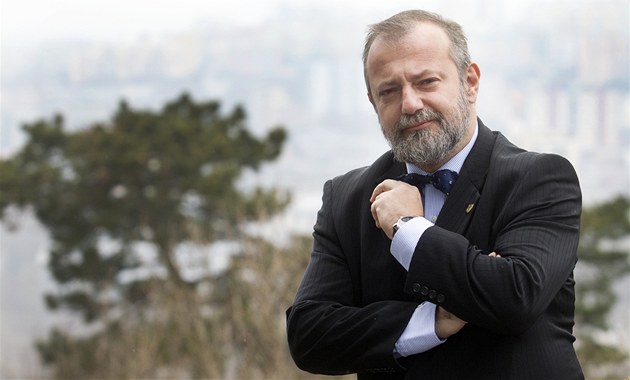
Hynek Kmoníček
A special personal interview with Hynek Kmoníček, Director of the International Department at the Office of the President of the Czech Republic, done by his wife, Indira Gumarova, on the media, patriotism, cooking skills, peace in the Middle East and so much more…
“If I were Angelina Jolie, I would make a movie based on his character. I learn something from him every day,” says Indira Gumarova, photographer and media advisor, who observed Dr. Hynek Kmoniček’s life far closer than anybody else (as his wife, in particular) and interviewed him for The Czech Leaders Magazine.
What book are you reading right now?
The End of Suffering, by Pankaj Mishra. I sometimes think I must be just the second person to finish reading this book after the author himself, and neither of us got it fully. An overcomplicated book on current India and historical development of Buddhism there and in the West.
What’s the last movie you saw in the movie theatre?
Movie theatres are history. I watch movies on my PC. The last one I saw in the real theatre was the Pakistani movie Khuda Ke Liye, a surprisingly well-done story of an arranged forced marriage and clash with fundamentalist Islam.
So the last movie you saw online?
It was a documentary about Welsh communities in Patagonia.
Do you watch any Czech TV shows?
Castle bodyguards made me aware of the TV crime drama called Atentat, loosely based on the Office of the Czech President. A crazy but funny story, especially if you know the real characters pictured there.
Is there a character in that show that plays you?
Not yet, but I wonder as what I would be pictured if ever I was an inspiration for a character.
As a semi-professional chef, what did you make for dinner last night?
Szegedin goulash spiced with Costa Rican chili. No dumplings. Crossover cuisine made with classic ingredients. Take Central Europe and turn it into Central America.
You give your interviews with a smile and some people think that you are one of those who loves to hear himself talk. What do you intend to achieve with smiling?
I am so focused when on camera that I do not follow every gesture of mine. Quite often a smile is just the automatic reaction and confirmation that I used to be an introvert.
I found that sometimes the Czech media are not patriotic. There were so many historical and important events in the country, but they cover only what is negative or controversial. In your opinion, what are some great historical moments of the Czech Republic?
I totally agree. We somehow seem to be genetically negativistic. The result is that even the current engagement we have in Syria will definitely be a footnote in textbooks of diplomacy, but I guess it will not be a Czech textbook. Exactly as it happened a few years ago when our engagement helped end the civil war in Sri Lanka.
Over the years, key people from different governments all over the world have sought your opinion on solutions of current problems: for example, Israel/Palestine; or ISIS; what is your vision of peace in the Middle East?
Realistic. Peace is the time between wars. And we must do everything possible to prolong these periods.
The media love to cover you. Any conspiracy theory about you that you find most entertaining?
These theories are somehow too unintelligent to be entertaining. If I follow conspirators’ logic, then I would probably have to be Israeli Mossad, Russian FSB and Pakistani by now and all at the same time.
Do you get upset when the country makes diplomatic faux pas? What makes you upset?
When I watch something going wrong in front of my eyes without a chance to do something with it on the spot.
For example?
For example, when we closed the embassy in Kenya as part of austerity measures just to reopen it two years later. You lose money to get where you have already been. And then doing the very same in Colombia. Simply things like that.
It is a known fact that you collect hot sauces but do you know the actual number of them? Have you ever counted them?
Never. My best guess would be between one and two hundreds little bottles. But I suspect you ask me about that to learn if I have a way of finding out how many of them you have already consumed. If I am the collector, you are the chili eater.
I took pictures of the most remote places where journalists tried to find you. Any particular place that journalists got you, but I wasn’t around with the camera?
Naturally, a bathroom. You don’t know about this but some years ago I flushed down my cell phone when an unexpected phone call surprised me there.
By Indira Gumarova
Photos: Jiří Turek
Hynek Kmoníček is a Czech career diplomat and one of the most prominent political voices of the Czech Republic, currently serving as a Foreign Policy Advisor to the President of the Czech Republic, and as Director of the International Department at the Office of the President. He started his diplomatic career in 1995 as a desk officer at the Middle East Department of the Czech Foreign Ministry. Since then, he served as the Permanent Representative to the United Nations and held roles of the Czech Ambassador in India, Australia and other countries. Graduated from South Bohemian University, with majors in classical guitar and pedagogy, he later earned a degree in English language studies from Charles University. Hynek Kmoníček also holds a degree in classical Arabic studies from Charles University and finished his studies at the post-graduate programme of modern history of the Middle East at the Hebrew University of Jerusalem.
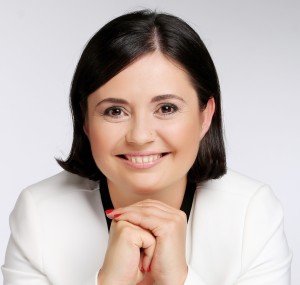 Looking back at the year we leave behind, it can be said that 2015 made it clear once again that people plan and Gods laugh. In order to face the challenges ahead of us, we need a different paradigm for leadership and strategic communications. To achieve it, we need to bring truthfulness back where it belongs: at the very core of our thoughts, speech and actions.
Looking back at the year we leave behind, it can be said that 2015 made it clear once again that people plan and Gods laugh. In order to face the challenges ahead of us, we need a different paradigm for leadership and strategic communications. To achieve it, we need to bring truthfulness back where it belongs: at the very core of our thoughts, speech and actions.
Reading the Economist outlook for 2016 I cannot stop noticing how very few things we were able to predict a year ago that have essentially influenced our lives this year. From the migrant crisis in Europe to the mighty economic growth in the Czech Republic, richly fueled by the last-minute withdrawal of EU funds, and to the insidious fear and irrational response of people we thought we knew in reaction to the terrorist attacks in Paris and across the world, we were (yet again) naïve to hope we finally understood our world. As always, life found a way to show us that our logical systems of measurement and prediction are, simply, insufficient when faced with a dynamic, multifaceted reality.
The question that gives many leaders a shiver is therefore: if we can’t rely on the systems we thought we understood, how can we continue doing what we do? How can we lead our organisations, institutions and lives, when there are so few certainties around us?
The answer to this question that I have been exploring for the past few years in communications and leadership is relatively simple: by letting go. In my experience, it is only when we become able to let go of our (illusory) certainties and fierce reliance on a predictable, measurable future that we can make room for something else. It is only when we stop identifying our sense of self-worth with the percentage of growth we achieved last year when we can take genuine distance and consider things in perspective. It is only when we learn to accept that the dictatorship of growth has an alternative – a healthier, more sustainable, cyclical, individual, economic life – that we can experience freedom. And it is only when we take personal responsibility for what is truly ours that we can start seeing our hidden resources and be able to take the next step.
Yes, but how do we do that? What I’ve learnt for the last five years, since strategic communications for leadership has become the focus of my activity, is that trust is the most expensive and yet most volatile currency today. It is your ability to inspire trust that gets you into a new corporate or political leadership position. It is your ability to trigger trust that keeps your people honest and engaged, and keeps fluctuation within your organisation at bay. It is your ability to cultivate trust that will keep your customers flying away when a cheaper alternative pops up in the market. It is trust that will shield your organisation better than any other insulating coat when a new crisis arrives.
There is only one trick to achieving trust. You can’t do that unless you are consistent in your words and deeds. And you cannot be consistent unless you’re truthful – and open – about what is really going on. There has been so much sugar-coating in communications that people are sick of it. Daring to look at what is and communicate it with your stakeholders timely, openly and responsibly is the way to make a genuine difference as an individual and organisation today.
Not so long ago I was stunned to see a headline claiming that “emotions don’t belong into the business sphere.” I dare argue the contrary. If we want to be able to move on, we must open up to exploring new paths in leadership and communications. Some of these paths are:
- Emotional intelligence. Know thyself is a timeless invitation. It is only when you know and understand yourself and when you become able to calibrate your behaviour according to circumstances that you can gain genuine self-confidence and achieve your goals.
- Intuition. For the last centuries our world has been dominated by logical, measurable systems. We have completely forgotten about our second leg, intuition, the ability to trust our instincts in order to move forward. We need to rediscover our intuition and learn to trust it also when it comes to major resolutions.
- Openness. We can struggle as much as we want to with accepting or not accepting migrants in the Czech Republic. Alea iacta est or the die is cast and people are moving across the world may we like it or not. The question remains: are we able to turn this new reality into an opportunity, or are we going to consume ourselves from within with rage, fear and longing for a world as we want it to be, as opposed to building strategies for dealing with the world as it is?
It is my firm belief that leadership that lasts is fueled by conscious communication. And it is my hope that, out of the uncertainties and incomprehensible, unpredictable crises of today, a new leadership paradigm will emerge. One free of the dictatorship of growth by all means and solidly anchored in truthfulness. And hopefully, conscious, strategic communications will be there to assist leaders along the way. For our own sake.
If you???re in a hurry, simply keep without designing them the cameras resting around.
Children are provided by the house setting with their literacy activities. Parents best essays uk are therefore effectively-located before elegant reading and writing begins at college to accomplish the advancement of emergent literacy skills within their kids. These emergent literacy skills incorporate print awareness, determination to explore produce, shaping and composing capabilities, alphabet understanding, and phonological awareness; the latter two being the strongest predictors of future reading ability (Adams, 1990). Parents could gain greatly from a shown-based method of the use of methods that market emergent literacy abilities inside their preschool- age kids. Parent-child Literacy Interactions Two schools of thought master the concern of how parents should communicate with their preschool kids to market early literacy abilities (Aram & Biron, 2004). In previous decades, the focus has been on normal literacy experiences and free. Recently, the concentration has been on encouraging parents to use a more guided strategy, recognizing that particular actions encourage certain abilities. In support of this process, Weigel, Martin, and Bennett (2006) discovered that the more parents begun literacy actions in the house, the greater the preschool child’s produce knowledge was and also the more interested he or she was in reading.
Do not bother about formatting! we will care for it.
Longitudinal investigation also implies that children will establish better emergent literacy skills, such as for example alphabet understanding, and start reading skills when their parents train them about printed letters (Hood, Conlon, & Andrews, 2008). Curiously, small children that are better in their connections using their moms will participate in more combined reading actions (like aiming and labeling) than kids in less protected associations (Bus, Belsky, van IJzendoorn, & Crnic, 1997). Attention should be taken in how this investigation is interpreted into exercise, while research implies the benefits of parents leading their childis literacy understanding. There is a danger an approach that is exceptionally informative can cause parents to feel forced to teach their youngsters, usually when they do not change every discussion, they’ll feel guilty. Partially because of this, some educators think that parents shouldn’t become teachers, but that general literacy capabilities should develop simply through natural and free experiences. However, a middle-ground could be reached if parents are created aware of the advantages of utilizing teachable times, or daily chances, to activate with their youngsters in a calm and substantial way. Additionally, parents do not need to show officially, but instead scaffold their kid’s activities. The parent provides youngster enough help as literacy that is essential so that they can attain -related pursuits that could otherwise be beyond his level of ability. The little one generates confidence, stays engaged, and enjoys the shared expertise together with the guardian.
Attempt butter, olive oil, avocado, and mayonnaise.
Aram and Levin (2002) exhibited that the scaffolding approach can assist a young child’s understanding of alphabet words, together with writing during combined writing activities. Activities in the House Reading is not the sole literacy activity with which parents can engage their children. Parents can also employ combined writing (Saint-Laurent & Giasson, 2005), storytelling, saying rhymes and literacy centered-play communications (Weigel et al., 2006), literacy training routines (Hood et al., 2008), and friendships with ecological print (Gerard, 2004). Shared Reading Activities. Just how a parent flows to her child could affect the progress of literacy abilities. In shared reading, the parent simply reads aloud a story book without actively participating with all the produce or in conversations about the story. Shared reading is simple and its most crucial benefit is always to enhance the parent-child partnership (Shuttle et al., 1997).
They learn how also and to set things to do things independently.
The volume of shared reading can be related to such vocabulary skills as language (Hood et al., 2008). Reading that is dialogic, the second form of reading, is involved. The childis interest is engaged by it through open ended issues (e.g., “What do you consider may happen?,” “What could you do in case you were this lady/boy?”), reproducing and elaborating about the childis responses, and delivering passion, reward, and confidence (Whitehurst et al., 1988). Finally, produce referencing varies by concentrating on words and phrases to increase a childis awareness of produce (Justice & Pullen, 2003). The parent encourages the kid for carrying on oral and prepared dialect through the use of strategies which are both mental (e.g., “Where should I start reading?,” “we realize that letter; it is a T”) and non-verbal (e.g., pointing to produce and following printing when reading). Print referencing builds on emergent literacy skills, such as for example print awareness, term concepts, and alphabet information (Justice & Pullen, 2003)eir youngsters as well as parents may take advantage of using a healthy mixture of dialogic and produce -referencing actions during their shared reading activities. One way to facilitate this process is found by the subsequent discussion between a parent and kid when discussing a page from the narrative Mr. Petis Whiskers (Neumann, 2007).
They ensure that you keep up with the word count of the dissertation aid substance.
Guardian: so what can you view with this page? Child: A pussycat. Parent: Yes! A pussycat–” meow, meow.” Exactly what does he look like? Child: He’s black and he has whiskers that are massive. Parent: that is right. [ a hand is run by The guardian.
Now???????? content practicing.
] Mr. Kitten had whiskers that are wonderful. Can you get the letter “M” for the label? Child: [Details to the.] There is my M! Guardian: Good work! I ponder what will happen to Mr. Pet; what you think? Kid: Perhaps he loves some dairy.
It had been an unbelievable story of our males there.” really a dry attention is not in the place.
Guardian: Yes, that’s right not amiss, cats do like milk. Let us turn the page to determine what happens to Mr. law essay help Shared Writing Actions. Growing parental knowing of the huge benefits to become received from shared writing pursuits has a constructive effect on the consistency of, and opportunities for, these types of connections; subsequently, literacy outcomes boost (Aram & Levin, 2002). Early publishing encounters and attention to print also are essential for having a youngster’s aesthetic scanning and recollection techniques, which are required for early-reading improvement (Clay, 1975). Kids increase their awareness of print when parents cause them to become scribble, draw, and publish. Emphasizing the designs as well as other aesthetic top features of letters also really helps to reinforce letter identification (Ritchey, 2008). Hence, it’s proposed that parents interact the youngster in early “writing” actions by actively growing notice forms or scribbling. Shared publishing pursuits could be even more effective than mutual reading actions in enhancing kids’ emergent literacy abilities (Aram & Biron, 2004).
It???s your fafsa rulebook that is essential.5.
The guardian and child do not have to restrict their mutual publishing pursuits to pencils and document. Characters may be formed in various fun techniques. Throughout a biscuit-producing action, as an example, youngster and a guardian can speak about what characters they may find out of the cash. In the event the child features a short name, every one of the words may be produced from the money. When the name is not short, the initial few letters of the child’s brand can be formed. String may be used to create simple characters, such as “O” and “. ” Different common items, for example straws pasta, clay, stays, and toy blocks, also can be utilized. Parents may more guide their childis studying with simple pursuits and questions.
Alternatively, preserve it quick, basic, advanced, and again, regular.
For example, the parent and kid may use along, long snake to roll out. Then, letters can be formed by them and track them using their fingers. The notification “M” might be traced while indicating “up, down, up, down” along with the letter “O” might be tracked ” round and round, such as the wheels of a car.” These simple directional tips could later be transferred to creating notification designs on-paper using a crayon or to different objects. Ecological Produce Activities. Printing on food appearance, product labels, apparel, path symptoms, and prints gives ample opportunities for kids to produce their literacy skills in a means (Gerard, 2004). Maybe it’s advised that simply being confronted with ecological printing enhances a youngster’s early reading skills. Nevertheless, environmental produce consciousness is actually a vulnerable predictor of future reading ability (notice Kassow, 2006, to get a review). It appears that kids depend a lot of on contextual tips as shades, images, and photographs so the produce is not noticed by them; and when the print is embedded. To help the child deal with the print, the parent must expressly point out the characters during natural relationships in the home (Gerard, 2004).
The in and sources text citations must also maintain the correct structure and fashion.
This way, youngsters may learn to decontextualize the print and raise their information about correspondence shapes, titles, and looks. The Up Downs home based tactic (Neumann, 2007) offers an example platform that parents could follow. The guardian interacts using the kid by employing a multisensory technique: visible (indicate and find out environmental produce–e.g., seeking and aiming in the M for “milk” on the milk carton name); auditory (the guardian explains the letter title and sound–e.g., “That’s an M for milk; it makes a MMM sound. Let’s imagine it jointly”); kinesthetic (employing body motions to physically form-letter forms while in the oxygen–e.g., “M goes up, down, up, down”); and tactile (tracing the letter appearance on ecological print–e.g., tracing the letter M with your hand while expressing “up, down, up, down”). The tactic is simple, and the guardian arbitration advances improvement of produce consciousness, alphabet expertise, and emergent publishing abilities, and raises printing inspiration inside the kid (Neumann, Hood, & Neumann, 2009). Play that was literacy -centered Controls. Kid’s literacy learning may be caused through the social circumstance of play controls, and possesses been founded that young children engage in early reading and writing actions through perform (Saracho & Spodek, 2006). These literacy-linked play interact and surroundings at home supply children with substantial chances to explore with literacy-associated materials. It’s encouraged that parents include literacy play materials storytelling, and publishing routines in-play controls to boost their understanding of the reasons of print as well as youngsters’ literacy habits.
(dallas standard baptist press, 1978) frank n, macchia.
Low-cost home props, materials, ecological items that are published, and logo indicators can be utilized to produce numerous literacy- play options that are loaded. Like, the guardian could help the kid create a fake toy shop or supermarket, filled with prices for the items, brands, and an indication. Moreover, a cardboard container could be used-to signify a television. The guardian and child may create humorous media stories the youngster might imagine to learn like a media writer, utilizing a hair comb. Homemade advertisements may be placed up inbetween the headlines reports. Awareness Actions. Phonological awareness is one of many strongest predictors of reading capability (Adams, 1990). Parents must enable young kids discover sounds in terms and language when examining story textbooks that have phrases that rhyme or present alliteration or when getting together with them. Singing nursery rhymes, such as “Old McDonald Had a Farm, ” also stimulates advancement of phonological awareness and seo writing services is exciting for both youngster and parent.
Einstein wrote a renowned notification to president n.
It is not always essential to employ songs that are traditional. Parents could make their very own rhymes that are basic up using a focus on notice sounds inside the phrases. As demonstrated in the following illustration the rhymes may be sung with physical measures. Octopus, Octopus, “Oh,” “Oh,” “Oh.” Wiggle your hands and down you go. Octopus, Octopus, “Oh,” “Oh,” “Oh.” Vibrate your biceps or more you-go. [a fresh letter sound may be put into the beginning of “Octopus,” such as “Roctopus, Roctupus,’Ro,”Ro,”Ro,'” or “Soctopus, Soctopus,’So,”Thus,”Thus.'” Alternately, a different rhyming phrase could possibly be applied, including “Snake slides while in the sun,’sss,”sss,”sss,’ Reptile slides having a good time,’fff,”fff,”fff.'”] Conclusion It’s critically important to offer parents with research -based literacy ways of interact their youngsters in a variety of literacy that is informal and online -centered activities within their home environments. The actions could be pleasurable, easy, functional, play- centered, and lowcost.
Hitler: a friend that is bibliographic.
No specific instructional products are needed for your parent and child to share with you library books together, scribble and draw, form letters from things (e.g., producing words out-of chain), point out and track characters on ecological produce, and sing rhyming songs. Teaching parents about the benefits of adding literacy activities in the house could possibly be done through courses that underscore the wide selection of literacy actions that may gain their kids (Saint-Laurent & Giasson, 2005). Utilizing their imagination, kid and the guardian together can cause their literacy-based play configurations at home by, for instance, building a market shop complete with a homemade store indication, favorite goods, and advertisement posters made from print in publications and newspapers. By thoughtfully doing a wealthy selection of, relaxed literacy that is simple -based actions in the house environment, parents will see that studying literacy is exciting. References Adams, M.J. Beginning to examine: Thinking. Cambridge, MA Press. Biron, & Aram, D., S. Shared reading and writing treatments that are joint among SES preschoolers that are lower efforts to early literacy.
These aren’t fast and hard policies, but are general guidelines.
Early Childhood Research Quarterly, 19, 588-610. Aram, Levin, & D., I. Mom- kid mutual publishing and story book examining: Relationships with literacy among low kindergarteners. Merrill- 202-224, Palmer Quarterly, 4. G., Belsky, J., van IJzendoorn. ,. Connection and book reading styles: A study of their toddlers, dads as well as moms. Early Childhood Research Quarterly, 12, 81-98. M, clay.
Although filtering through my stocking fillers one christmas day i suddenly had an idea.
(1975). What did I produce? Start writing behavior. Australia: Heinemann. M, Gerard. What is a guardian to accomplish? other along with phonics stuff. Childhood Education, 80. Hood, Andrews, G, & M., Conlon, E..
You’ll get additional such ideas online.
Preschool house literacy techniques and kids’ literacy development: A research. Newspaper of Educational Psychology, 100, 252-271. L, justice. M., & Pullen, R. (2003). For promoting emergent literacy abilities: Three proof encouraging treatments -centered ways. Issues 23, in Early Childhood Special Knowledge, 99-113.
The story ” christmas carol” arrived 2 yrs later.
D.Z, Kassow. Environmental produce awareness in young children. 1, Research Institute, 1-8. M, Neumann. (2007). Up Downs: A functional and fun method to add reading and publishing to small children aged 2-5. Australia: Finch.
It has comprehensive information on keywords, observing, photography, descriptions and pricing.
Neumann, M. M., Hood, M., & Neumann, D.L. Emergent literacy abilities in the house environment’s scaffolding: an incident study. Early Childhood Education Record, 313-319, 36. Ritchey, E. (2008). The building blocks of writing: Learning to produce cause words and characters.
They are not for you personally! you could aswell simply krazy glue a stay of butter to your a**.
Reading 27-47, 21. Saint-Laurent Giasson, J, &, L.. Effects of a family literacy system establishing involvement that is adult to first-graders’ progress of reading and publishing qualities. Record of Early Childhood Literacy, 5, 253-278. Saracho, E. & Spodek, N., N. Young kidsis literacy- linked play. Early Child Growth and Treatment, 176(7), 707-721. Weigel, N.
The narrator might or may possibly not be the character but shows the story by discussing ‘i’.
Martin, J., S. S., K. (2006). Efforts of the property literacy setting to preschool-aged kids’ rising literacy and vocabulary skills. Early Growth and Treatment, 357-378, 176. G, Whitehurst. J., Falco, F. Fischel, J., T.
Try picking up a tiny metal target.
Debaryshe, e., T. Valdez – M. C., & Caulfield, M. Increasing vocabulary growth through picture-book reading. 24, Psychology, 552-558. Neumann is actually doctoral scholar, College of Therapy, Queensland Department of Education, and a school teacher. David M. Neumann is Senior lecturer, Institution of Mindset University, Queensland, Australia.

On behalf of our partner, UNICEF Czech Republic, we would like to invite you to a charity culinary class of Nepalese cuisine led by Amit Thapa, Chef of Hilton Prague Old Town. The funds raised from the registration fees will be used to support UNICEF programmes promoting the rights and wellbeing of disadvantaged children.
When
Thursday 28th January (17:30 – 21:30)
Where
Hilton Prague Old Town, V Celnici 7, Prague 1 (metro Náměstí republiky)
Registrationfee
UNICEF Friends of Children – 2,490 CZK
everyone else – 2,990 CZK
Programme
· welcome drink at Zinc Lounge & Bar
· kitchen tour & ingredients presentation
· dining experience with selection of wines
All participants will also receive a Master Class Certificate, selection of recipes and a gift bag surprise.
Registration
Number of participants is limited to 14, please register through UNICEF e-shop or email elangerova@unicef.cz.
For more information please visit www.unicef.cz.
Do internet reviews, although i don???t do reviews that are paid.
Are you feeling incredibly oppressed with the concept of publishing civil conflict composition and being tense what will occur if you will not be able to publish the civil conflict composition in a given time frame. Currently, that there is no solution except writing on role of women played during the civil conflict dissertation quit foryou, you dont really need to get confuse as you’ll find an incredible number of matters as possible publish on your civil conflict essay. The main part of publishing governmental sort essay is always to create your brain clear by what you would like to write in your civil war essay, this kind of matter needs to be dealt with successful treatment since they’re currently very confusing in their character so when it was a huge event relied inside the heritage of America, you’ll be readily available with plenty of applicable material onto it. As a way to give you a peek on how best to publish role of women in American civil war documents, we have chose to offer you test article on the same matter. Composition on Function of ladies in American civil war Release: American civil war experienced the greatest massacre for individuality during those times btu wiltl so they may attain their determined aims they stepped along side men to give them mental and moral support. During the painful voyage of American civil warfare, every girls, woman, nurse, cousin, housewife and their unparalleled role competed with. Body paragraph # 1: Ladies could possibly be represented like a gentleman with non closing bravery and courage, they managed them untiringly from your foes and combined themselves to provide their homes. Better yet, they disguised themselves as guys to exhibit their essay uk guys they are not by yourself within the battle. This is the reason, nobody could depend the amount of ladies participated using the males during civil conflict and this may be the main purpose why National civil war is considered all times’ biggest war. Body part no 2: Apart from the exemplary present of females buying essays uk covered in guys apparel, these were likewise playing with the purpose of nurses to treat the soldiers that were damaged while in the warfare by which nurses that were several additionally lost their lives throughout the combat to truly save the brave soldiers.
You could possibly rest less but don??t plan on not resting at all..
The part of the war was that ladies formed two communities, first; the one that is minute along with society was Support culture. These groups used to create the remedies along with bandages for your soldiers that were injured. Body paragraph # 3: Additionally, there have been girls who likewise help the companies to make every one of the expected content and ammunitions and hands for your troops battling inside the battle. In whichever approach they could to get the civil war as the American paper likewise recognized the energetic roleplayed by the females National females assisted. Finish: Hence, ladies did everything to earn war’s level, they fought just like a man, they offered as beneficial nurses, plus they possibly produced ammunitions and arms. In short, the present of courage and courage best essay writing services in uk shown the National girls during the civil conflict is exemplary and unmatched. Today, you are aware what’s the procedure for writing civil war essay you can easily think of an excellent written piece; ideas can be even taken by you from the civil war documents that are previous.
“I am never afraid to work, I always set my goal high and choose the more difficult path. ”
 How did you begin your career in real estate?
How did you begin your career in real estate?
While I was studying business and law at the University of Economics in Prague, I was looking for a part-time job to get some practical work experience and make my study time more productive. I started working in a law firm where I was providing admin support as well as other assistance to the team. I was approached by one of our clients who was running a Real Estate Company offering me to join his team. I was always passionate about real estate and with my specialty at the university, I saw this as a good opportunity for me.
What was your first job like?
I started my career in real estate as a sales and leasing broker. At the time, the introduction to the property world was given to me by my manager, who is my dearest friend today, and who found out very shortly after I joined his company that I was capable of more and willing to work hard. I completed my first large investment transaction in 2007 to a foreign investor who then asked me to manage the property after the purchase. A few months later, I was recommended to manage more properties within the same building and by the end of the year, I was managing the whole complex. I extended my portfolio of properties and two years later, I was approached by an international US- based property management company, and asked to look after their portfolio of properties. There I provided both property and facility management services. As a result of being successful in this role, a year later I was promoted to head of property management services, where I supervised a team of managers looking after various properties across the Czech Republic.
Who was your mentor while growing up?
When growing up, my parents influenced me the most. As a child I was taught that you get only what you really need, but if you want something more or better you have to do something to get it. And when I turned 15, I started working in my dad’s grocery store. At this stage of life we don’t usually realize what is their intention to be so “difficult”, but looking back, this was what made me who I am today. I am very lucky to have such a great family who has been supporting me in every step of my life.
What triggered your interest in this industry?
When I was at the high school, I was preparing myself to go to a medical school afterwards, as I wanted to become a dentist. Last year at the high school I was attending weekend courses for pre-med students. That year helped me realize that this is not the right field for me and that I am more business oriented rather than medical or scientific. Real estate and property management itself is a very interesting industry as you’re working with people, which I really enjoy. Commercial or residential, it really doesn’t matter, it is still just a building which in our business we are making alive and that is what I like doing. Making sure that the old or new building will be here for decades and people will be enjoying working and living there.
What made you decide to move to the Middle East and specifically to Dubai?
Having acquired my experience in the Czech Republic, one day I woke up and decided to try a life abroad and gain more experience in real estate. I didn’t have any preference where to move but I knew that I don’t want to move anywhere in Europe. I wanted to go somewhere further but at the same time, I didn’t feel like moving too far, for example to the Far East, so staying in the middle (Middle East) was the right option. I always heard about Dubai – how fascinating the city is, etc., and had a chance to visit Dubai in 2010. During that visit, when I was standing by the dancing fountain next to The Dubai Mall, I told myself, ”One day I want to live here”. And a few years later I am actually managing the Mall itself. Through my life I was always saying:“Everything is possible”and yes, there are certain circumstances but if we approach them from the right side or angle, things will move the way we want. I was directly recruited by Emaar for the position of Property Manager to manage their biggest residential community – a small city, actually – with its 10,000 villas and other retail areas on 11.5 million square meters, which is called the green city – Emirates Living. While I was going through the rounds of interviews, I was finding out more information about the role and the property, which I was supposed to manage, and I wanted this role more and more. Within 2 years I was approached by the Emaar Malls Group management with the offer to manage their flagship between their malls and I have gladly accepted this new challenge.
How challenging is it to handle the Operations & FM in such a property like The Dubai Mall with operations 24/7/365?
In my role I manage the teams who look after day-to-day operations and FM services, and who make sure the mall, which is open 365 days a year, most of the time 16 hours a day, is always up to the highest standards. The total area of The Dubai Mall is 1.5 million square meters, which is a challenge itself. However, the main challenge here is the time – we have a very short time to ensure everything is maintained up to the very high quality, for which Emaar is well know of, but if you organize things properly, it is manageable. I am generally a well-organized person, which is crucial for this type of business. The other factor is human resources. You must be able to rely on people otherwise you’ll fail. I always work on the assumption that people will want to work for you and not that they have to or are forced to – that makes a difference every time. It is challenging to work in the Middle East where you deal with people from all over the world but in the end we are all humans and we need to find a way to cooperate. During holidays and events we have up to 600,000 visitors every day, which would be over half of Prague’s population coming to shop and entertain themselves, so these days are quite challenging.
What was the most challenging situation you have faced professionally?
I believe it has been the move to Dubai. Moving to an unknown place and completely different culture has been very challenging for me, but I have to say that it didn’t take me long to get used to it. Life is one big learning process we are going through, from the day 1 till the end, and that is what makes it interesting. Specifically in a professional life; I can’t say I have been in difficult or challenging situations – if everything is well planned, challenges are eliminated.
What has been the highlight of your career so far?
I am never afraid to work; I always set my goals high and choose the more difficult path just to make myself a stronger and better person. I consider my main success in my career that I have proved myself in less than 2 years working for Emaar and have been selected as manager for The Dubai Mall. Managing a mall with 80 million visitors a year is like managing a small country, which is something I’m very proud of being able to accomplish.
As a leader, do you ever have bad days on the job? And how do you handle them?
Of course, I don’t think there is anyone who doesn’t have bad days, but it all depends on how well you can manage yourself. Even if I have the worst day, I never let anyone in my work life feel it. I usually go and look at our dancing fountain and those 5 minutes help me calm down. When I am about to say something, I count to 10 to process it one more time and this has been a very helpful tool which saved me from unpleasant situations quite a few times.
If you weren’t working in this field, where would you be?
I don’t like to say “I do not know”, so I am always learning something new as I always like to be broad-minded. This is a very difficult question since I am very happy in this field and at this point in time I can’t imagine working anywhere else. However, if I have to have an answer, I would be an entrepreneur in various businesses, just like my father.
Do you get enough “me” time?
Well, working in a 24/7 environment in the busiest mall in the world doesn’t give you much “me” time but every free time I have I enjoy as much as I can. I love travelling and exploring new places, and I like to do some sports, so for me it is the active relaxation when I actually relax the most.
Would you have any advice for beginners who are just starting their career?
Hold on to your dreams and don’t forget that life is like a boomerang: you throw it out and it will come back to you, and most of the time when you least expect it.
By Czech Leaders
Lukáš has more than 9 years of multi-disciplined managerial experience in residential and commercial real estate including asset, property and facility management, development, brokerage, acquisitions and investments. Lukáš obtained his Master’s Degree in Business and Law at the University of Economics in Prague. Since then, he has held several roles in real estate companies in Prague, successfully managing property portfolios and leading various teams. Since 2013, Lukáš has been living and working in Dubai, UAE; currently, he works as Manager of Operations and FM at The Dubai Mall.
 Or, did it use to be power back when it was not easily available and disseminated? My recent participation in a training course focusing on managing team effectiveness made me ponder on whether the objective to learn, to get empowered by knowledge still holds true nowadays when knowledge is not something belonging to the privileged only.
Or, did it use to be power back when it was not easily available and disseminated? My recent participation in a training course focusing on managing team effectiveness made me ponder on whether the objective to learn, to get empowered by knowledge still holds true nowadays when knowledge is not something belonging to the privileged only.
In the current times of widespread, inexpensive communications, knowledge travels way too fast for it to hold power for long. So perhaps there is no need to try to cram tonnes of it into our heads on the assumption it will make us special, is there?
I recently came across findings claiming that during the last century we moved from the Industrial Age through the Information Age to the Knowledge Age. The ability to obtain, absorb and apply the right knowledge effectively will become a key skill in the next century. Our capability will no longer be judged solely by qualifications gained in the past, but will also be assessed by our capacity to learn and adapt in the future.
When thinking about the Knowledge Age, the meaning of ‘knowledge’ may be changing as well. It does not seem to be thought of as ‘stuff’ developed (and stored) in the minds of experts, included in books, and classified into disciplines. It rather resembles a system of networks and flows – something that makes things happen. Knowledge may not be even defined by what it is anymore, but what it can do.
To me, knowledge, and education for that matter, is extremely valuable; perhaps partially due to the fact that I was denied higher education for years during the Communist regime and in fact, even denied meaningful knowledge for years as some of my mandatory learning reflected the distorted Communist reality. Learning is important for individuals as well as organisations. However, I do not consider learning to be just about economic success. It is the key to achieving our full potential. Human beings are uniquely adapted to learn and we have the ability to do so throughout our lives. Learning has the power to transform us. It works on all fronts – we can become more successful at home with our families, at work with our colleagues and in our local communities.
And back to my question – is knowledge still power? If you lived in the 1600s and wanted to be a mason, for example, you would start off as a master’s apprentice. Instead of paying you, he would teach you his trade because he had the knowledge you could not get anywhere else. He had power. You? Not so much.
I believe knowledge still has power but nowadays sharing knowledge is more powerful. Rather than trying to hoard something that can be acquired, sharing knowledge can have a bigger impact. Two people will collectively know more than one. Three will know more than two. And when you have a room full of smart people, there’s very little you cannot accomplish together.
There is a vast amount of knowledge and skills in organisations but they will not make the full impact if used in silos. In fact, lack of sharing may hinder progress and result in vast inefficiencies. Therefore, many businesses have recognised that the power of collaboration and knowledge sharing can make them much stronger and help them fulfil their true potential. My company, a very large and geographically dispersed business, has also been on a journey towards collaboration; however, changing a company culture from ‘what you know’ to ‘what you share’ can take very long.
Ultimately, we need to realise it is we who have the power to make the most of all the information and resources we know or have easy access to and use it all to make a difference, on a private as well as professional front.
Knowledge simply doesn’t become effective and powerful until people decide to act on it. In the age of information, ignorance is indeed a choice and, however comfortable, it is disempowering and not conducive to progress.
Who said knowledge is power?
Although the term is attributed to philosopher Sir Francis Bacon during the Enlightenment four centuries ago, the first documented occurrence of this phrase comes apparently from Imam Ali (599-661) and is included in the book Nahj Al-Balagha as follows:
“Knowledge is power and it can command obedience. A man of knowledge during his lifetime can make people obey and follow him and he is praised and venerated after his death. Remember that knowledge is a ruler and wealth is its subject.” – Saying 146.
 Charisma is the unique property of someone who possesses a personal charm and is irresistibly attractive to others. Such an individual has highly developed communication and persuasion skills that he or she uses to influence and excite other people. Charisma increases a person’s attractiveness. But careful – it is not necessarily true vice versa. You can meet somebody who is obviously attractive at first sight but who does not turn out to have the charisma you would expect.
Charisma is the unique property of someone who possesses a personal charm and is irresistibly attractive to others. Such an individual has highly developed communication and persuasion skills that he or she uses to influence and excite other people. Charisma increases a person’s attractiveness. But careful – it is not necessarily true vice versa. You can meet somebody who is obviously attractive at first sight but who does not turn out to have the charisma you would expect.
According to British psychologist Richarda J. Wisemann, a charismatic person tends to be highly attuned to the emotions of others and has an extraordinary ability to awaken emotions in them. At the same time, he is able to keep his own emotions in check and is resistant to the influence of other people, their negative attitudes and ideas.
People often think that there is a direct correlation between charisma and the highest attained level of education. Let’s take two global leaders as an example. On the one hand, there is U.S. President Barack Obama who studied at several prestigious universities including Harvard. On the other hand, look at someone like former Brazilian President Lula da Silva who left elementary school after only four years to become a breadwinner at the age of 12. Both politicians are intensely charismatic despite their vastly different academic backgrounds. There is no correlation here. The same can be said of the effect of the environment one grows up in. It makes no difference whether you come from a royal family or a socially excluded neighbourhood.
What are the advantages of charisma? Picture a charismatic individual in your mind. This person is most probably at ease with public appearances and speaking in front of people, is able to influence, motivate and inspire others and efficiently communicates his own visions. Most of will instinctively think of famous and successful women and men who are well-known for their artistic, athletic, political and business achievements.
Studies have shown that charismatic people work on better projects and get paid more for their work. This only serves to make them more self-confident and wins them even greater respect among their peers.
A successful person’s charisma multiplies his or attractiveness, which may sometimes turn into a downright fascination. Just look at some artists or the most successful entrepreneurs. When they enter a room, everybody is immediately aware that they are there and they are able to captivate all those who are present in a blink of an eye.
I would even argue that charismatic people lead happier lives but not simply thanks to the advantages I have already mentioned. They are happier primarily because of their positive outlook and their ability to enjoy even the smallest details. On the road to success, however, charisma cannot compensate for a lack of intelligence or hard work, which are, in my mind, the cornerstones that charisma can build on, adding a certain aura of personality that makes things a bit easier and smoother.
Whenever I talk to people about charisma I tend to hear to same questions over and over again. Everybody wants to know if charisma is something you are born with or if you can learn to be charismatic. Another typical question is whether there is some connection to the way the charismatic person looks. This is true, to a certain degree. A pleasant and attractive face can do a lot and make people pay attention to you but what about an actor like Jean-Paul Belmondo. Nobody would question his charisma although his “beauty” may be subject to debate.
Don’t get me wrong, though – a charismatic person is not always a good person. There are way too many charismatic crooks who cause terrible harm to their victims. Let’s be very clear that there is positive and negative charisma. If we want to take it to the extreme, we could say that both Stalin and Hitler possessed great charisma but used it for negative ends.
Although each one of us will occasionally get into a situation where we will tend to agree with a charismatic person, it does not mean that we should easily fall under the spell of this person’s words and looks. What about the effect of clothing? I would say that it acts in a way similar to attractive looks. Interesting and appropriate attire can help, but it not required.
At the top of the chart of the most frequent questions is the trickiest issue. Can an introvert be charismatic? Take a look at several global leaders: Ghandi, Bill Gates and Steve Jobs. All three were exceptionally charismatic while being at the same time very introvert. I think there is really just one point of difference between an introvert and an extrovert. When I, an extrovert, get off the stage after giving a speech I feel full of energy. An extrovert, on the other hand, will feel exhausted. The reason is that an introvert runs on his own internal battery while I get recharged by the simple fact that I stand in front of an audience. This does not mean that one personality trait is good and the other bad per se. It is simply about how each manages his internal energy. So yes, an introvert can be charismatic. He just needs to practice more before getting on the stage so that he has more scope for using his energy efficiently.
Let’s dive deeper into our topic to get a true understanding of what it takes to be charismatic. Charisma is most often expressed and perceived through a person body language. This is partly due to the historical evolution of the way humans communicate where speech and language come into play at a relatively late stage of humanity’s experience. Before that, our ancestors spent a much longer period of time communicating through facial expressions, gestures and postures. Speech is responsible for a mere 7% of efficient human communication and the remaining 93% depends on body language. It is important to keep in mind in this context that our mental and emotional state directly influences our body language. But it also works the other way. Sit up straight and you will immediately feel stronger. These are communicating vessels that often reveal more about ourselves than we would like.
What are the components of charisma? Imagine a triangle that has power, presence and warmth at its corners. In the centre of this figure, we have authenticity that can be achieved only by people who make use of their strengths, talents and firmly anchored personal values.
Only truly authentic people can aspire to be charismatic. Authenticity can be feigned but not forever. It is a trick sometimes used by actors. Some roles and situations are very difficult to just imagine for longer periods of time. What actors do is that they fully immerse themselves in their roles, experiencing something akin to the placebo effect known to medicine. You no longer pretend to be what you are not, you really live the experience. In English this is known as method acting.
Look at the vertices of our charisma triangle. At the first tip, we have presence. I realised the power of a person’s presence when I had the opportunity to meet global leaders such as Prince Charles. When you are standing next to somebody with a great personal presence you feel that, at that moment, the person is there just for, that you have their fully attention.
How can you tell that someone is truly present in the moment? Among the telltale signs is the fact that the person keeps natural eye contact with you, displays an open body language, listens to you and asks relevant questions. It apparently takes only 17 milliseconds for you to notice that you partner is drifting away, losing the thread. Such a tiny moment can wreak a lot of damage in sensitive negotiations.
Fortunately, there are pretty simple tricks that can help you regain the present moment. Focus on your breathing or on your toes. If you try this strategy you will feel a sudden, strange signal shooting up through your body, forcing you to pay attention. Another trick is to focus on the sounds in the room or the colour of the eyes of your partner. Guess what – human eyes do not come only in brown or blue. They come in an incredible variety of shades and each person has a completely unique pair of eyes.
The second magic tip of the triangle is power. Look at animal behaviour, let’s say the typical alpha male stance that a gorilla takes when he wants to dominate other gorillas. The male stands on his hind legs, feet wide apart, beating his chest with his fists. We humans have parallel behavioural strategies. We use gestures that may be friendly while still displaying your superiority and power. It can be an arm casually placed on the backrest of your partner’s chair or on his shoulders while walking. Your clothing has a certain effect but a much stronger influence is exerted by a straight posture and domination of as big a space around you as possible. Sport and dance are among activities that can greatly help you in developing a correct, natural stance. I, for example, owe my physical self-confidence and natural gait to tennis.
The last corner of our triangle belongs to warmth. Your partner will be very quickly able to tell whether you pretend or whether you are serious. Nobody has complete, permanent control over all the aspects of body language. Emotional intelligence plays a crucial role when establishing personal contact. We must be masters of our emotions and at the same time be able to illicit a positive response in others. When you need to form a closer relationship or get back your audience’s attention, there are three failsafe topics you can use: children, partners, success and health. At least one of them will always work.
Personal warmth also means the ability to step into the shoes of others, in other words empathy, candid gratefulness, warm compliment and a shake of the hand. An interesting technique is “repainting” of your relationship with complicated people and situations. Take for example a situation where a car overtakes you in an aggressive way on the road. You have two options. Either you can get angry and let the situation get the better of you, or you can sit back and realise that you do not, in fact, know why the person did this. Maybe he was in a hurry to get a sick child to a hospital. This put the situation in a completely different light. There are moments where it is actually good for us to show some vulnerability and allow others to get closer to us. It has been proven that people do not like perfect individuals. Sometimes all it takes is a slip of the tongue that suddenly makes you look more human.
I hope that this reflection will help us see charisma as something that can be learned and acquired. However, the foundation on which we can build charisma is being true to yourself, being authentic. A charismatic person is always present in the moment, is aware of his power, is warm and has no need to pretend – he is himself.
As a standard practice, I always suggest to hiring managers the need to conduct the selection and hiring process with a purposeful goal of bringing not only the preferred candidate and finalist – but two — through the entire selection process. This is common sense, yet this advice is often dismissed as soon as they can identify a particular candidate to their liking, at which point the others are soon forgotten. Then, as can happen, something goes wrong at the end of the hiring process or possibly even sooner after starting a new job.
Bringing two finalists to the conclusion of the hiring process and job offer stage should be a standard operating procedure, whenever possible. Failing to do so, in my opinion, is short sighted and a dereliction of a manager’s responsibility – especially when fall-offs and turn-downs have increased in some market sectors, wherever there is high demand for qualified professionals. Instead, some managers seem to think there is an endless candidate pool or a magician’s hat in HR, where you can always magically find more resumes. But sadly, unless you are willing to extend your reach and relocate the people you need, there is a finite supply of the kinds of people you want and need to employ. Human resource professionals, recruiters and some managers understand this because the reality is that while indeed there are lots of resumes and people looking for a job, there may only be a handful of the candidates who are A) Qualified and B) Interested in your job and/or organization, which narrows your choices.
What I suggest is not difficult; just continue to advance both the first and second choice candidates through the entire process and to the final stage, all along informing them that only one will receive the offer. By the way, competition is good and nobody should be led to believe they are the only person under consideration for a job; it creates other problems, among them a sense of entitlement.
At the offer stage, the second choice candidate will be told, “…we liked you, but… the other candidate was chosen”. Though, don’t completely discard the number two finisher just yet, because you’re not done until the first choice candidate not only starts but completes the 3-month probation period.
Whenever I have to deliver this kind of news to the person who didn’t get the job, I’m simply honest with them and suggest that while indeed the process is over, sometimes things happen. I suggest that however unlikely, for one reason or another, if a circumstance presents itself, may I re-contact them and would they be willing to reconsider the situation? Depending on the mood I further remind them that, up to this point, they were interested and well-regarded by the company, which unfortunately chose the other. Most often this is reasonable for them and they respond that it depends on their situation but they are open to the possibility. Sometimes this is all it takes for a potential insurance policy of sorts, a fall-back position should it become necessary. More often than you may think I’ve had to make that call and say, “Hi, remember me? Well, guess what happened…?”
There is something else to consider when things fall apart and you don’t plan for a back-up candidate. I don’t care how great a company or job it is, anytime a position remains open for a lengthy amount of time, there grows a perception there is a problem with the position, the management or the company. That mere perception can make it harder to find new candidates who might be justifiably cautious, because when a hiring process is perhaps poorly managed, the perception is valid.
It is still true that people as a social element have three core needs. One of them is to be respected as a totally specific individual. Social networks reflect this need. The second need is the need to belong somewhere. This need too can be fulfilled better and faster on social networks than in the real world. In addition, we have the need to be appreciated and that is what we so often call for on networks. Maybe, social networks and Internet represent a new platform to satisfy these needs. Their history is short, we will see.
I don’t think it is technology but people who decide about the future. Being old as I am, my personal chances are minimal. J What is important for those who will not only decide, but especially live in a digital era, being called Generation Y or Millennials by their birth dates?
These are their preferences according to the research realized in the USA:
- meaningful work
- salary less important
- high level of self-fulfillment
- demanding work
- don´t care for high level of responsibility
They want work mobility, working at night too, prefer freelance work, and believe that their working time will be flexible in future. In a team, they prefer working online, use smartphones, and often download applications suitable for their work. Thanks to the Internet, the importance of the place as a geographical location necessary for work is disappearing.
What are they like and how are they different from previous generations:
- high level of narcissism
- open to changes
- creative
- adaptable
- entrepreneurial spirit
The worse situation is regarding their optimism, self-esteem, and team skills. Some qualities are typical for young generations in general, and so their connection to a digital era is just marginal. Nevertheless, and absolutely naturally, employers show the highest interest in them.
Recently, I have read an interesting article in Lidové noviny newspaper on “digital dissent” and an interview with its Berlin intellectual leader Thilo Utke. Besides the omnipresent Internet, smartphones, and new applications which will create a bridge between technology and users, he speaks about the battle against freedom restraint, global monitoring, protection of personal freedom, but also about creative potential of young generation. His opinions represent not only the “IT” generation but also many young people outside this profession. On the other hand, you get the feeling that the more knowledge of technology you have, the higher your chances to protect your personality are. Hackers often speak about unsustainability of personal data protection, but at the same time they are able to protect its loss very well. The founder of Facebook, Zuckerberg, said that if everything goes public, nobody will be interested anymore and the concept of privacy will be restored. Hard to tell…
Extract from a new book Digital Era which will be published by Albatros Media in Spring
The finest technique to alter to a felicitous gambler is to reveal valid online or mobile casino sites which talk about casinoonlinebonusar.se casino bonusar a lot of secrets. Usually, even the best manual cannot have for players a guaranteed victory, yet a effective site might directly affect gamblers elemental probabilities to hit a winning. Slot admirer may learn not only the strategies of notable casino games, and at the same time keys to arrive at the decision on internet gambling rooms, keys to receive casino gifts and promotions and techniques to pick up real money. Moreover, any casino lover is to ought to get to know restrictions of betting.
Working manual: website where gambling issues are revealed
First of all, we need to read about the primary issues of of the websites for casino admirers. Pro instruction is a certain internet forum which gives information in regard to the different aspects regarding casino games and mobile casinos. Critiques on notable virtual casinos, details about well known casino games, check index of the encouragement gifts and lucrative promotions available. Rational online sites are ordinarily checked by managers on the regular basis to allow to read fresh gifts.
Revealing educational sites are of plentiful versions: the ones supplying solely useful recommendations concerning casino facts, the ones which give deliberate analysis of various online gambling rooms (including reports keeping in mind online bonuses and offered promotions), and gambling games manuals which guide the most popular online or mobile casino games.
Under the condition anyone is a patron of certain casino offer, give preference to browse for online gambling sites that gain ideas on techniques of multi featured applications. All websites are doubtless appropriate for the virtual slot machines, because of the fact the assortment of slot machine versions of this virtual casino entertainments is perfect. Become aware of the fact, tutorials are effective for the gamblers who are ready to enjoy complicated gambling room offers, for instance blackjack types. If a gambler is casino novice, opt for multisided websites explaining heap of points comparing mobile casino.
Gambling terms at instructions
Jargon is famous as fist concept to recall for casino fans who get arranged for giving a try to make use of the gambling guides. The language generally relate to game procedures or game mechanisms. Always remember that, the hand used at popular game is the arrangement of required game cards, stand means abandon to accept bigger number of game cards, and wild item takes the place of any of app card.
Special characteristics of gambling games
Strategic sites of course state almost all complicated components. Recent gambling games often grant everyone list of of crystal clear ideas, and even good casino games admirer usually needs mechanism of the brand new online games traces. That is probably the most valid option, for the casino admirers who feel the desire to slot game. The idea is believed to be that this version of online gambling house games is the exact one which creates and reforms more frequently comparing to well-known apps.
Recommendations described through brilliant tutorial
The pick of tutorials is countless, and each of websites provides fair resolutions explaining to enjoy joining casino website. Our professionals have collected need to know pieces of advice in casinoonlinebonusar.se Online slots bonus order to simplify the exploration the rules which can help.
Key concept is to create an account at the gambling websites which are considered as those which take the highest places. Named internet gambling rooms are usually incredibly famous, gain departments wherever it is possible, provide always available facilities, and usually work with the players.
The next info is that casino admirers could reveal index of present promotions. It signifies, it is needed to recall that there exists essentiality to check whether the encouragement gifts are today available. Contrarily, connect with the proprietors of the gambling website.
Not least important piece of information is to consider casino games summaries having perfect rates. Learn those observations thoroughly additionally to the responses of commanders, and also summaries of the online casino visitors. According to that, a person might meet fascinating of the online games: paying more in difference to each of other games. Many of popular sites in such a way offer lawful details. Anyone might explore peculiar site pages claryfing keeping in mind demands related to playing for real money at the best online gambling houses.
Sites moreover demand players to play tons of online games of the internet casinos rating them without necessity to pay. Testing software of casino games are fantastically the common at peculiar online gambling houses. Useful process with the intention to apprehend special features of betting, is to put into action the online casino promotion campaign (free spins or casino online bonusar real money offer.
Tutorial is certainly the most special process identically for amateurs and gamblers with experienced. Being guided by the tutorials, beginners and pros have the chance to meet options that help become a table game interesting and even more advantageous. Try not to omit to get acquainted with websites to convert any app ideal for a player!
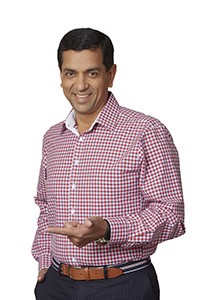 Most of my learning comes from my children,so when they asked me, “What is the diference between us humans and the animals“? I promptly replied that we are intelligent and can use this intelligence to lead Happier lives.
Most of my learning comes from my children,so when they asked me, “What is the diference between us humans and the animals“? I promptly replied that we are intelligent and can use this intelligence to lead Happier lives.
But, thinking about it, I realized that very often just the opposite was true. At least in my case, I often used my intelligence and mind chatter (77.000 thoughts pass through our minds every day and more than 70% could be negative) to the detriment of myself, our society and this planet. I often focused on what I did not want to see in my life, and every time I did, my intelligence worked to my detriment, making me less happy and very often quite miserable. The more I thought about it, the more it became clear that where I chose to focus my attention determined not only how I lived, but also affected the lives of a lot of people around me and potentially even future generations.
Seven billion worlds…
We all share one planet but we live in seven billion different worlds. Each one of us lives in a world of our own based on what we focus our attention on and which thoughts we attach ourselves to emoti-onally and which thoughts we choose to ignore. So today I am going to share with you my experience of my world and how I see it.
Thoughts will come and go…
I was a victim of my ego & mind chatter. It led me intonegative spirals and I would come out of it focusing mostly on the negative things in my life that I wanted to change. It was like Michael Jordan spending all his time cursing himself about what a poor golfer he was or Tiger Woods doing the same about what a bad basketball player he was.
Then I met Mooji – a spiritual master from Jamaica living in Portugal. Through his guidance and meditation, I realized that I was making myself and the people around me more miserable by focusing a lot of my attention on what I did not want to see in my life.
I learnt that thoughts come and go and if I don’t give them my attention, they have no power over me. It is only when I give them my attention that they become powerful – I give them the power. It was the thoughts on which I focused my attention that became powerful, but I did not do this consciously -it was the subconscious programming that I was carrying with me.
I also realized that I was getting what I was focusin on whether it was positive thoughts or negative mind chatter. Through all the negativity, a very powerful tool had revealed itself to me. lf I used it well, it could help me shape my life by focusing my attention positively on what I wanted and ignoring the thoughts related to what I did not want.
The logic of the revelation was simple, but implementing it required skill.
The fixed and the growth mindset…
One day, while watching a TED talk on „The Power of Belief and Mindset,” I suddenly realized I was often functioning subconsciously with a fixed mindset. A fixed mindset limits our capabilities and makes it more difficult to learn new things as we get older. I had become attached to this mindset and consequently it often determined or limited my behavior.
The growth mindset is just the opposite because it focuses on new possibilities and the positive. We can constantly learn new skills as long as we focus our attention on the learning process and do away with negative beliefs about our capabilities. It is a skill that, just like golf or piano or chess, can be learnt with practice. This was a wake-up call for me.
The Mastery of the Sages…
Later, when I was in Portugal on a silent retreat with the spiritual master Mooji, I realized that all spiritual masters had mastered the ability to focus thein attention on thoughts that would keep them in a positive growth mindset. They were able to ignore thoughts that could put them into a fixed mindset or would be negative – this was their Mastery. This ability to focus attention by design fundamentally changed their lives. This was the most powerful choice they were making, and is probably the primary mason they are called Masters.
The most powerful choice…
The most powerful choice that I have as a human is to determine what happens in my life by simply focusing attention on certain thoughts while completely disregarding others. Initially it seemed difficult. But the more I consciously tried to maintain a growth mindset and focus my attention on the positives, the easier it seemed to get.
Meditation has helped me ignore some of the thoughts that could be detrimental to a growth mindset & it allows me to regain more and more of the power that I thought I never had. Today I believe that we all have this power – the power of focusing our attention on what we want.
If I focus my attention on what I want & thoughts that create a positive synergy and systematically ig-nore negative thoughts about what I don’t want, it brings a very powerful change. It is so simple and yet so powerful that when I first realized it, I spent nearly an hour laughing out loud to myself and thinking about all the time I had wasted on negative mind chatter. Now, when my mind starts chattering, it just brings a smile to my face and I say, “There it goes again”.
As I learn from my children, I also hope to be able to lead my life in a way that they may learn something from me. It would be a fun game of mutual learning. I think it is a beautiful possibility to live into ☺
Not simply UK learners, but difficulty to produce satisfactory quality documents that are academic is faced by students from all around the planet. Though some of them aren’t getting the time to complete their coursework support jobs within contract a number of the learners lack confidence in study and publishing capabilities. Read more
Unmissable shopping opportunity
Diplomats will change Hilton into an oriental Bazaar
This year´s Christmas season will be opened by a special festival, which will take you on a journey around the world. The annual International Christmas Festival of the Diplomatic Spouses Association (DSA) is truly a feast for the eyes, a parade of colorful costumes, flavors, aromas, art, music and dance. It is also an excellent possibility to support DSA´s fundraising activities by buying unique gifts and treats from all over the world.
„Our festival is open for everybody. Visitors can buy goods from more than 40 countries around the globe. Vendors in traditional costumes are often ambassadors in traditional costumes”, says the President of DSA, Mrs. Pham Ngoc Tram, explaining the concepts of this event. “In a way the International Christmas Festival has the genuine atmosphere of an oriental bazaar and this is enhanced by a rich cultural program.”
The Festival will be held on Sunday, November 29th, 10.00 a.m. – 16.00 p.m.
at the Hilton Hotel, Conference Hall, Pobřežní 1, Praha 8.
(metro/tram Florenc)
Tickets at 100,- CZK are available in pre-sale through www.ticketstream.cz,
and at 150,- at the Festival. Children under 12 are free.
Proceeds from the ticket and table sales go to charity.
The annual International Christmas Festival, organized by members of the diplomatic community, has become one of the most prestigious and sought-after Christmas events. It attracts thousands of visitors each year and offers the chance to experience the diversity of cultures from all parts of the world.
The funds raised by selling entry tickets, goods at the stalls or internet auctions on Aukro, from private sponsors or corporate donations are subsequently redistributed through grants to Czech charitable organizations.
“Unlike similar organizations, DSA donates 100 % of the raised funds to charity. Our portfolio is very wide: from hospitals to hospices, from orphanages to therapy centers or training of guide dogs. All projects are carefully chosen and the use of our donations is strictly monitored”, explains Mrs. Ilda Poda, the Charity Coordinator. Since 2000 DSA raised more than 61 million Kč, which makes them one of the leading local benefactors.
Detailed information about the charity work and individual donations is available on the DSA website: http://www.dsaprague.org/ and newly on Facebook: www.facebook.com/dsaprague
Here are some photos form last years event:
 The end of 2015 holiday season brought about some interesting events concerning Czech transport infrastructure. While activities to utilize as much as possible from the Operation Programme Transport for 2007-2013 get to the final stage, a new space opened for more conceptual and long-term decisions.
The end of 2015 holiday season brought about some interesting events concerning Czech transport infrastructure. While activities to utilize as much as possible from the Operation Programme Transport for 2007-2013 get to the final stage, a new space opened for more conceptual and long-term decisions.
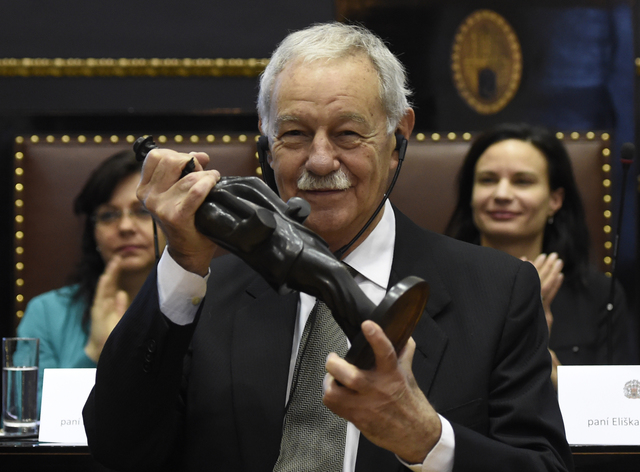
Eduardo Mendoza Garriga
Spanish novelist Eduardo Mendoza Garriga was presented with the Franz Kafka Prize, which the Franz Kafka Society annually awards for authors´ life work and which carries a reward of $10,000, at Prague´s Old Town Hall.
Choosing Mendoza, 72, from ten candidates, the jury appreciated his narrative skills, human approach to the depicted events and sharp sense of humour. “The international jury chose the name of this satirical author…in the second round of the vote,” Franz Kafka Society director Marketa Malisova said. Mendoza said fiction literature is a game and that he approaches it accordingly. Mendoza is the author of successful detective novels, master of humour and parody, but also a serious political commentator and opponent of Catalan separatism. He has presented his work at a literary event in Prague´s Cervantes Institute. Mendoza is the 15th winner of the Franz Kafka Prize, which is the first international literary prize awarded in the Czech Republic, launched in 2001. Its previous winners include Philip Roth, Ivan Klima, Harold Pinter, Haruki Murakami,Peter Handke, Vaclav Havel and Elfriede Jelinek. The prize is named after Franz Kafka (1883-1924), a world-known Prague German-language writer of Jewish origin.
Written by: ČTK
www.ctk.cz
Source: www.ceskenoviny.cz
The Austrian Heinz Reigl is one of the pioneers of foreign businesses in the Czech Republic, having set his foot on this uncharted ground in 1990, right after the revolution. Looking at his rich experience in leading positions, it comes as no surprise that he loves to see tangible results. This applies no less to professional business networks as he soon understood that they have the potential to be more than just prestigious “talking shops” for the elite. For seven years now, Reigl has presided over the Prague Skål Club. Under his leadership, Skål has evolved to be a vanguard of the professional networks in Prague.
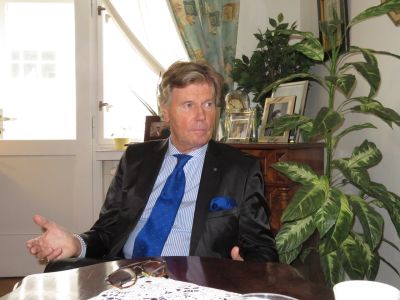 The tourism platform Skål developed as the outcome of a business trip. In 1934, on the occasion of a new air route to Scandinavia, a group of Frenchmen went to visit their colleagues – in a time when networking rarely extended beyond national borders. Among all the foreign languages heard during the trip, remarkably, one particular word kept sticking: skål. The equivalent of the English “cheers” and the Czech “nazdraví” became the name of a novel network, the first of its kind in tourism.
The tourism platform Skål developed as the outcome of a business trip. In 1934, on the occasion of a new air route to Scandinavia, a group of Frenchmen went to visit their colleagues – in a time when networking rarely extended beyond national borders. Among all the foreign languages heard during the trip, remarkably, one particular word kept sticking: skål. The equivalent of the English “cheers” and the Czech “nazdraví” became the name of a novel network, the first of its kind in tourism.Aware of that danger and not afraid to challenge traditions, Reigl, as the club’s new president, was able to change Skål’s course. “We have managed to win many young people. This had been one of the key problems that the club was facing.” It is not without pride that Reigl can now feel a fresh momentum that is considerably owing to Prague’s contribution, acting as one of the vanguards on an international level. The club’s slogan is now “doing business among friends.”
Skål Prague is celebrating its 20th anniversary this year. Today, the club has 72 full members, fondly called “skålleagues,” as well as 18 members of Young Skål, where students have the rare chance to meet and mingle with top industry leaders on an equal level. Reigl praises the club’s cooperation with the college Vysoká Škola Obchodní as a vital source for students of tourism.
The development in Prague is exceptionally dynamic because the city’s high number of hotels inevitably leads to a certain degree of fluctuation in the club’s members. Whenever a hotel director is relocated to another country, Reigl springs into action, trying to win his or her successor. Skål’s members in Prague stem from a variety of countries, making English the club’s “lingua franca,” or common language.
Modernization has also affected the profile of Skål members. Today, tourism is perceived in broader terms than before. Thus, an IT provider who produces software for hotels fits seamlessly into the scope of the club’s members. In the spirit of opening doors, members from outside of Prague are also welcome. However, sufficient English skills are required for club membership. “A condition that regrettably is not met by all representatives of Czech tourism businesses,” Reigl says.
Even though Skål take pains to avoid falling back into its former elitist attitudes, he points out the need for Skål’s members to be in positions where they can make decisions in their professional environments. Otherwise, the entire platform would lose its meaning and relevance. The times of superficial “talking shops” are gone, and members are very much invited to share their professional experiences and talk about business. Skål invites high-ranking guest speakers to its regular meetings and seeks collaboration with media, such as PTV Media (www.prague.tv, www.praguemonitor.com, www.mansprichtdeutsch.cz). The club is increasingly understanding its own potential as a special interest group, whose voice should be heard.
Reigl is trying to create synergies with other networks and is not scared to approach politicians and diplomats in order to positively influence conditions for tourism. Even though direct involvement in politics is not on his agenda, he is fully aware that tourism is not possible without a conducive political climate. As an Austrian, he knows about the benefits of tourism for national economy. He regrets, however, that Czech politicians often perceive tourism as a blessing that came from nowhere and that thrives almost on its own. Even Prague’s attractiveness as a city doesn’t suffice to make it a flourishing tourist destination on its own.
Reigl depends on international networking to broaden Czech horizons and improve Skål’s work in Prague. “Particularly younger Czechs are now more open to change and to learning from others,” he says. He attributes this positive development mainly to increased international exchange and takes it as a confirmation of his chosen strategy for Skål in Prague.
Learn more about Skål Prague at www.skalclub.cz
Author: Czech Leaders in cooperation with Christoph Amthor, PragueConnect.cz

Festival of light SIGNAL took place for the third time in Prague this weekend. It brought 3 large format videomappings (one of which was 3D), 13 light and 5 interactive installations. The organisers didn’t measure the turnout this year, but focused more on the cooperation with security services and on the improvement of passability of the streets. For the first time this year, SIGNAL expanded into the professional sphere with programs such as SIGNAL Future Forum or educational platform Transmit (www.transmit.org). Many works received great feedback from the guests, such as the videomapping on the church of St. Ludmila, the colourfully lit up Střelecký island or the interactive installation called Faces on the Šítkovská tower. SIGNAL 2016 will take place from October 13th till October 16th 2016.

The launch of Czech This Art at Royal Ahrend ,17 Charterhouse Buildings, Clerkenwell .
This was a preview of a new initiative to promote Czech artists in London.
It was a great success.

Indira Gumarova
As a longtime New Yorker now living happily in Hrad, which means Prague Castle in Czech, my blog will celebrate what I call the 3Fs: Food, Fashion and Folklore!
I seek to educate as well as entertain. My responsibility to readers is to make sure that things and places I recommend will not disappoint their cultured tastes.
As a Food lover, I am looking for a simple but elusive combination of good food, decent portions, reasonable prices, prompt and courteous service, a charming ambiance, and an interesting history. As a Fashion blogger, I am looking for fascinating, authentic, unique pieces and whatever I can recommend that makes you look better. And in Folklore, in addition to anecdotes about interesting events and personalities, I cover tools, technology and craft traditions associated with popular culture, travel, architecture and more.
I was ecstatic to discover the lovely Palffy Palac Club. This charming restaurant opened in 1994 in an elegant 18th century Baroque building that still exudes the luxurious atmosphere of that period. In 1881 aristocrat Eduard Palffy bought the building and bequeathed the restaurant his name. The Palffy Palac is located on Mala Strana, just a short walk away from the Prague Castle.
I thought it would be best to stop by for lunch in the afternoon. The food is wonderfully prepared, reasonably priced, and perfectly seasoned using fresh ingredients. I felt as if I were back in New York during Restaurant Week, an annual event where top Michelin-rated restaurants offer two-course tasting menus at bargain prices to show off the creativity and expertise of their chefs.
The meal began with fresh bread and butter topped with grilled hot garlic. That simple but delicious combination, clearly fit for a king, threw me back 400 years. This was a great start!
As a main course, I opted for a grilled fillet of pike served with roasted cabbage and shiitake mushrooms. The wonderful blend of textures augmented the brilliant flavors. The fillet melted in my mouth like ice cream. I also tried my friend’s choice, which was a lamb shoulder stewed for nine hours in red wine and rosemary. It was heavenly!
The chef of the restaurant is Saravanan Kandadu but the master of the lunch craft for us was Denis Chlusov. He has had a passion for cooking since he was five years old, and takes great joy in serving his customers some of the best and most exciting food in Prague.
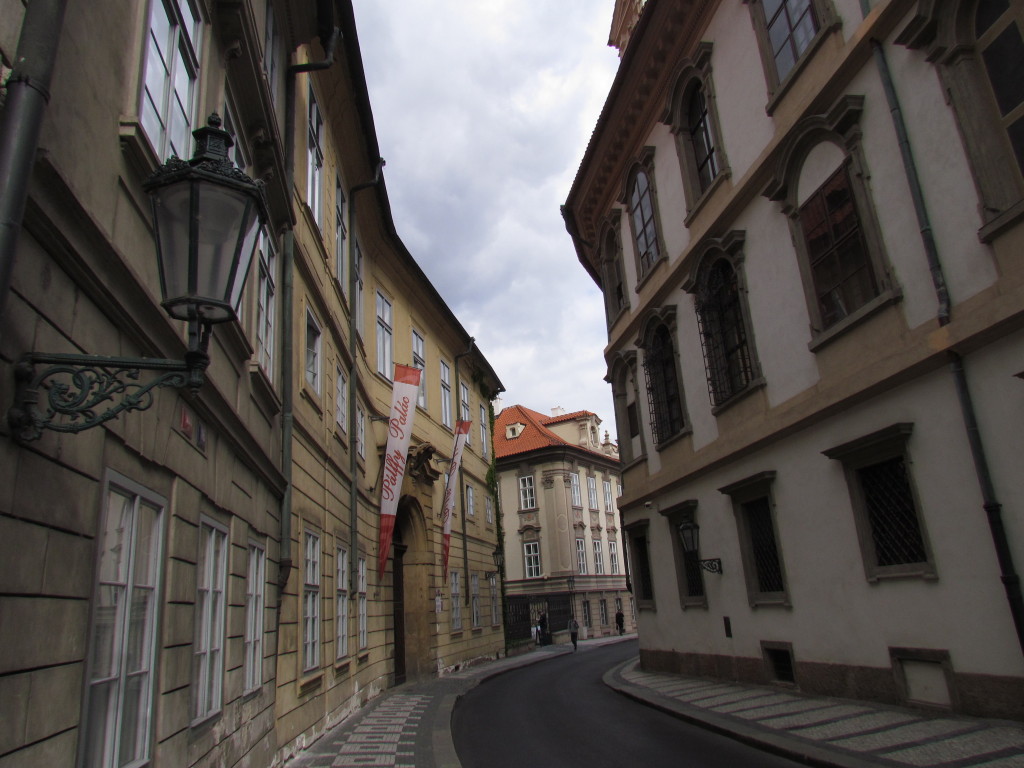
The restaurant has a bountiful selection of wines that perfectly complements its elegant menu.
The Palffy Palac Club restaurant is tucked away on the second floor of Prague’s conservatory building. It is a place geared to discriminating local patrons, not the typical tourist trap one so often encounters in Prague. The atmosphere for lunch is relaxing and friendly. I ate like a king, and you can too, right in the heart of Mala Strana!
Contact:
The Palffy Palac Club
Address: Valdštejnská 14,
Praha 1 – Malá Strana 118 00
Web: www.palffy.cz
Reservations:
+ 420257530522
Open from
Tuesday to Saturday from 11am till 11pm
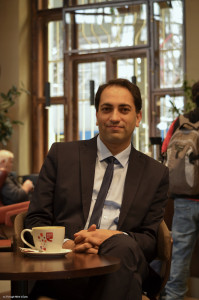
After more than 10 years of experience working for Café Coffee Day, owned by parent company Coffee Day Global Ltd., at their central headquarters in Bangalore, India, Ved Malhotra came to Prague as the company’s European GM in January of 2013.
While Vienna is known as “the capital of coffee,” the opportunities of expanding the company’s brand and franchise potential in Eastern Europe stemmed from the company’s acquisition of the Cafe Emporio chain in Prague in 2010. In the 10 years the company has been in the European market, Café Coffee Day has expanded to include 4 locations in Prague, Czech Republic as well as 6 locations in other Czech cities including Brno, Plzen, Most and Pardubice.
PragueConnect.cz met Malhotra at the recently reopened Fanta Cafe in the historic Fanta building of the Prague main train station to speak about Coffee Day’s emergence as an international coffee chain in the Czech Republic.
Although the family-owned company has been in the coffee business since 1870, the first Café Coffee Day cafe was opened in 1996 in Bangalore, India. Initially, the company’s coffee shops were places where Indian youth met to hangout, surf the internet and have a coffee. They served as internet cafes as much as specialty coffee houses. However, the brand soon spread across the country. CCD, as the brand is locally nicknamed, currently operates 1500 stores in 200 Indian cities and serves about 300,000 guests daily.
Currently, CCD is opening new cafes in India at the rate of 10-12 per month, in addition to the company’s recent expansion into Europe, Malaysia and Egypt.
The company’s founder V.G. Siddhartha is credited by Economic Times “for crafting a successful pan Indian brand from a commodity business and giving Indian consumers a new lifestyle experience that is within the reach of the common man.”
The origins of CCD’s coffee beans are steeped in an ancient legend that an Indian Sulfi saint smuggled 7 coffee beans from the nearby Ethiopian province and planted them in the hills of Southern India’s Western Ghats. Today, the company’s coffee beans are still raised in the Indian Highlands in the shade of trees on the company’s 12,000 acre plantations. The berries are hand-picked when ripe and later roasted in the company’s own roasting plant. Coffee Day Global Ltd. is the largest producer of Arabica coffee in Asia and one of the top 3 exporters of green coffee in Asia. Currently 7,000 tons of coffee beans are roasted annually. The company employs its own research & development team which has created 22 different Indian coffee blends and 4 blends specifically for the European market.
In India, the brand has three distinct retail concepts, ranging from Café Coffee Day “Xpress” with 900+ kiosks located in shopping malls, corporate centers, hospitals and metro stations to “The Lounge” a sit-down coffee shop serving breakfast and lunch in metropolitan areas. At the pinnacle of coffee culture, CCD operates “The Square,” 7 premium luxury cafes with full-service restaurants, single origin coffees from around the world and coffee selections paired with food. Coffee Day “Fresh and Ground” retails fresh, ground coffee. The brand also sells a capsule machine and “WAKECUP” cups and was the first Asian brand to produce a single-cup system.
Café Coffee Day’s newest Czech coffee house, the Fanta Cafe epitomizes the vibrant, social coffee culture that the company would like to bring to each of its European coffee ventures.
When asked about the differences between Indian and European coffee house culture, Malhotra said. “Coffee is a bigger cafe culture in Europe. In India, it’s still growing. Europeans are used to staying an hour or two longer at the cafes. They meet with friends and stay for drinks other than coffee.” While Malhotra admits that Viennese coffee culture is more cosmopolitan than in the Czech Republic, he says that Czechs see coffee shops as social outlets.
In each of their European cafes, Café Coffee Day operates as a full table-service cafe, meaning that customers do not have to stand in line to order their coffee or carry it back to their seats. The CCD coffee houses serve sandwiches, pastries and homemade cakes as well as a breakfast combo, including fresh muesli. The Novy Smichov, Prague location has a full-kitchen offering international cuisine and Indian drink and food specialties. On the whole, the costs for CCD coffee drinks in the Czech market are slightly below those of American and British chains.
When I asked Malhotra if there were any difficulties particular to entering the Czech market, he admitted that learning the Czech language has been a challenge. However, from a business point he says, “I appreciate the fact that Czechs are straight-forward in business. They do not waste time being diplomatic. What they promise, they will deliver.” In the Czech Republic, he has gathered a professional team of employees; many are Czechs with international experience in the coffee and food industries.
In the future, Malhotra said, he’d like to introduce top-quality Indian coffee in full-service CCD cafes in more key European locations. Specifically, the company is looking at other Eastern European countries for possible franchise opportunities. In Prague, he’s interested in using the historic Fanta Cafe space for events, birthday parties, book readings or signings.
As Malhotra has learned, Czech cafe culture is strong.
Author: Czech Leaders in cooperation with Emily Prucha, PragueConnect.cz


